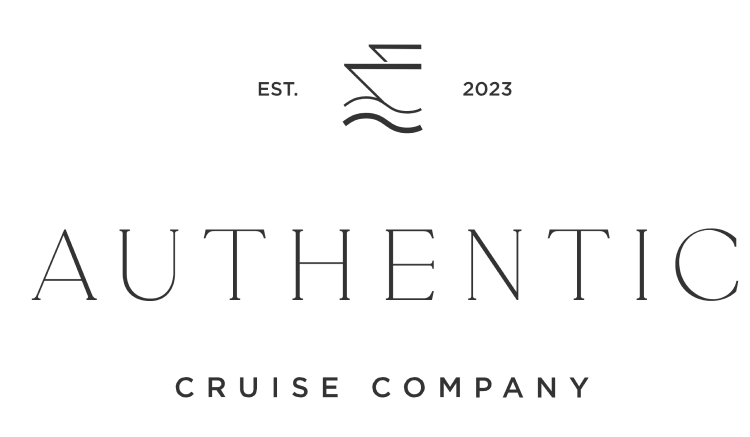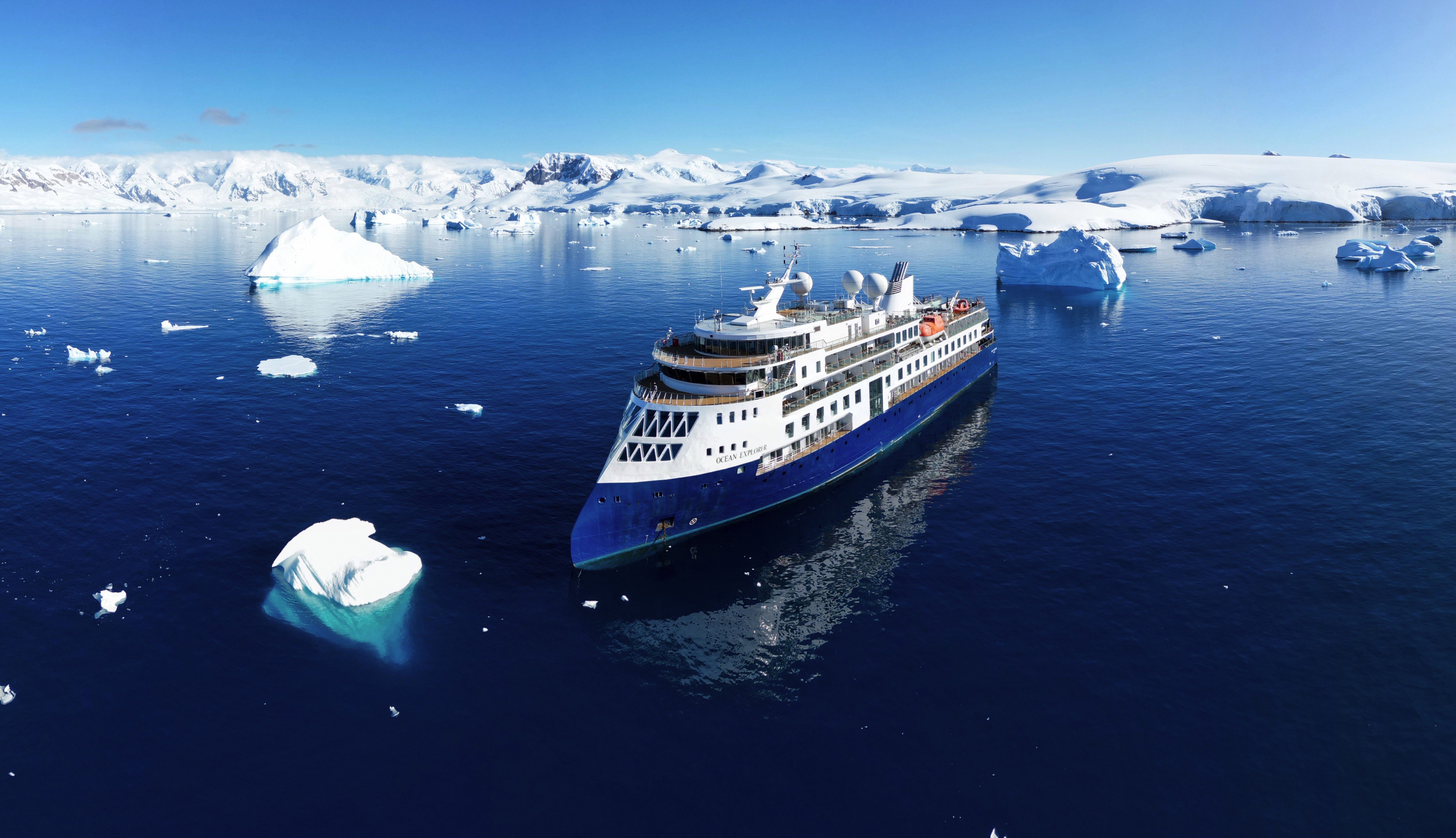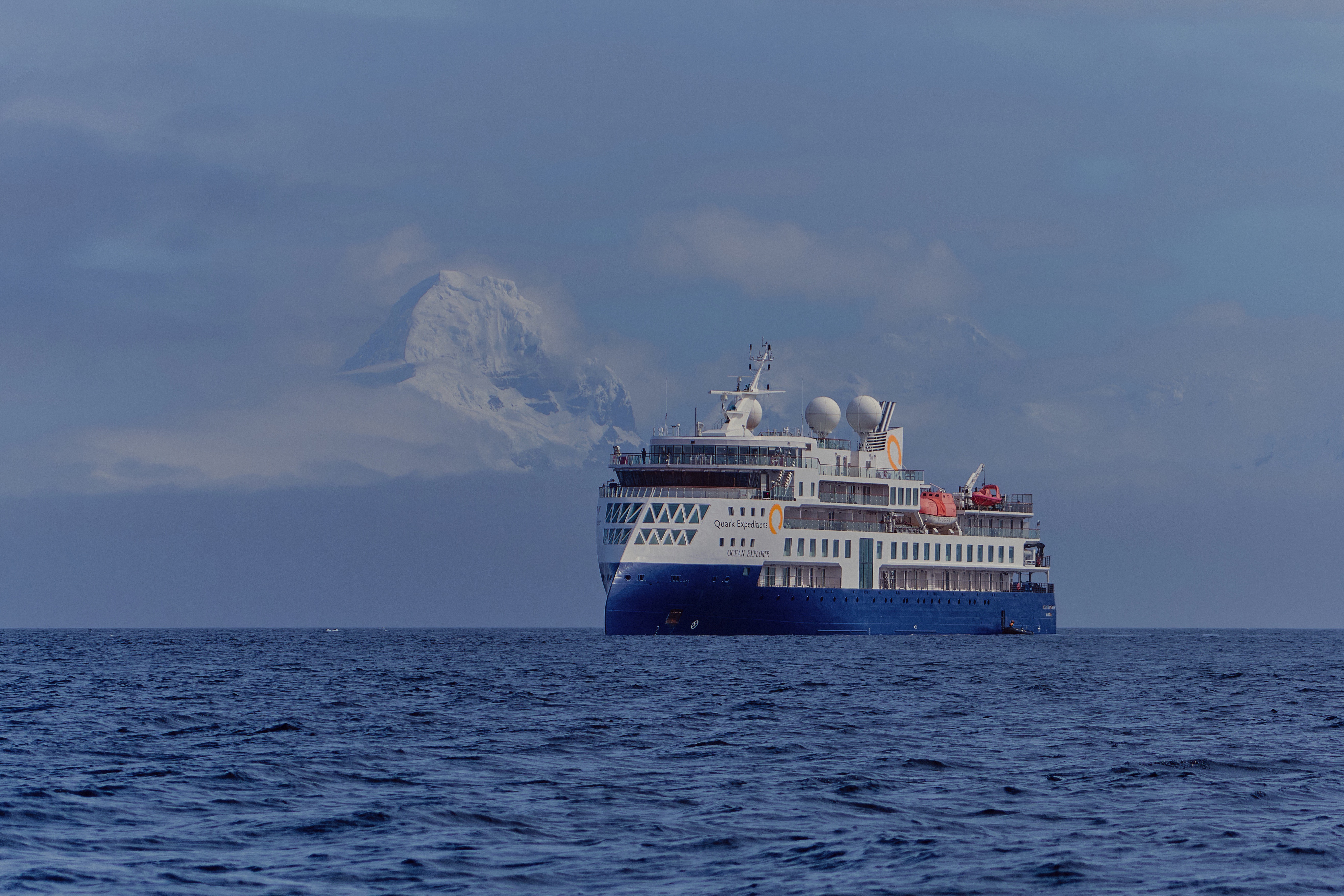Itinerary
Sprawling Reykjavík, the nation’s nerve center and government seat, is home to half the island’s population. On a bay overlooked by proud Mt. Esja (pronounced eh-shyuh), with its ever-changing hues, Reykjavík presents a colorful sight, its concrete houses painted in light colors and topped by vibrant red, blue, and green roofs. In contrast to the almost treeless countryside, Reykjavík has many tall, native birches, rowans, and willows, as well as imported aspen, pines, and spruces.Reykjavík’s name comes from the Icelandic words for smoke, reykur, and bay, vík. In AD 874, Norseman Ingólfur Arnarson saw Iceland rising out of the misty sea and came ashore at a bay eerily shrouded with plumes of steam from nearby hot springs. Today most of the houses in Reykjavík are heated by near-boiling water from the hot springs. Natural heating avoids air pollution; there’s no smoke around. You may notice, however, that the hot water brings a slight sulfur smell to the bathroom.Prices are easily on a par with other major European cities. A practical option is to purchase a Reykjavík City Card at the Tourist Information Center or at the Reykjavík Youth Hostel. This card permits unlimited bus usage and admission to any of the city’s seven pools, the Family Park and Zoo, and city museums. The cards are valid for one (ISK 3,300), two (ISK 4,400), or three days (ISK 4,900), and they pay for themselves after three or four uses a day. Even lacking the City Card, paying admission (ISK 500, or ISK 250 for seniors and people with disabilities) to one of the city art museums (Hafnarhús, Kjarvalsstaðir, or Ásmundarsafn) gets you free same-day admission to the other two.
Day programme:
Arrive in Reykjavik and transfer independently to your hotel, which is included in the Charter Flight & Hotel Package. Depending on your arrival time, you may wish to explore sites of the fascinating capital, which is known for its mix of modern architecture and Viking heritage. At 64°08′ north, Reykjavik is the world’s northernmost capital of an independent sovereign state.
Sprawling Reykjavík, the nation’s nerve center and government seat, is home to half the island’s population. On a bay overlooked by proud Mt. Esja (pronounced eh-shyuh), with its ever-changing hues, Reykjavík presents a colorful sight, its concrete houses painted in light colors and topped by vibrant red, blue, and green roofs. In contrast to the almost treeless countryside, Reykjavík has many tall, native birches, rowans, and willows, as well as imported aspen, pines, and spruces.Reykjavík’s name comes from the Icelandic words for smoke, reykur, and bay, vík. In AD 874, Norseman Ingólfur Arnarson saw Iceland rising out of the misty sea and came ashore at a bay eerily shrouded with plumes of steam from nearby hot springs. Today most of the houses in Reykjavík are heated by near-boiling water from the hot springs. Natural heating avoids air pollution; there’s no smoke around. You may notice, however, that the hot water brings a slight sulfur smell to the bathroom.Prices are easily on a par with other major European cities. A practical option is to purchase a Reykjavík City Card at the Tourist Information Center or at the Reykjavík Youth Hostel. This card permits unlimited bus usage and admission to any of the city’s seven pools, the Family Park and Zoo, and city museums. The cards are valid for one (ISK 3,300), two (ISK 4,400), or three days (ISK 4,900), and they pay for themselves after three or four uses a day. Even lacking the City Card, paying admission (ISK 500, or ISK 250 for seniors and people with disabilities) to one of the city art museums (Hafnarhús, Kjarvalsstaðir, or Ásmundarsafn) gets you free same-day admission to the other two.
Day programme:
After breakfast on Day 2, you’ll have time to explore on your own before your afternoon transfer to the modern, purpose-built ship Ocean Explorer. We set sail for “Iceland’s best-kept secret”—the Westfjords. This rugged peninsula, on the remote northwestern tip of Iceland, is dominated by mountains, volcanic rock and fjords. Mountains slope down to the sea in a dramatic fashion, providing plenty of opportunities for incredible landscape photography. We’ll spend the day exploring by Zodiac and ship, as well as guided shore landings where possible. The views are diverse: dramatic cliffs, gushing waterfalls, colorful beaches, rolling green hills, high moorlands dotted with rocky outcrops and tiny lakes. You’ll likely spot Icelandic ponies and shaggy sheep grazing the hillsides. A few outposts of civilization include small fishing communities at the fjord edges and along the shores of the Denmark Strait. One of the highlights in the Westfjords is a chance to visit Vigur, a private island where guests can delve into Icelandic culture and heritage as far back as the 11th century. Vigur is widely regarded as a capsule of Icelandic heritage. Upon arriving on shore by Zodiac. One of the island’s co-owners is polar explorer Felicity Aston, the first woman to ski solo across Antarctica. You’ll learn about the Icelandic tradition of eiderdown harvesting, and the wide array of Arctic birdlife and seals that are found in Vigur. It’s estimated that Vigur Island is home to over 7,000 breeding ducks, 100,000 puffins, Europe’s largest colony of Black Guillemots, and huge flocks of Arctic terns. You’ll also have opportunities to ramble about the island, taste local food and visit the island café. Today’s adventure options include Zodiac cruising, sea kayaking, paddle excursion program, and, potentially, a guided shore hike. Right across the bay is Mongufoss, one of Iceland’s most remote and beautiful waterfalls, which we’ll visit by ship. We may also visit Flatey, a small 1.5 km-long island in Breiðafjörður Bay.
Day programme:
After breakfast on Day 2, you’ll have time to explore on your own before your afternoon transfer to the modern, purpose-built ship Ocean Explorer. We set sail for “Iceland’s best-kept secret”—the Westfjords. This rugged peninsula, on the remote northwestern tip of Iceland, is dominated by mountains, volcanic rock and fjords. Mountains slope down to the sea in a dramatic fashion, providing plenty of opportunities for incredible landscape photography. We’ll spend the day exploring by Zodiac and ship, as well as guided shore landings where possible. The views are diverse: dramatic cliffs, gushing waterfalls, colorful beaches, rolling green hills, high moorlands dotted with rocky outcrops and tiny lakes. You’ll likely spot Icelandic ponies and shaggy sheep grazing the hillsides. A few outposts of civilization include small fishing communities at the fjord edges and along the shores of the Denmark Strait. One of the highlights in the Westfjords is a chance to visit Vigur, a private island where guests can delve into Icelandic culture and heritage as far back as the 11th century. Vigur is widely regarded as a capsule of Icelandic heritage. Upon arriving on shore by Zodiac. One of the island’s co-owners is polar explorer Felicity Aston, the first woman to ski solo across Antarctica. You’ll learn about the Icelandic tradition of eiderdown harvesting, and the wide array of Arctic birdlife and seals that are found in Vigur. It’s estimated that Vigur Island is home to over 7,000 breeding ducks, 100,000 puffins, Europe’s largest colony of Black Guillemots, and huge flocks of Arctic terns. You’ll also have opportunities to ramble about the island, taste local food and visit the island café. Today’s adventure options include Zodiac cruising, sea kayaking, paddle excursion program, and, potentially, a guided shore hike. Right across the bay is Mongufoss, one of Iceland’s most remote and beautiful waterfalls, which we’ll visit by ship. We may also visit Flatey, a small 1.5 km-long island in Breiðafjörður Bay.
Day programme:
After breakfast on Day 2, you’ll have time to explore on your own before your afternoon transfer to the modern, purpose-built ship Ocean Explorer. We set sail for “Iceland’s best-kept secret”—the Westfjords. This rugged peninsula, on the remote northwestern tip of Iceland, is dominated by mountains, volcanic rock and fjords. Mountains slope down to the sea in a dramatic fashion, providing plenty of opportunities for incredible landscape photography. We’ll spend the day exploring by Zodiac and ship, as well as guided shore landings where possible. The views are diverse: dramatic cliffs, gushing waterfalls, colorful beaches, rolling green hills, high moorlands dotted with rocky outcrops and tiny lakes. You’ll likely spot Icelandic ponies and shaggy sheep grazing the hillsides. A few outposts of civilization include small fishing communities at the fjord edges and along the shores of the Denmark Strait. One of the highlights in the Westfjords is a chance to visit Vigur, a private island where guests can delve into Icelandic culture and heritage as far back as the 11th century. Vigur is widely regarded as a capsule of Icelandic heritage. Upon arriving on shore by Zodiac. One of the island’s co-owners is polar explorer Felicity Aston, the first woman to ski solo across Antarctica. You’ll learn about the Icelandic tradition of eiderdown harvesting, and the wide array of Arctic birdlife and seals that are found in Vigur. It’s estimated that Vigur Island is home to over 7,000 breeding ducks, 100,000 puffins, Europe’s largest colony of Black Guillemots, and huge flocks of Arctic terns. You’ll also have opportunities to ramble about the island, taste local food and visit the island café. Today’s adventure options include Zodiac cruising, sea kayaking, paddle excursion program, and, potentially, a guided shore hike. Right across the bay is Mongufoss, one of Iceland’s most remote and beautiful waterfalls, which we’ll visit by ship. We may also visit Flatey, a small 1.5 km-long island in Breiðafjörður Bay.
Day programme:
Navigating within the boundaries of the Northeast Greenland National Park—the planet’s largest national park covering 972,000 square kilometers—we will sail into Kangerluk Kong Oscar, also known as Kong Oscar Fjord, on the northern border of Scoresby Land. This major f jord system, popular for its famously bright sandstone, stretches 110 kilometers long and 10 to 25 kilometers wide. You will also experience the wonders of nature in Segelsällskapet Fjord, where a spectacular display of “geological art” awaits: alternating layers of limestone and dolomite stretching before you in a stunningly beautiful canvas created over tens of thousands of years.
Day programme:
Navigating within the boundaries of the Northeast Greenland National Park—the planet’s largest national park covering 972,000 square kilometers—we will sail into Kangerluk Kong Oscar, also known as Kong Oscar Fjord, on the northern border of Scoresby Land. This major f jord system, popular for its famously bright sandstone, stretches 110 kilometers long and 10 to 25 kilometers wide. You will also experience the wonders of nature in Segelsällskapet Fjord, where a spectacular display of “geological art” awaits: alternating layers of limestone and dolomite stretching before you in a stunningly beautiful canvas created over tens of thousands of years.
Day programme:
Our purpose-built vessel will cruise deep into Scoresby Sund, allowing guests to marvel at the overwhelming beauty of the world’s largest fjord system and its vast icebergs. This area offers plenty of opportunities to explore during Zodiac cruises and onshore visits, and, if conditions allow, time to visit Ittoqqortoormiit, the most remote community in East Greenland. There will be a palpable sense of excitement in the air as anticipation builds for our much-awaited eclipse viewing. Behind the scenes, your Expedition Leader and the Ship Captain will work closely together, monitoring sea and ice conditions and meteorological forecasts—particularly cloud cover—to strategically position Ocean Explorer in the best location possible to maximize your views of the solar eclipse.
Day programme:
Our purpose-built vessel will cruise deep into Scoresby Sund, allowing guests to marvel at the overwhelming beauty of the world’s largest fjord system and its vast icebergs. This area offers plenty of opportunities to explore during Zodiac cruises and onshore visits, and, if conditions allow, time to visit Ittoqqortoormiit, the most remote community in East Greenland. There will be a palpable sense of excitement in the air as anticipation builds for our much-awaited eclipse viewing. Behind the scenes, your Expedition Leader and the Ship Captain will work closely together, monitoring sea and ice conditions and meteorological forecasts—particularly cloud cover—to strategically position Ocean Explorer in the best location possible to maximize your views of the solar eclipse.
Day programme:
Ocean Explorer will sail further into Scoresby Sund, where the team will identify the most optimal viewing point along the path of totality. With the total eclipse of the sun lasting 2 minutes and 17.2 seconds, this region of the Arctic provides the longest duration of totality along the entire eclipse path. The eclipse will start at 2:34 pm, and totality will begin at 3:34 pm and end at 3:36 pm. The eclipse viewing experience, a duration of 2 hours, 1 minute, and 3 seconds, will conclude at 4:35 pm. Throughout this exciting day, you will have opportunities to learn from our guest eclipse expert, Michael Zeiler. This 2026 eclipse is part of Saros series 126, which is a cycle of solar eclipses that repeats approximately every 18 years. It’s worth noting that total solar eclipses in Polar Regions are relatively rare due to the smaller land area and the fact that the sun only illuminates each pole for part of the year. The Quark Expeditions team and our special eclipse expert will continue to research the geography of this region as we prepare for the event. Right up until the day of the eclipse itself, our team will study the mountainous terrain, the angles of the sun in the sky, localized ice conditions and weather patterns to determine the best possible viewing experience. Your Expedition Leader will outline the day’s agenda in the days and hours leading up to the eclipse.
Aappilattoq is a small settlement near the western end of Prins Christian Sund in southwestern Greenland. In the local Greenlandic language the name means, “sea anemone”. This small village of 130 inhabitants, hidden behind a prominent rock, offers a good insight into the life of Greenlandic Inuit. A stroll through the village will reveal a small school and a church, along with the likely possibility of seeing a polar bear skin drying in the wind behind a local dwelling. People have lived off the land in the area around Aappilattoq since the 19th century. The tradition continues today as most people here hunt and fish to make a living.
Day programme:
Tiny and picturesque Aappilattoq, home to approximately 100 permanent residents, is perched on the shores of one of the world’s most scenic fjords, the 100-km long Prins Christian Sund (also known as Ikerasassuaq). Aappilattoq is the second-most southerly settlement in Greenland (after Narsamiit). The name Aappilattoq has been interpreted to mean “sea anemone,” or “red” after the crimson mountain rising above the settlement. The area has been inhabited since the 1800s, but the current village was only established in 1922. The majority of residents rely on hunting and fishing, with local fishermen selling surplus cod and turbot to a small fish factory run by Royal Greenland. Services include a general store, fire station, elementary school, boat service, church and a general repairs workshop.
Day programme:
Ivittuut, formerly known as Ivigtût (“grassy place”), is an abandoned mining town near Cape Desolation in southwestern Greenland, close to the ruins of the ancient Norse Middle Settlement. Historians and archeologists believe this settlement— the least documented Norse settlement in Greenland—once comprised about 20 farms. A handful of miningrelated structures still remain—some dilapidated—including a barracks, a storehouse and a cemetery. The 1987 translocation of muskoxen to Ivittuut from the Kangerlussuaq area is the reason you may see the lumbering beasts in the area. Otherwise, native wildlife consists mostly of Arctic hare and Arctic fox. It’s also possible to spot semi-domestic reindeer from Greenland’s only active reindeer husbandry operation, the Isortoq Reindeer Station, located south of Ivittuut.
Nuuk, meaning “the cape”, was Greenland’s first town (1728). Started as a fort and later mission and trading post some 240 kilometers south of the Arctic Circle, it is the current capital. Almost 30% of Greenland’s population lives in the town. Not only does Nuuk have great natural beauty in its vicinity, but there are Inuit ruins, Hans Egede’s home, the parliament, and the Church of our Saviour as well. The Greenlandic National Museum has an outstanding collection of Greenlandic traditional dresses, as well as the famous Qilakitsoq mummies. The Katuaq Cultural Center’s building was inspired by the undulating Northern Lights and can house 10% of Nuuk’s inhabitants.
Day programme:
Upon arriving in Greenland’s capital, enjoy one more Zodiac ride to shore for the group transfer to the airport to catch your charter flight to Reykjavik, Iceland. Upon arrival in Reykjavik, we will transfer you to your hotel. Both your hotel and charter flight are included in the Charter Flight & Hotel Package.
Sprawling Reykjavík, the nation’s nerve center and government seat, is home to half the island’s population. On a bay overlooked by proud Mt. Esja (pronounced eh-shyuh), with its ever-changing hues, Reykjavík presents a colorful sight, its concrete houses painted in light colors and topped by vibrant red, blue, and green roofs. In contrast to the almost treeless countryside, Reykjavík has many tall, native birches, rowans, and willows, as well as imported aspen, pines, and spruces.Reykjavík’s name comes from the Icelandic words for smoke, reykur, and bay, vík. In AD 874, Norseman Ingólfur Arnarson saw Iceland rising out of the misty sea and came ashore at a bay eerily shrouded with plumes of steam from nearby hot springs. Today most of the houses in Reykjavík are heated by near-boiling water from the hot springs. Natural heating avoids air pollution; there’s no smoke around. You may notice, however, that the hot water brings a slight sulfur smell to the bathroom.Prices are easily on a par with other major European cities. A practical option is to purchase a Reykjavík City Card at the Tourist Information Center or at the Reykjavík Youth Hostel. This card permits unlimited bus usage and admission to any of the city’s seven pools, the Family Park and Zoo, and city museums. The cards are valid for one (ISK 3,300), two (ISK 4,400), or three days (ISK 4,900), and they pay for themselves after three or four uses a day. Even lacking the City Card, paying admission (ISK 500, or ISK 250 for seniors and people with disabilities) to one of the city art museums (Hafnarhús, Kjarvalsstaðir, or Ásmundarsafn) gets you free same-day admission to the other two.
Day programme:
After a restful night at your hotel, make your way to Keflavik International Airport for your onward flight, or spend additional time exploring Reykjavik at your leisure.
Ship features
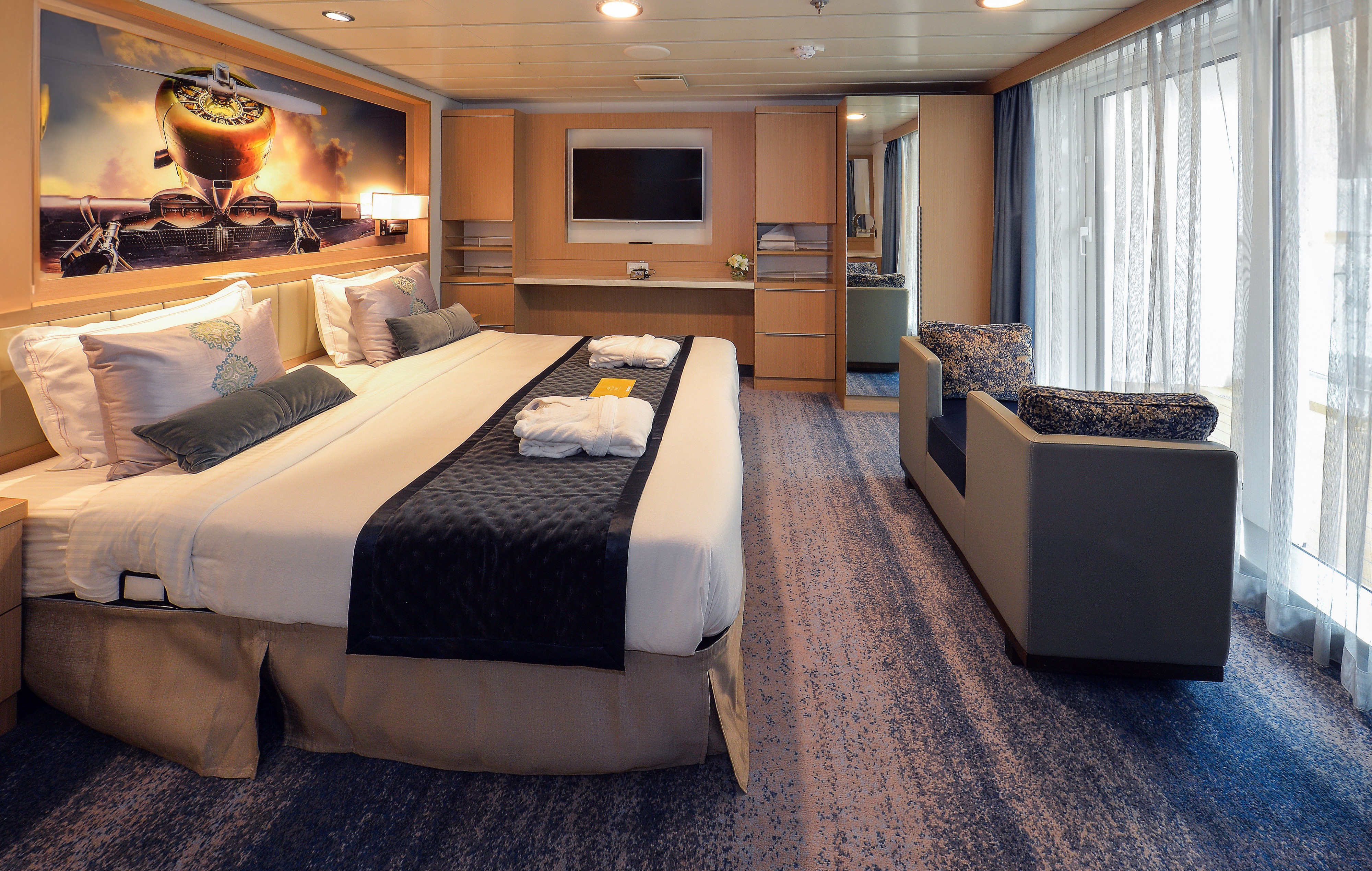
Owners Suite
This palatial, airy apartment offers stunning views from its large private veranda on the highest cabin level. The luxurious suite features a large master bedroom, living room and dining area and two large master bathrooms, among other amenities.
Bed Config.
Two rooms. One double bed made up of two twin berths fold out sofa bed
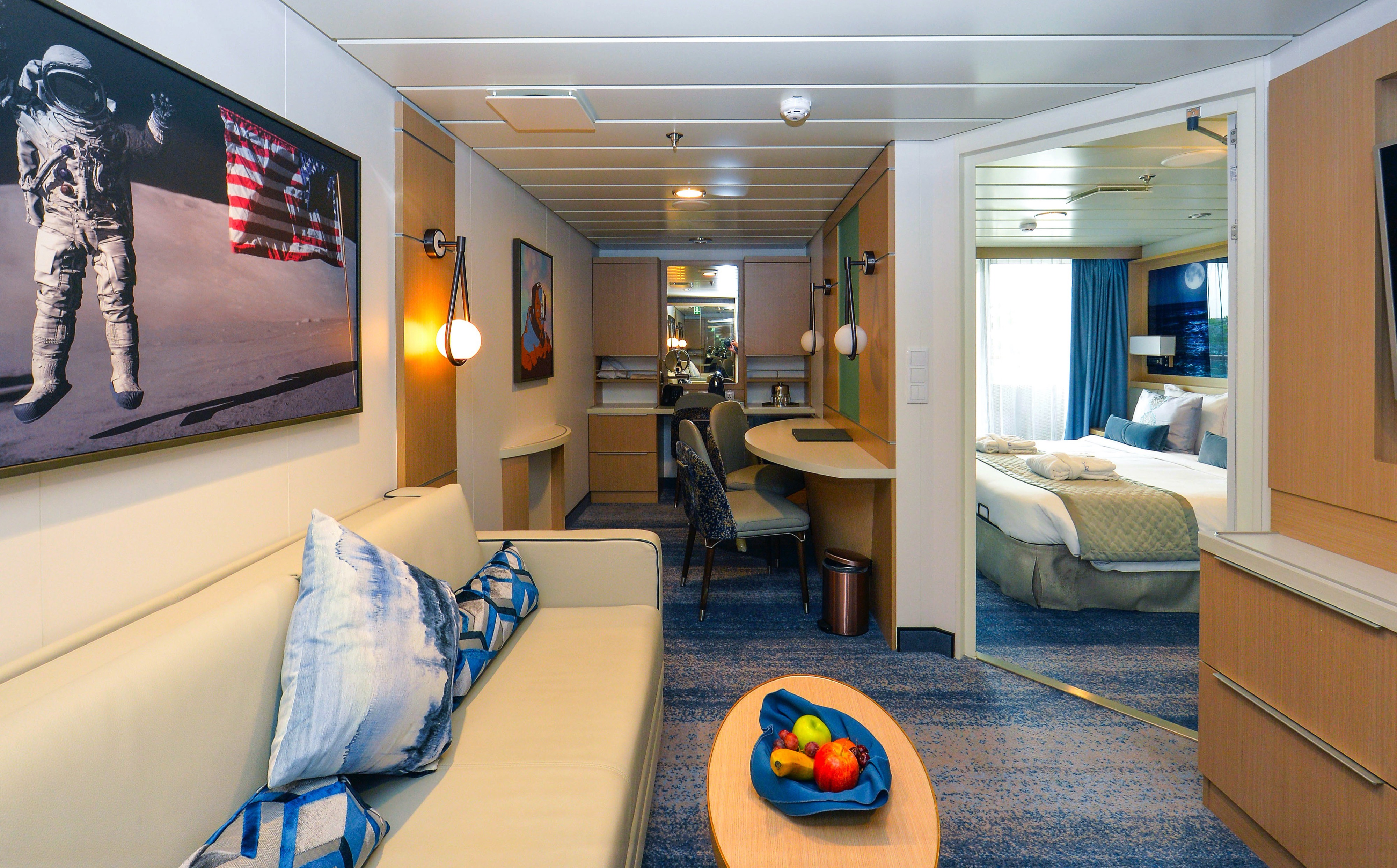
Junior Suite
Located on Deck 6 and approximately 298 sq. f. (27.7 sq. m,) in size. These 2-room suites have one double bed that can be configured into two singles in the inner bedroom and an outer sitting room furnished with a sofa-bed, and activity table for two. From the bedroom there a floor to ceiling glass view that opens to a double sized walkout balcony. There are also 2 TV’s, state of the art ‘infotainment’ system and private bathroom with bathtub, vanity and heated floor.
Bed Config.
Two rooms. One double bed made up of two twin berths fold out sofa bed
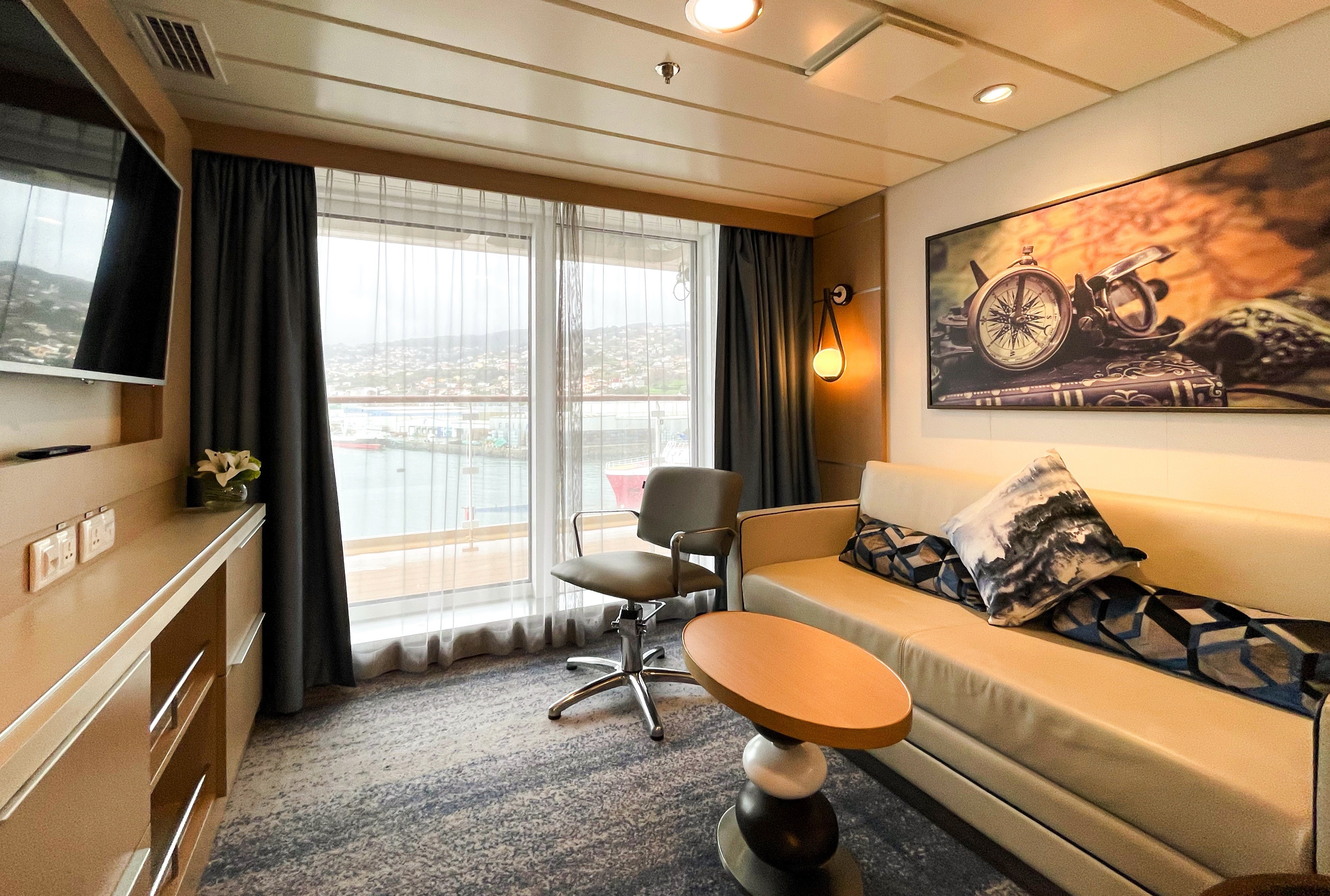
Penthouse Suite
This unique 2-room suite is located on Deck 7 and is approximately 269 sq. f (25.0 sq. m.) in size. It has one double bed that can be configured into two singles in the inner bedroom and the outer sitting area is furnished with a sofa-bed. Walk-out from either room to a double sized balcony. There are also 2 TV’s, state of the art ‘infotainment’ system and private bathroom with shower, vanity and heated floor. And an additional powder room in the outside sitting area.
Bed Config.
Two rooms. One double bed made up of two twin berths fold out sofa bed
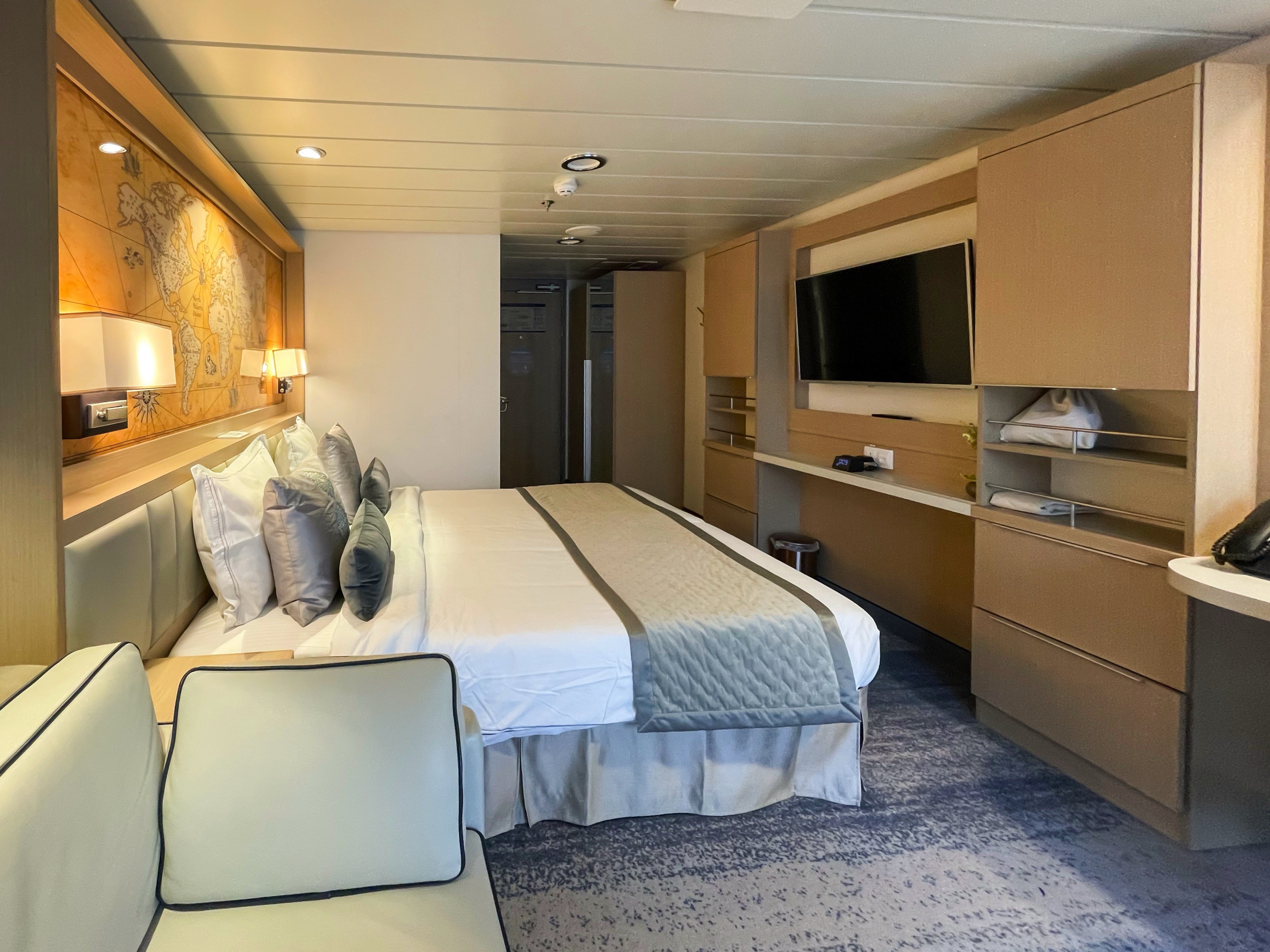
Veranda Suite
Located throughout the ship and approximately 205 sq. ft. (19.2 sq. m,) in size, these cabins have one double bed that can be configured into two singles, and separate sitting area furnished with a sofa-bed. There is a floor to ceiling glass view that opens to a walkout balcony. There is also a desk and chair, TV, state of the art ‘infotainment’ system and private bathroom with shower, vanity and heated floor.
Bed Config.
One double bed made up of two twin berths and fold out sofa bed
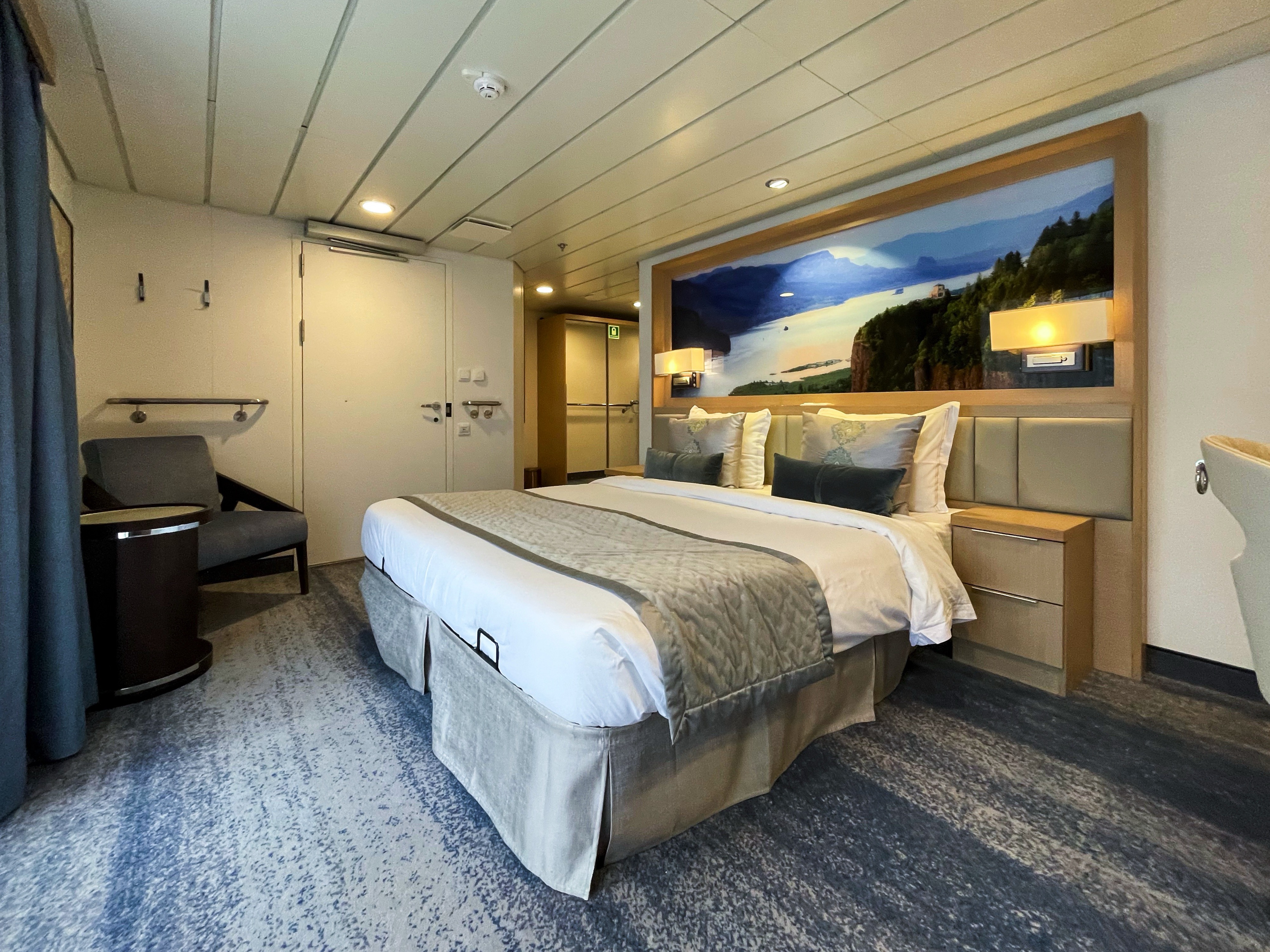
Veranda Stateroom
Located throughout the ship and approximately 208 sq. f. (19.3 sq. m,) in size, these cabins have one double bed that can be configured into two singles, and seperate sitting area furnished with two club chairs and a reading table. There is a floor to ceiling glass view that opens to a walkout balcony. There is also a desk and chair, TV, state of the art ‘infotainment’ system and private bathroom with shower, vanity and heated floor. Note: 611 and 612 do not have the club chairs and a reading table.
Bed Config.
One double bed made up of two twin berths plus fold out sofa bed
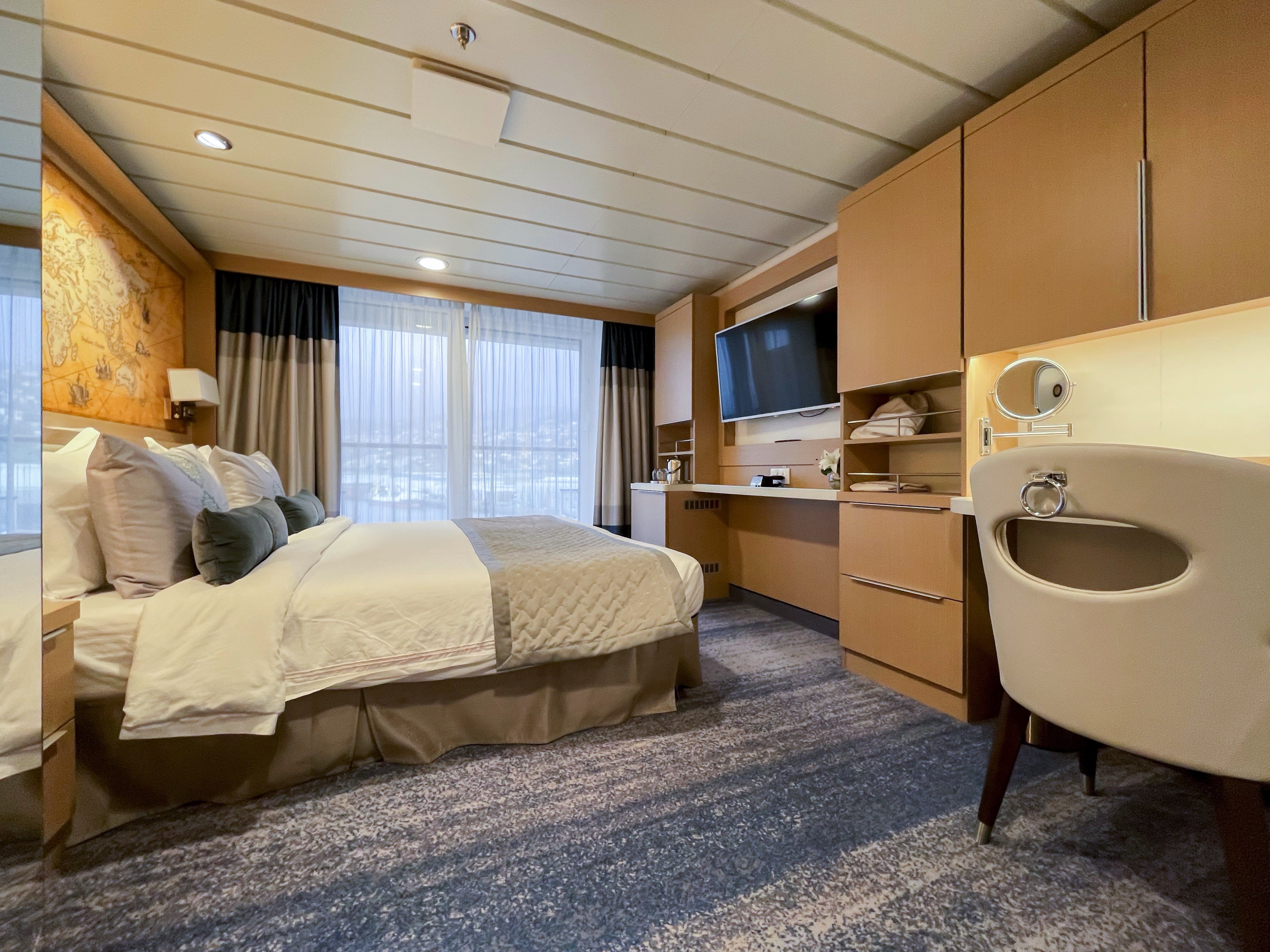
Deluxe Veranda Forward
Located on Deck 4 and approximately 182 sq. f. (16.9 sq. m,) in size, these cabins have one double bed that can be configured into two singles. There is a floor to ceiling glass view that opens to a walkout balcony. There is also a desk and chair, TV, state of the art ‘infotainment’ system and private bathroom with shower, vanity and heated floor.
Bed Config.
One double bed made up of two twin berths
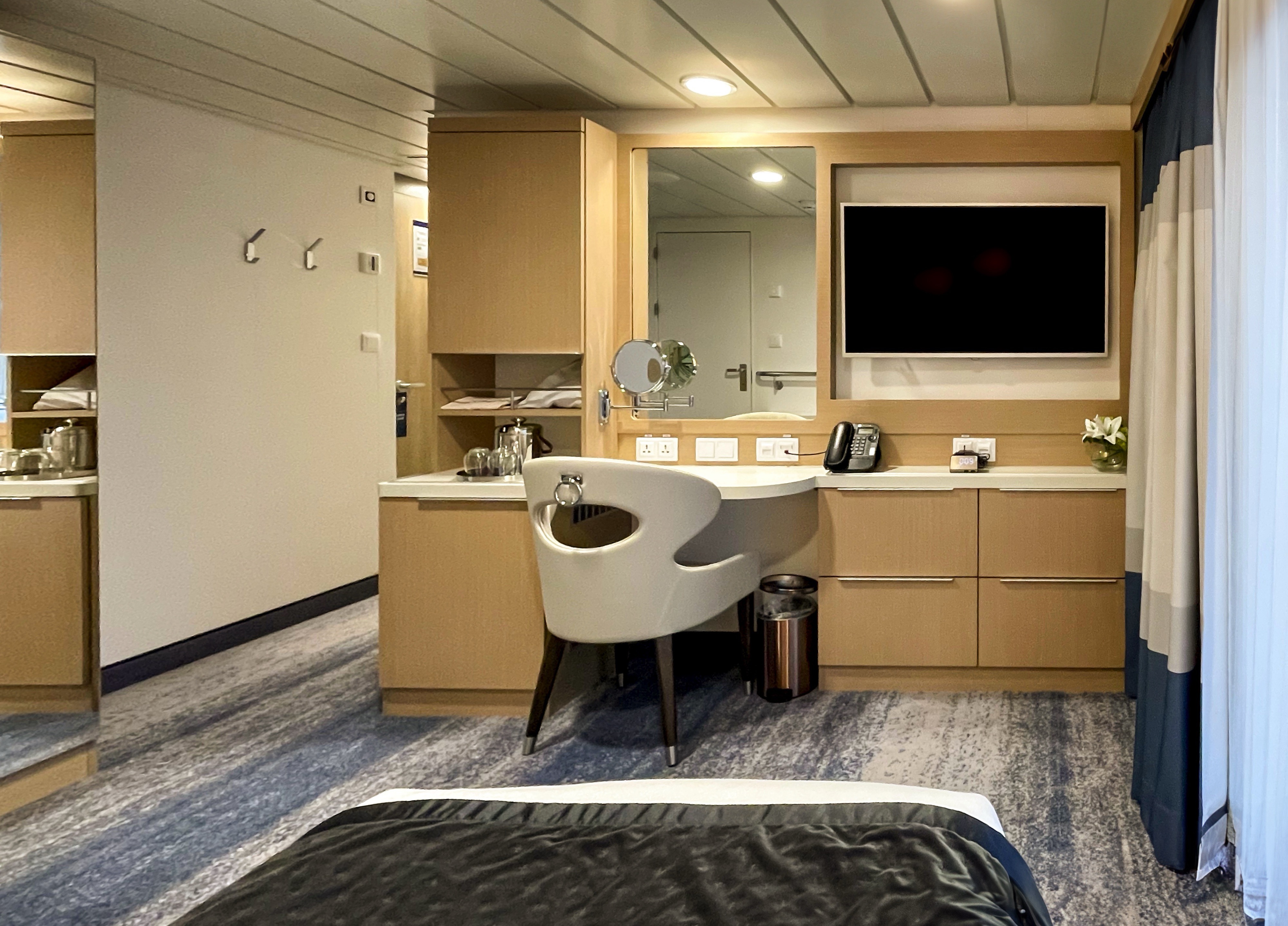
Studio Veranda Single
Located on Deck 6 and approximately 173 sq. f. (16.1 sq. m,) in size, these cabins have one double bed that can be configured into two singles.
There is a floor to ceiling glass view that opens to a walkout balcony. There is also a desk and chair, TV, state of the art ‘infotainment’ system and private bathroom with shower, vanity and heated floor.

Studio Single
Designed for one. These cabins are located on Deck 3 and approximately 166 sq. ft. (15,4 sq. m,) in size, with one double bed and a porthole view. There is also a desk and chair, TV, state of the art ‘infotainment’ system and private bathroom with shower, vanity and heated floor.
Bed Config.
One double bed made up of two twin berths
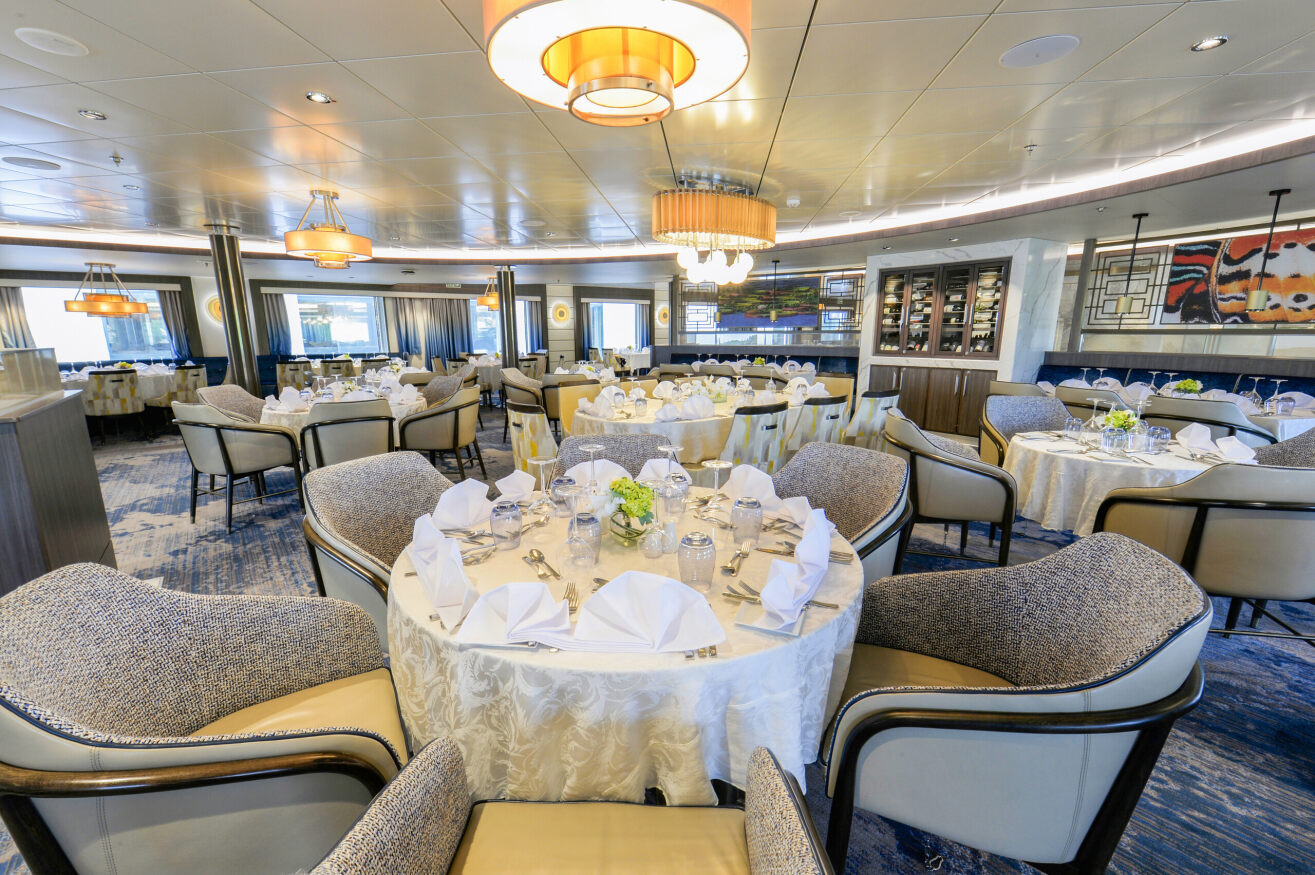
Main Dining Room
Contemporary meets cozy in this modern dining room with its stylish lighting and contemporary art. Located on Deck 5, the Main Dining Room seats 144 guests, and features expansive floor-to-ceiling windows that open onto the spectacular polar wilderness.
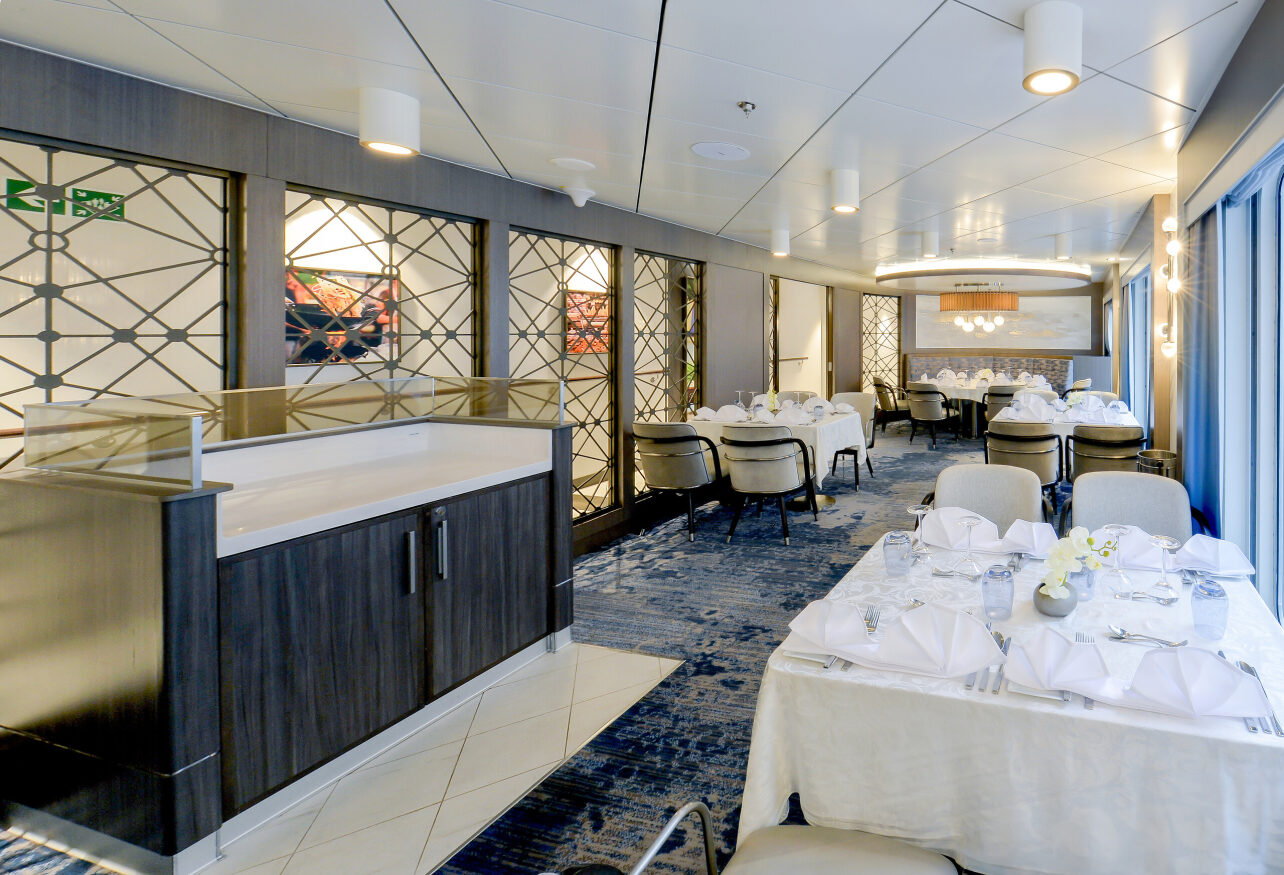
Private Dining Room
Tasteful and intimate. This stylish, private dining room on deck 5 provides a relaxed dining experience—with views of the polar landscape—for up to 36 guests.

Observation Bistro
With its marine blue and off-white colors—is your go-to spot for lighter fare and graband-go snacks. This relaxed eatery seats up to 44 guests, who can take in full views of their polar surroundings and wildlife while enjoying a light bite.
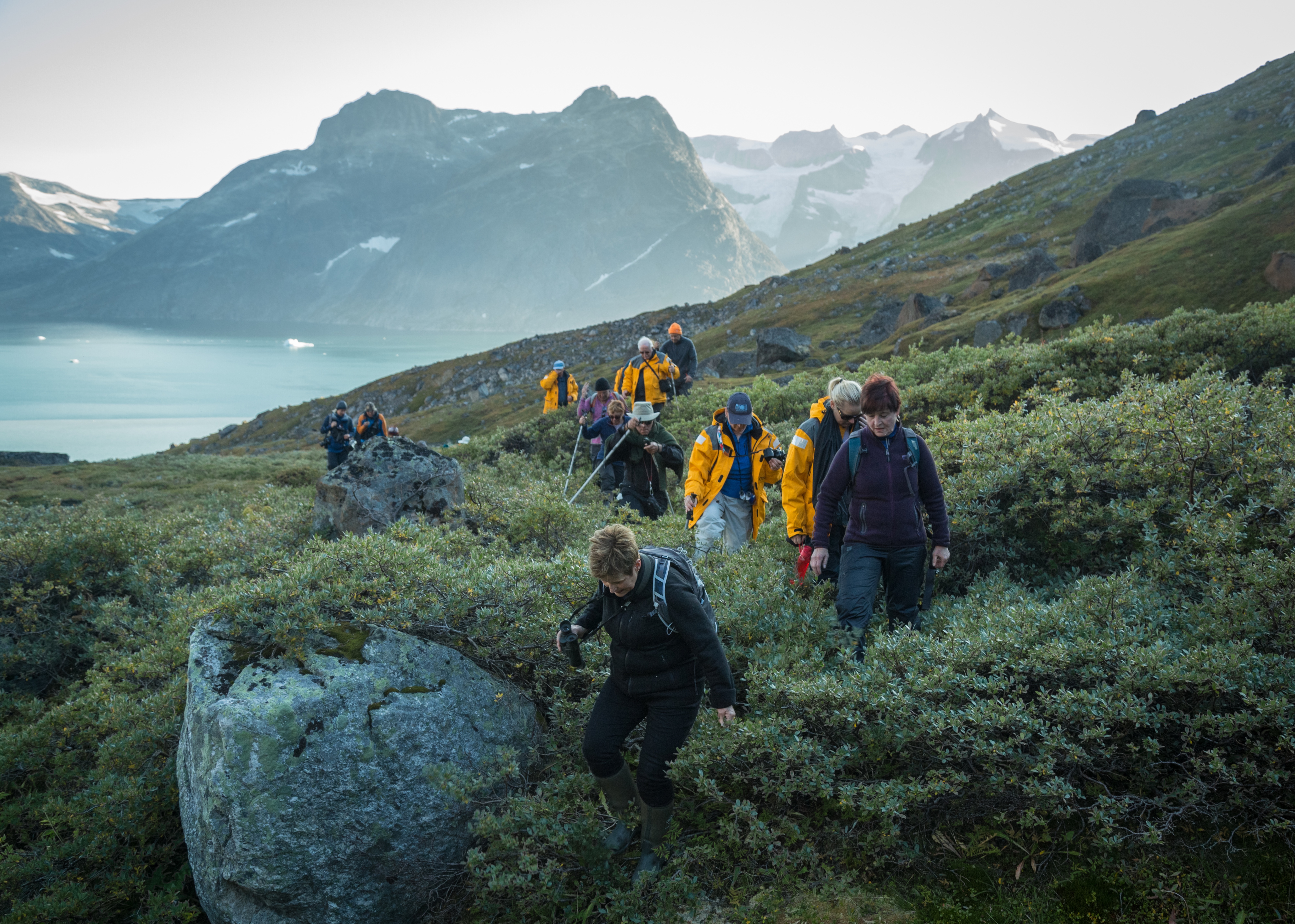
Off-Ship Adventures
With four separate sea-level embarkation points and a fleet of 15 Zodiacs, Ocean Explorer offers a comprehensive breadth of off-ship activities including Zodiac cruising and paddling, allowing you to intimately connect with the polar wilderness.
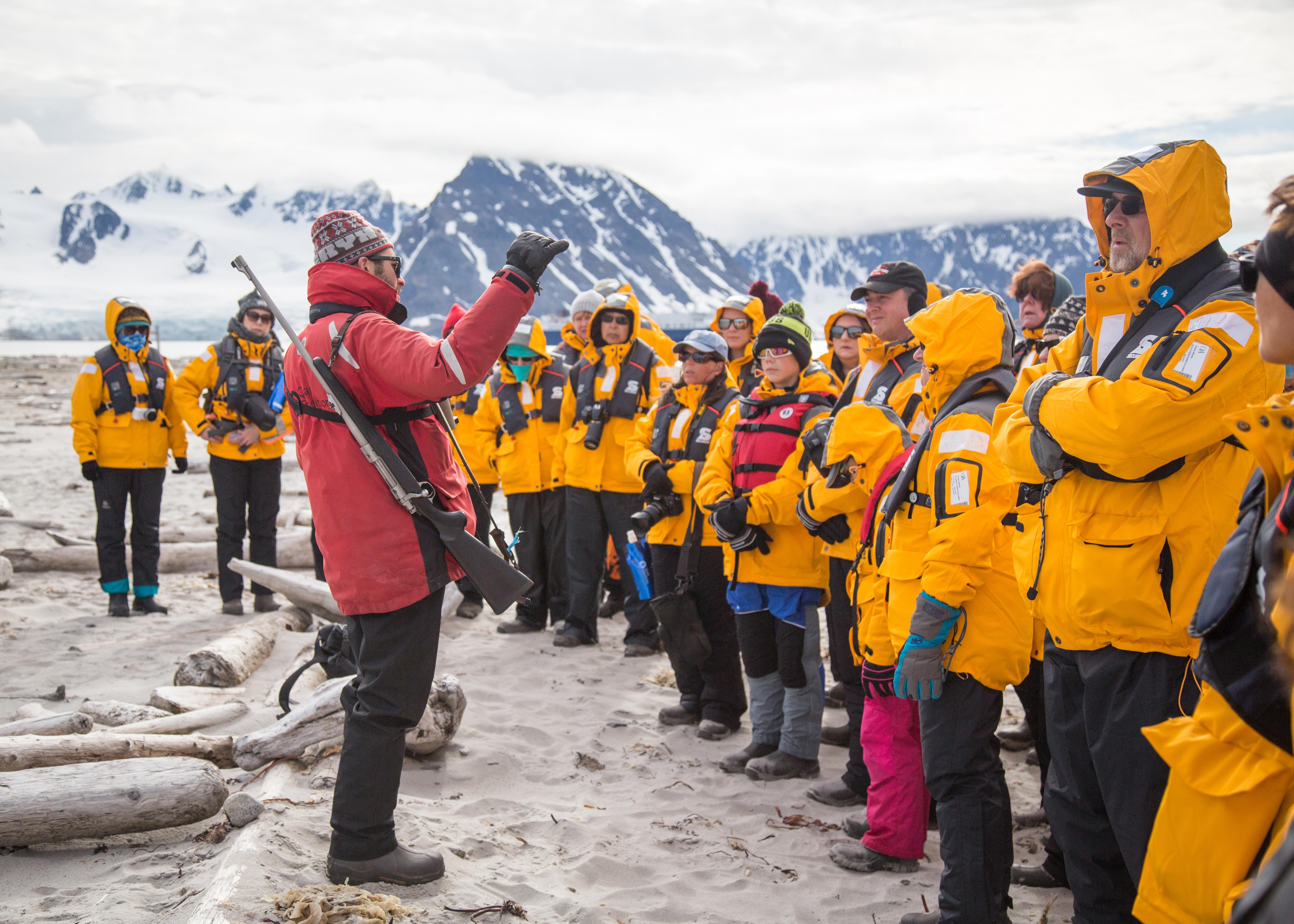
Expedition Team
The perfect polar expedition doesn’t just happen. It takes a team of talented, knowledgeable and experienced professionals to bring it all together. Our Expedition Team is comprised of seasoned veterans with rich backgrounds in marine biology, history, glaciology, geology and more. With the highest staff-to-guest ratio in the industry, our Expedition Teams safely deliver your trip-of-a-lifetime to maximize your polar adventure every step of the way.
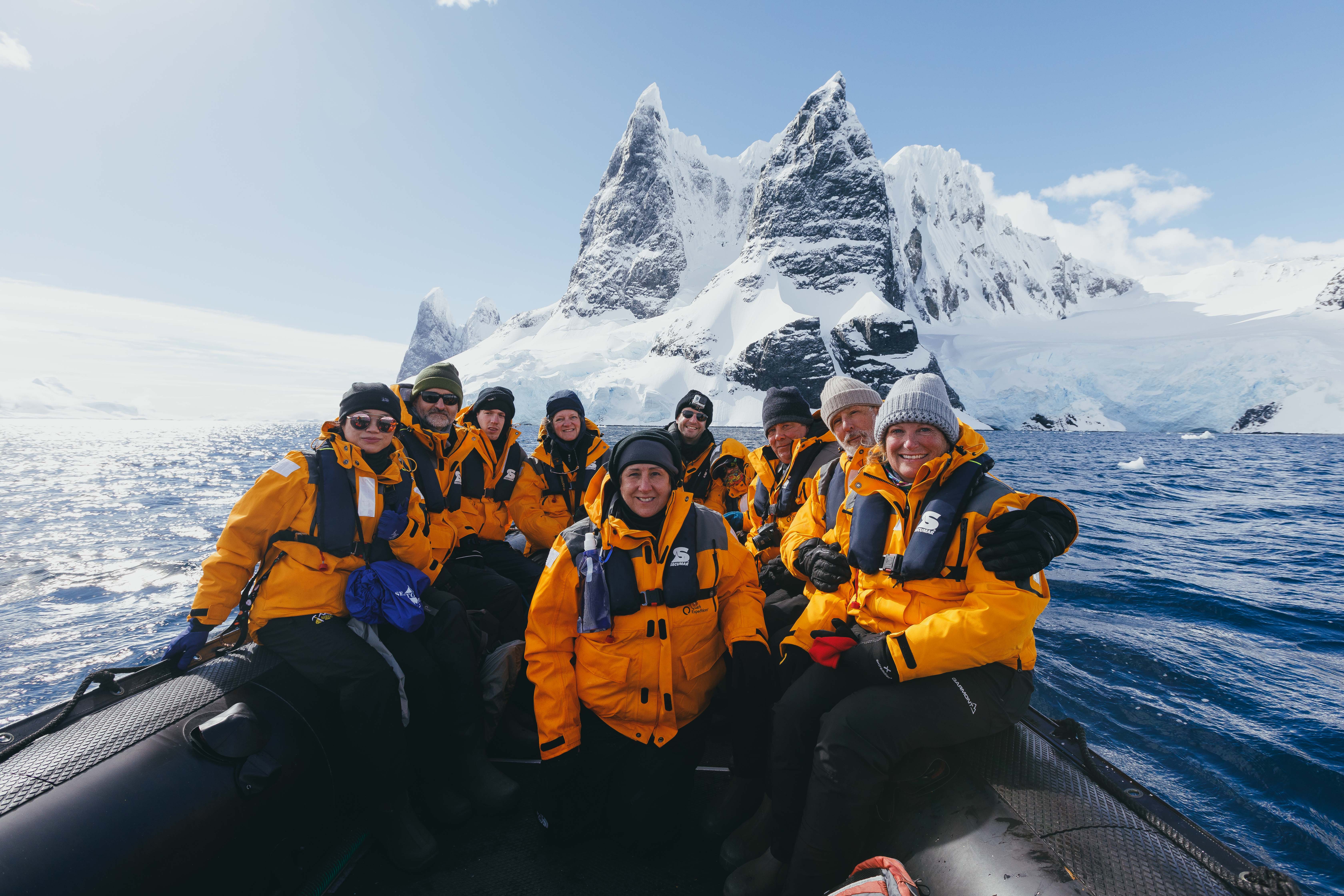
Zodiac Cruising
Zodiacs are used for transferring you ashore, transporting your luggage when necessary and for taking you ocean-level cruising among icebergs, whales and seabirds. During the expedition, you will visit remote and isolated sites that are accessible only by Zodiac.
These large, heavy-duty inflatable vessels are extremely safe and were specially designed for expedition work. Zodiacs are the workhorses of Polar expeditions. Separate air compartments retain a large reserve of buoyancy even if these sturdy boats are damaged. Their flat bottom design permits the craft to land directly onto the cobble and ice-strewn beaches that you will encounter on your Polar expedition.
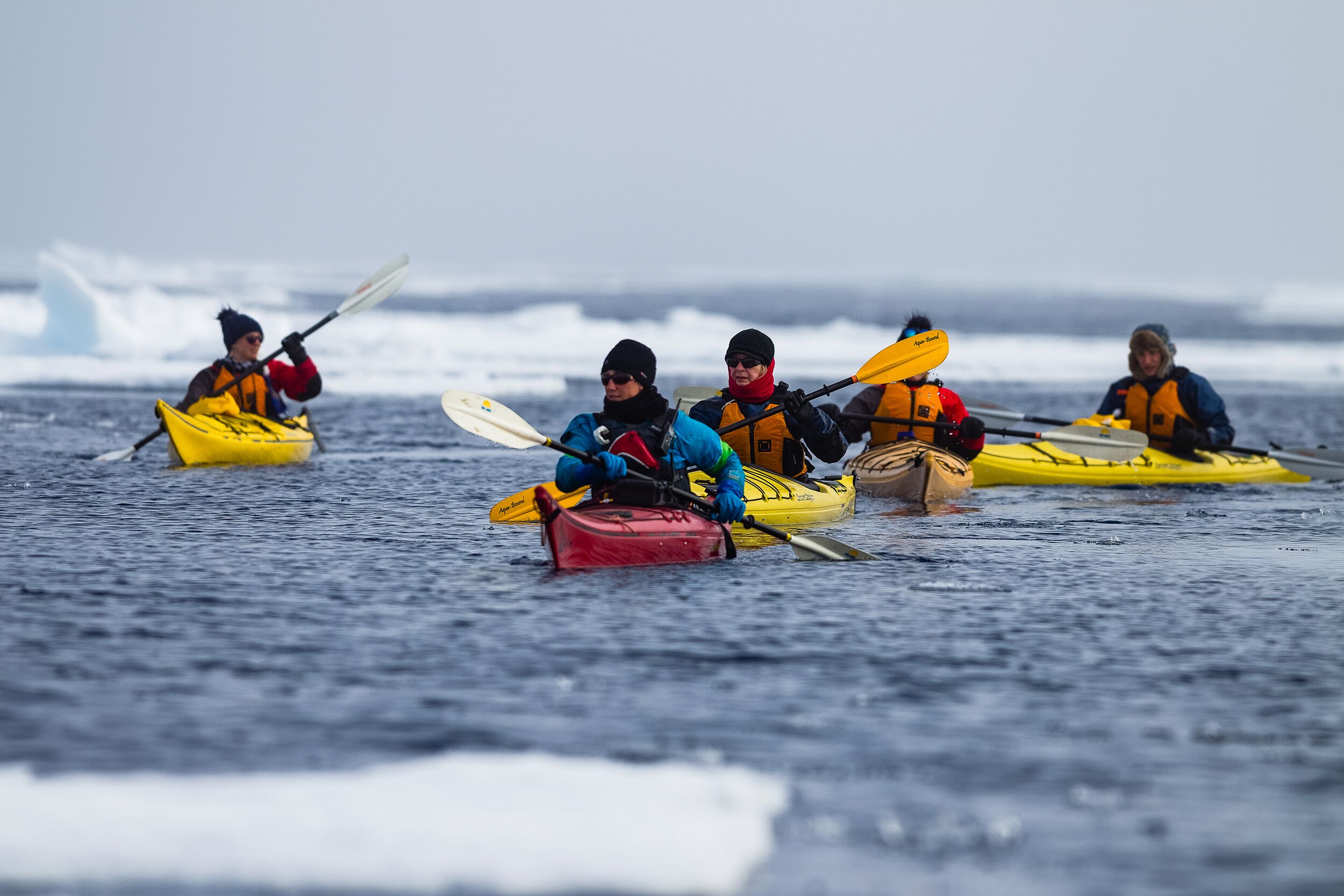
Sea Kayaking
Sea kayaking is offered on all of our departures and you require no previous experience to enjoy this activity. Our sea kayaks are the ideal means by which to get some good exercise and explore the cliffs and shores of the various visitor sites around the archipelago. A typical cruise week offers great opportunities to go kayaking around secluded coves, shores, mangrove estuaries and beautiful beaches. Galapagos penguins, flightless cormorants, sea lions and many other animals can be seen up close on a kayak and even as they swim.
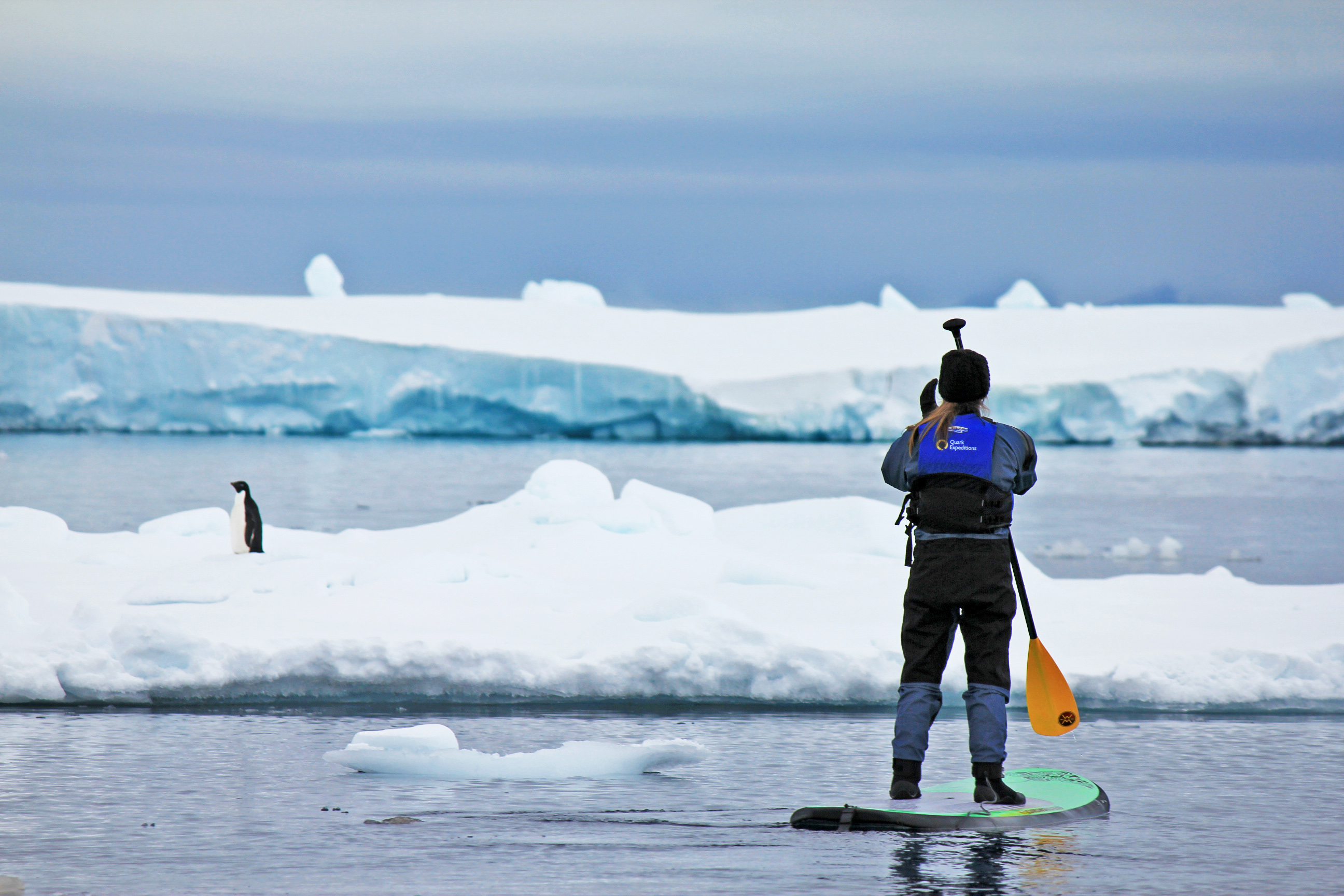
Stand-up Paddleboarding
Stand-up Paddleboarding, popularly known as SUPing, originated in Hawaii. Quark Expeditions is the first company to bring this watersport all the way to Antarctica.
SUPing combines the immersive experience of kayaking but in a standing position. Participants, if they prefer, can kneel, sit or even lie down and stare up at the azure Antarctic sky. Because of their wide base and tail fins, SUP boards are quite stable, enabling participants – after a bit of practice – to stop staring at their feet and admire the surrounding scenery. Imagine seeing Gentoo penguins gliding below you, or making eye contact with a Weddell seal lying on a piece of ice as you paddle by.
Guests receive on-ship and on-water instruction from a qualified SUP guide. In addition, a safety driver (in a Zodiac) stays within range to offer assistance.
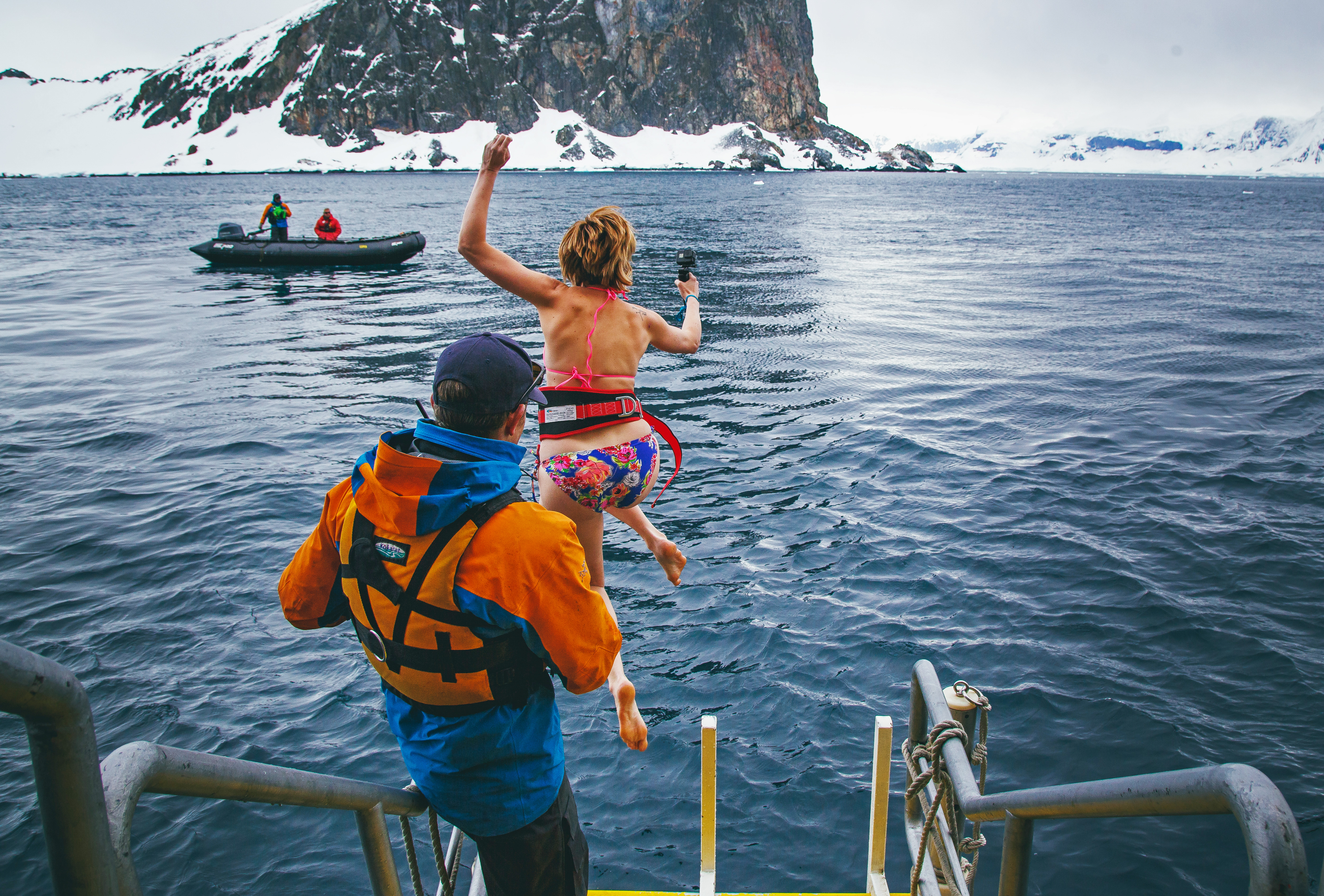
Polar Plunge
The Polar Plunge is scheduled once during each voyage. Throughout the journey, the Expedition Leader and Captain constantly monitor conditions in order to choose the optimal time and location. The Polar Plunge sometimes takes place onshore or, in many cases, from the gangway or Zodiac. All participants wear a tethered harness and plunge into the polar waters from the side of Zodiac or safety of the gangplank cheered on, of course, by fellow passengers and Expedition Team.
Safety is paramount—the onboard physician always attends the Polar Plunge. Guides in survival gear circle the area in Zodiacs as guests take their turn jumping or cannon-balling into the polar waters.
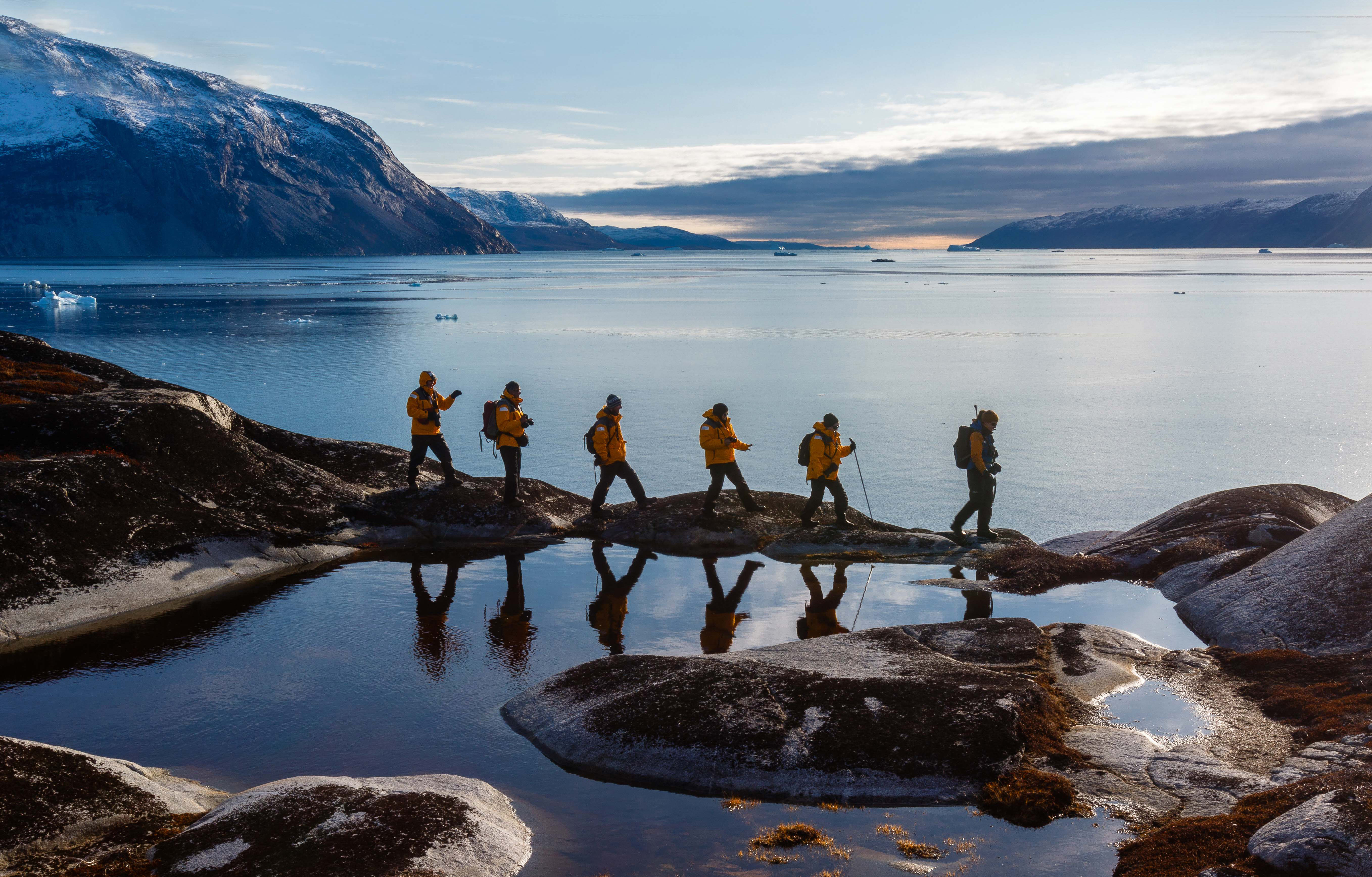
Hiking
Hiking in the polar regions differs from your typical trail experience. Here, in a tree-less terrain, you are the tallest figure on the landscape as you walk over spongy tundra, crusty snow or sandy beaches in remotes parts of the Arctic and Antarctica. Stepping ashore anywhere in the polar regions means you’re not a distant observer.
Our organized hikes range from short jaunts to the top of lookouts or visits to see wildlife or longer walks of several kilometers over ice and rock and snow. Hiking excursions may last from two to three hours with plenty of time for photographs of wildlife, learning moments from your experienced guides, or just time to stand back and admire the incredible polar surroundings.
No experience is necessary but participants should be able to get in and out of a Zodiac and walk on uneven terrain. Hiking options are tailored to all interests and abilities, from those who want to contemplate the landscape in silence to photographers who want that perfect image to energetic travelers who want to summit a peak in the hopes of seeing wildlife in their natural habitat.
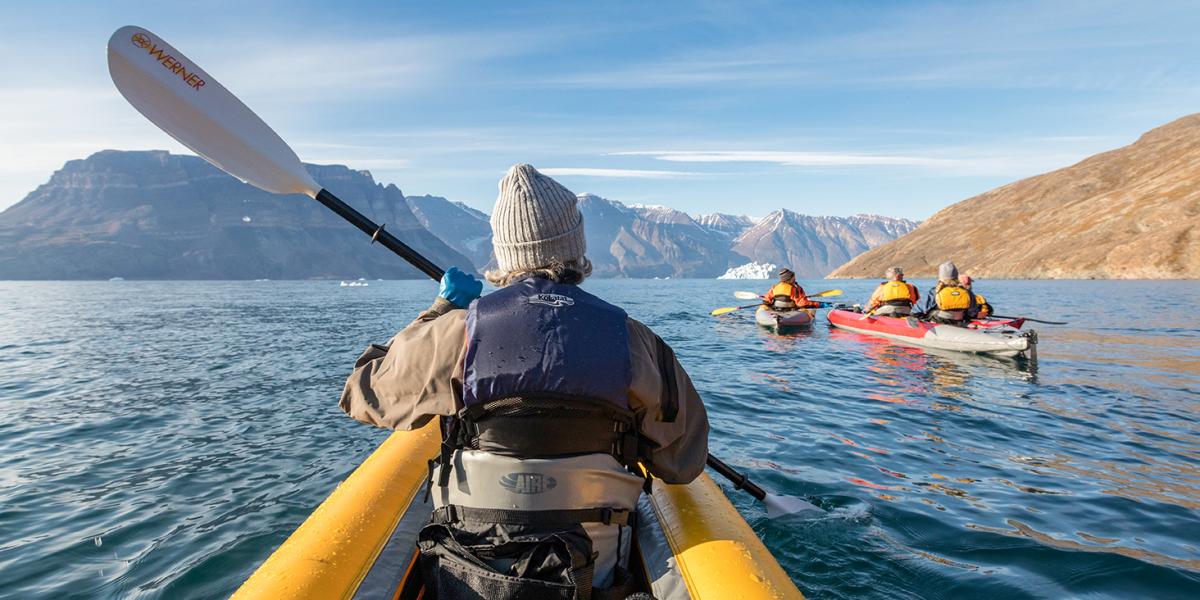
Paddling Excursion
Explore the ocean from a more intimate vantage point on a sit-on-top kayak. No experience is required to manoeuvre these very stable kayaks, allowing you to enjoy an unforgettable experience on the water, taking in breathtaking landscapes and wildlife. Whether it’s your first time in a kayak or you want greater flexibility to try other Adventure options, this shorter excursion is for you.
Paddling in the Polar Regions is highly weather-dependent and a one-time experience. Your kayak guides will attempt to take you out on the water for 1-1.5 hours of paddling. Offered on most voyages, spaces are limited. All equipment, guides and instructions are provided by Quark.
Pricing subject to change based on season. Please proceed to checkout or contact a Polar Travel Adviser for more details.
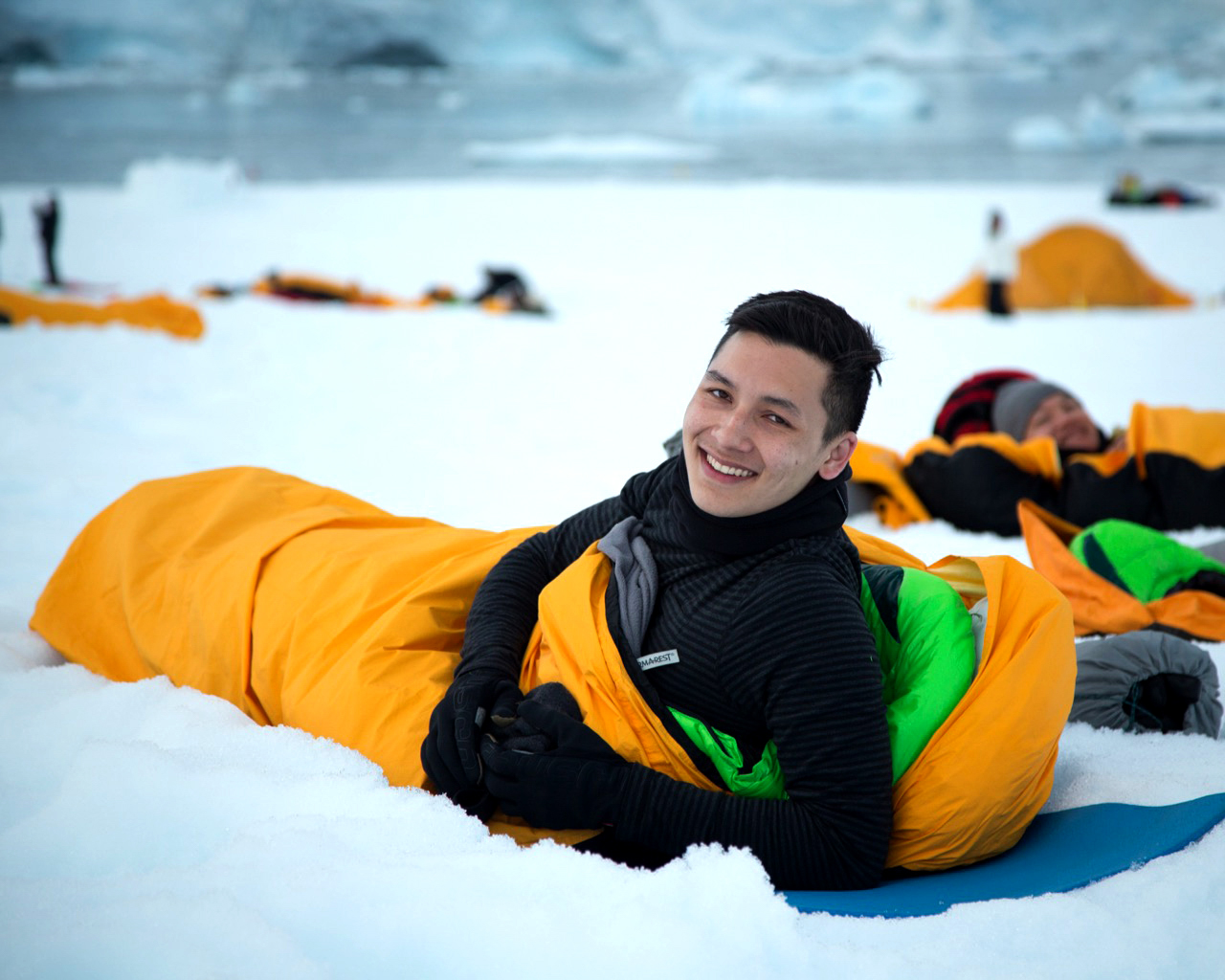
Camping
Imagine for a moment, staring at the stars in the indigo glow of an Antarctic night as you bed down for the night outside in the elements. The buzz of your daily life becomes a distant memory as you listen to the bray of penguin, the ethereal calls of the Weddell sea – even the exhalation of a humpback whale. And then you fall asleep.
Antarctic Camping with Quark Expeditions is an unforgettable experience. After dinner onboard, you’ll be escorted ashore by Zodiac to camp out on the snow for the night in your ready-to-roll bivy sack (tents can be used upon request). Once you decide on your spot, you set up camp and enjoy the peace as the Antarctic night unfolds.
Camping in Antarctica is limited to 50 participants, all of whom will be briefed beforehand on the principals of basic camping. Prior to you settling down for the night, Quark Expeditions staff will prepare the site, including setting up a perimeter in safe, flat to gently-sloping and beautiful site. You’re free to choose where (within the perimeters) you want to settle down for the night.
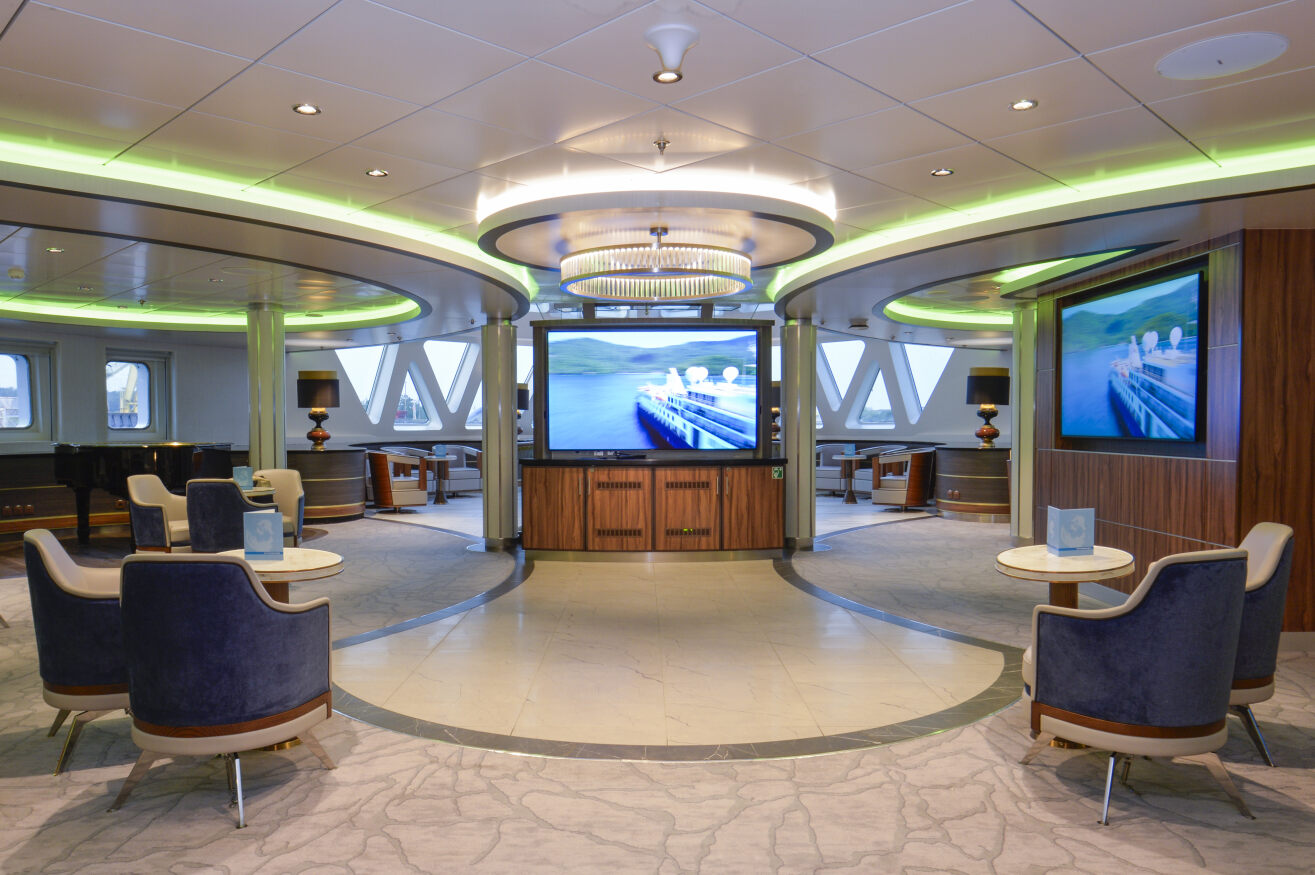
Explorer Lecture Lounge
Enjoy daily chats with and presentations by our world-class onboard polar experts—expedition guides, specialists, photography guides and other special guests who will introduce you to the fascinating history, biology, ornithology, glaciology and geology of the region, and much, much more.
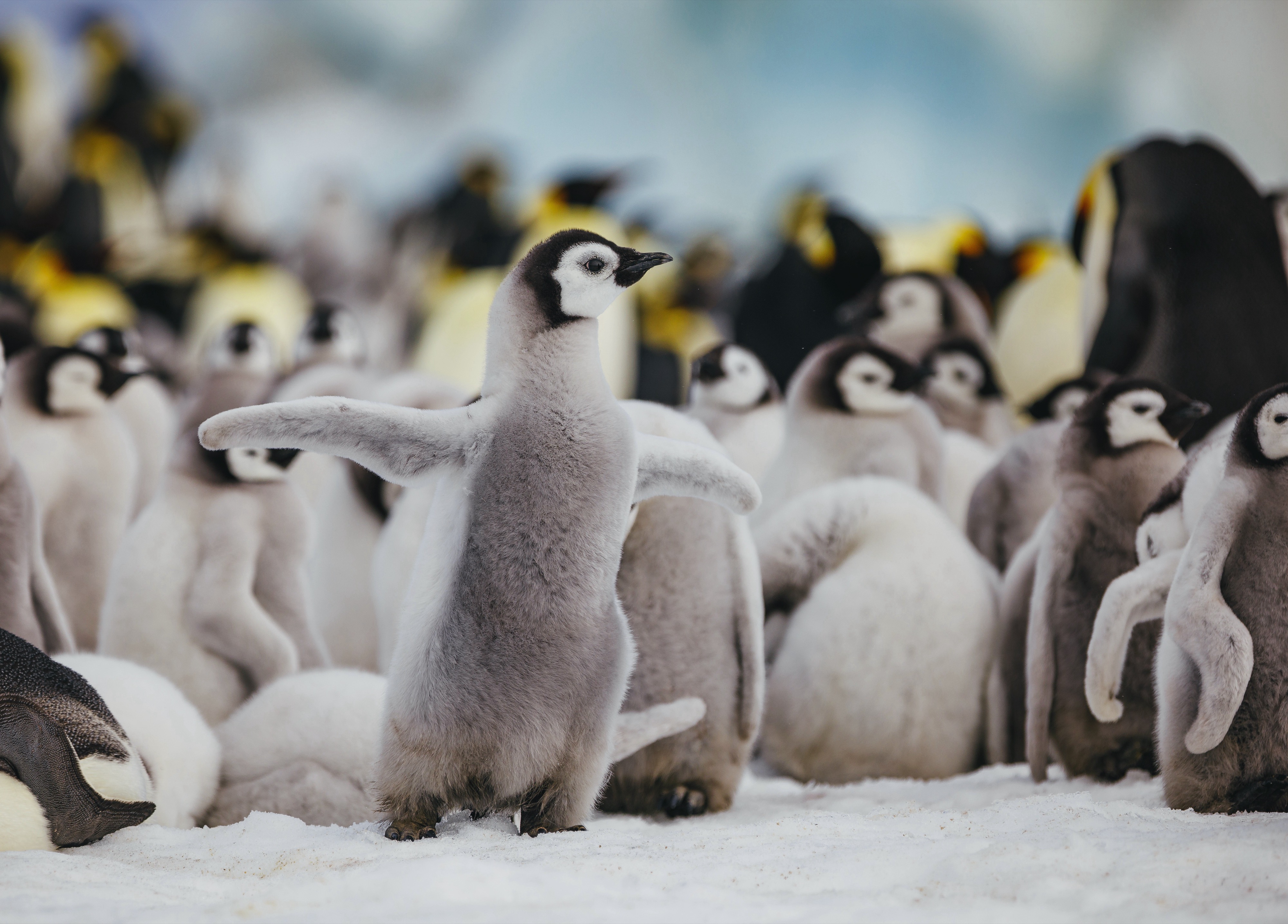
Photography
Documenting your voyage so you can take the memories home is a rewarding experience. Our photography guides will help you hone your skills to capture the beauty of the polar regions.
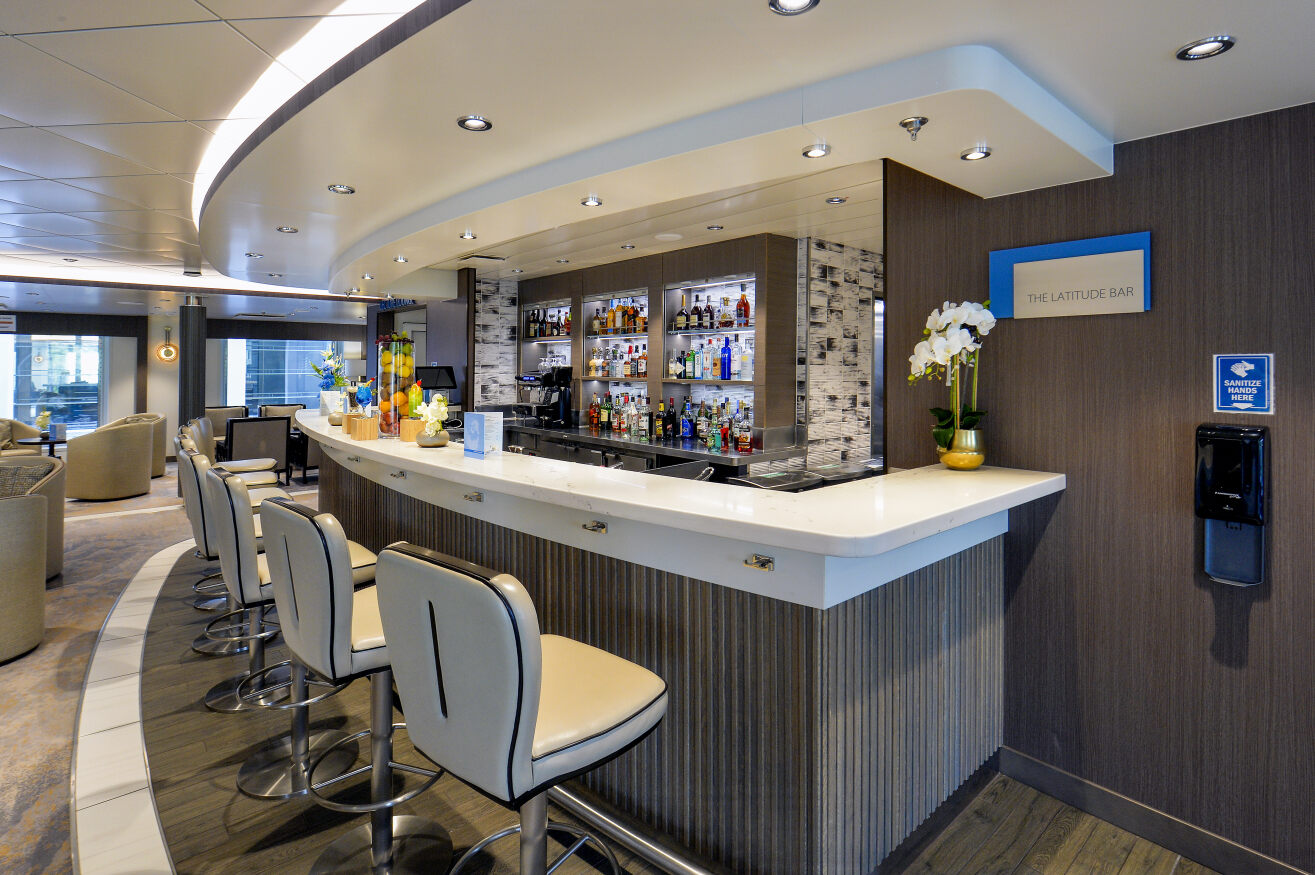
The Latitude Bar
A popular social hub on Deck 5, the beautifully-lit Latitude Bar—with its lush sofas and faux marble-topped end tables—is large enough to seat 46 and is ideal for enjoying a quiet drink on your own or hanging out with friends.

Observation Lounge
This stylish lounge at the top of the ship guarantees incredible views. Guests also frequent this spacious lookout on Deck 8 to enjoy cocktails and conversation with fellow travelers. Seats 63.
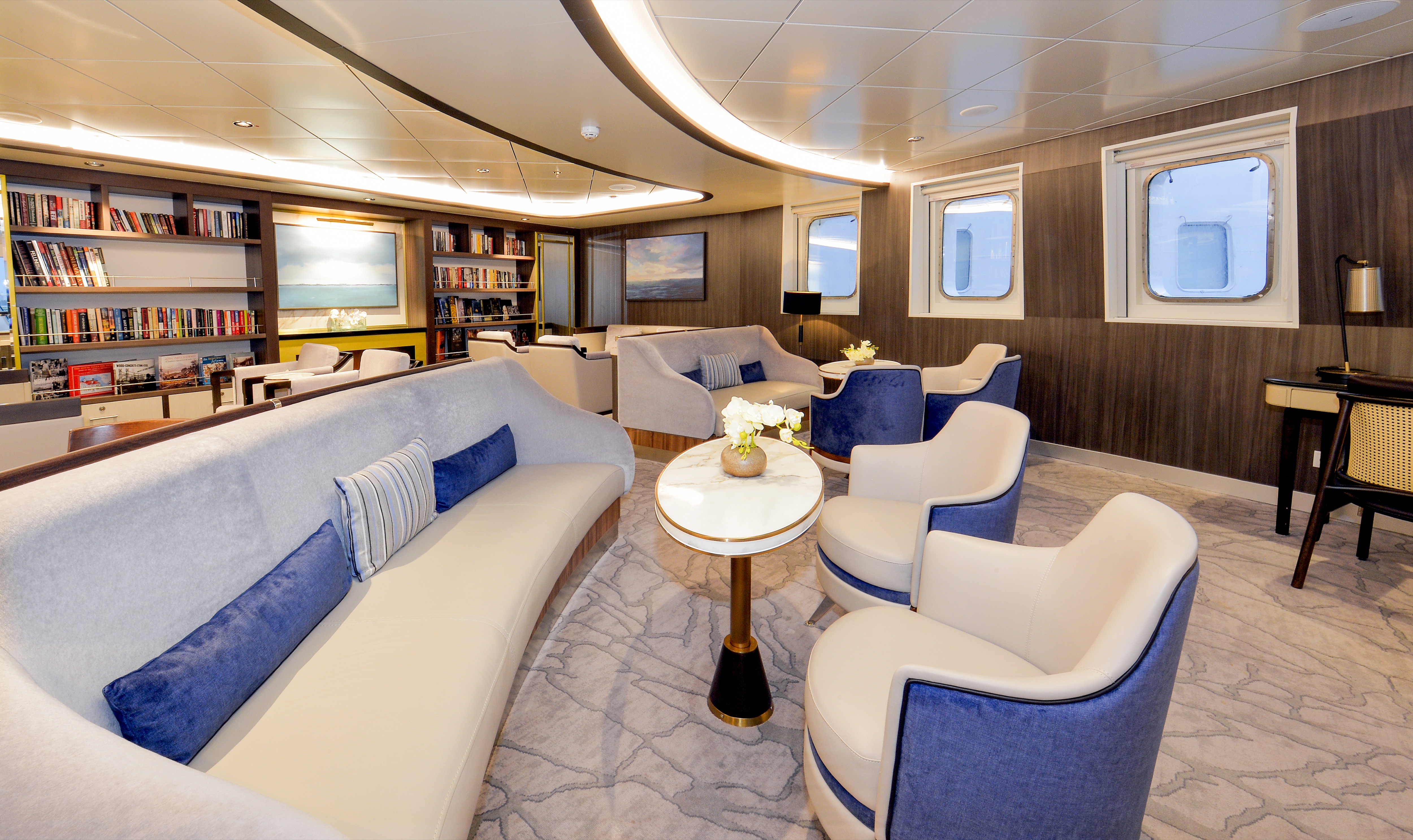
Discovery Library
Located on Deck 6 at the top of the gorgeous atrium staircase, this beautiful Library with floor-to-ceiling glass, accommodates up to 47 people.
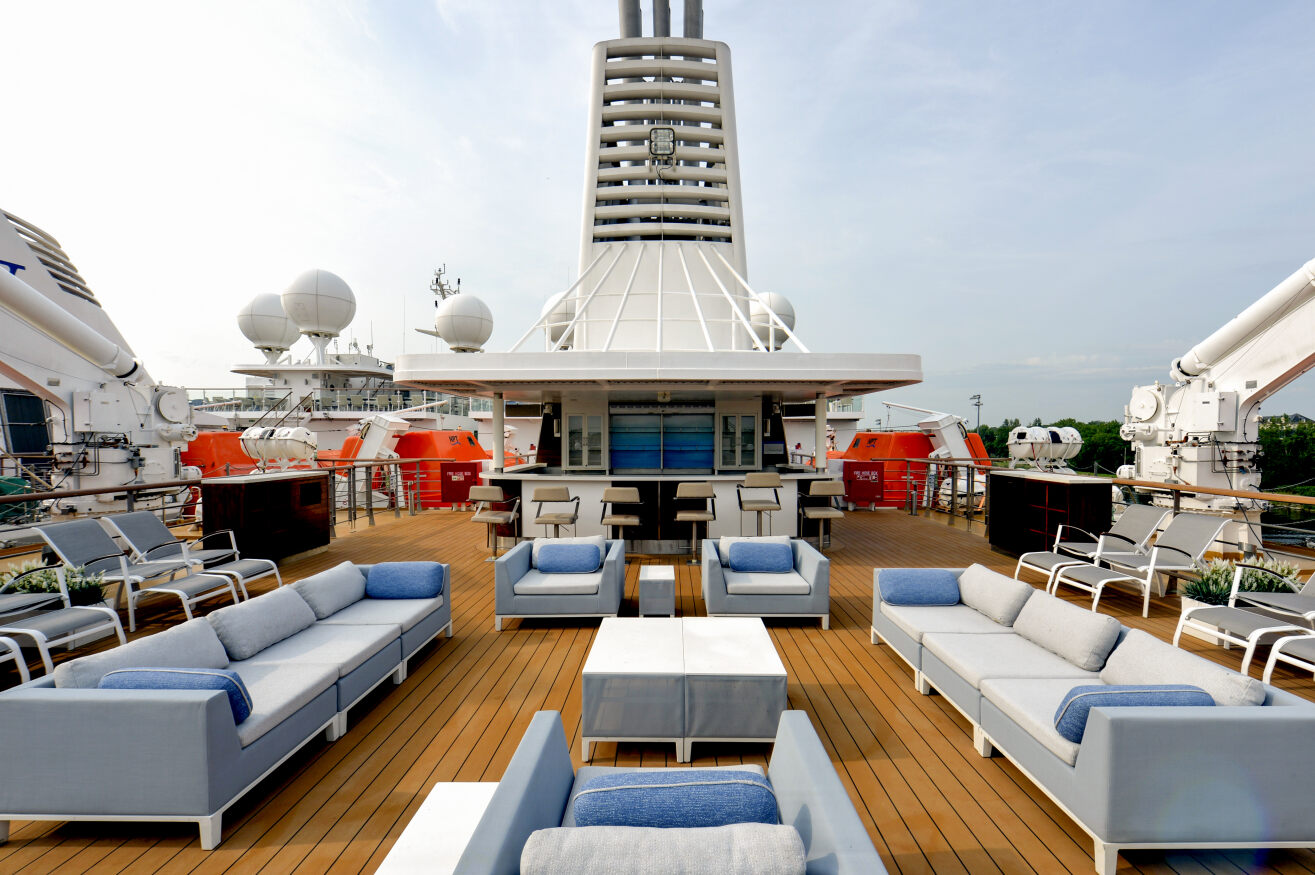
Observation Deck and Solar Bar
More information coming soon.
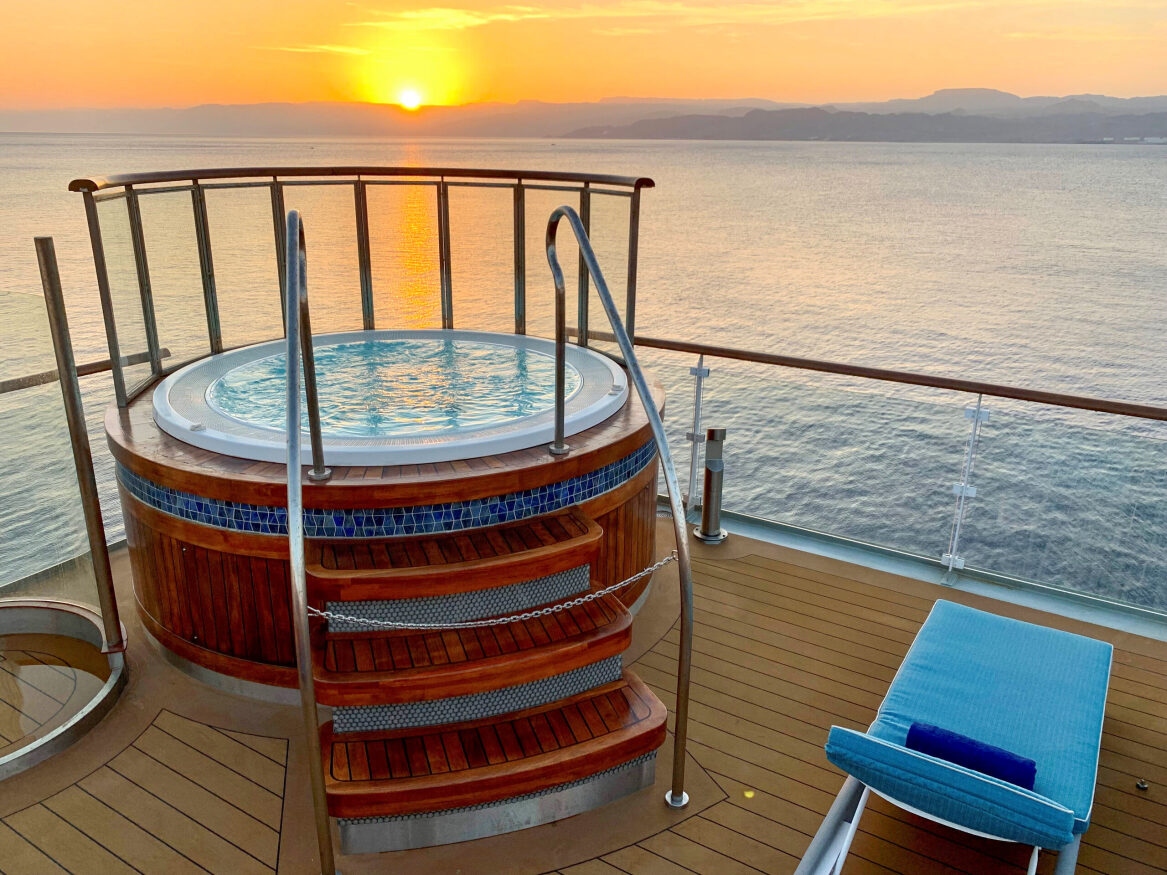
Jacuzzis
Two outdoor Jacuzzis on deck 7, at the ship’s stern, mean you can relax alfresco while soaking up the breath-taking polar views.
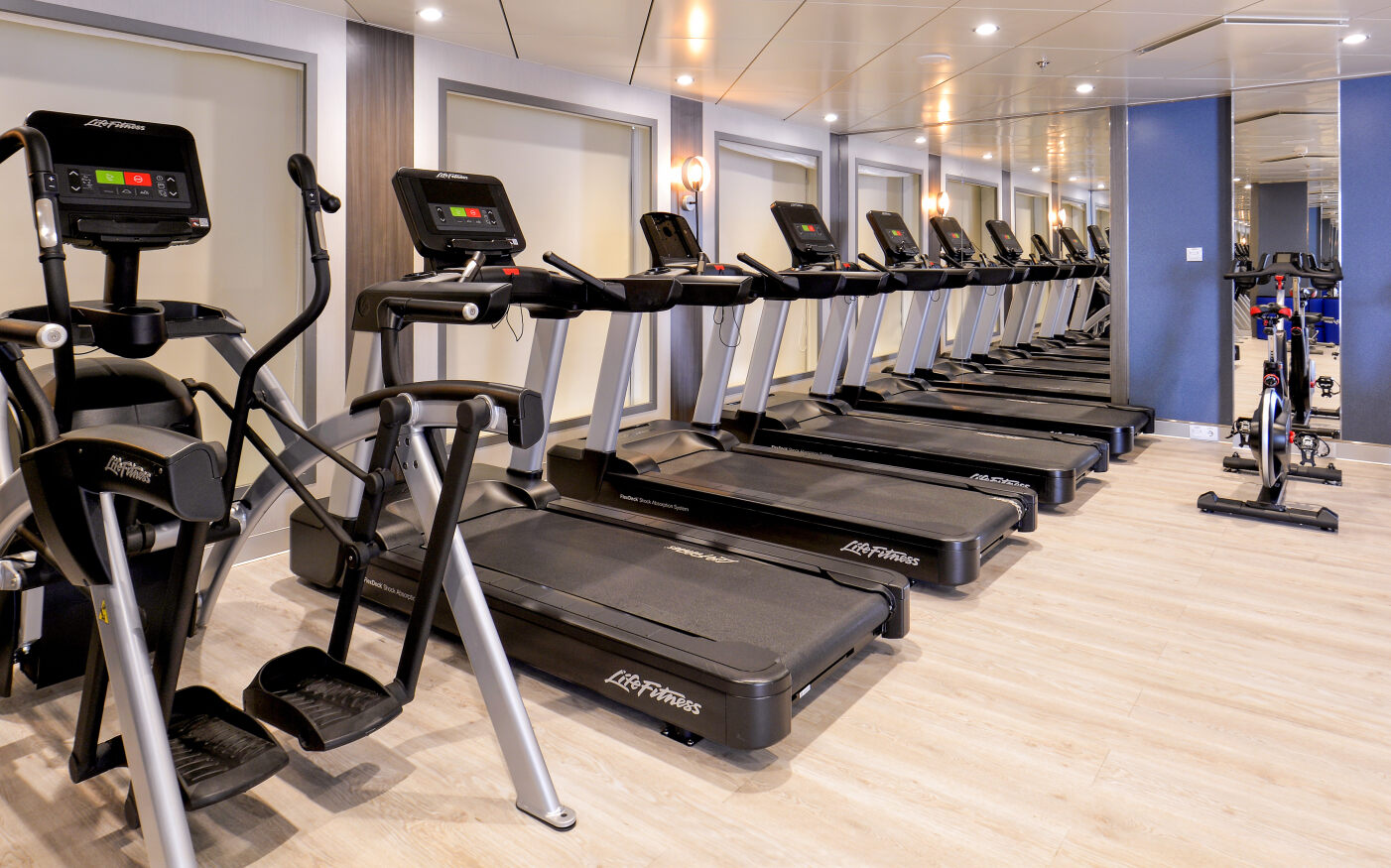
Fitness Centre
Stay fit with the latest work-out equipment in the Fitness Center on Deck 7.
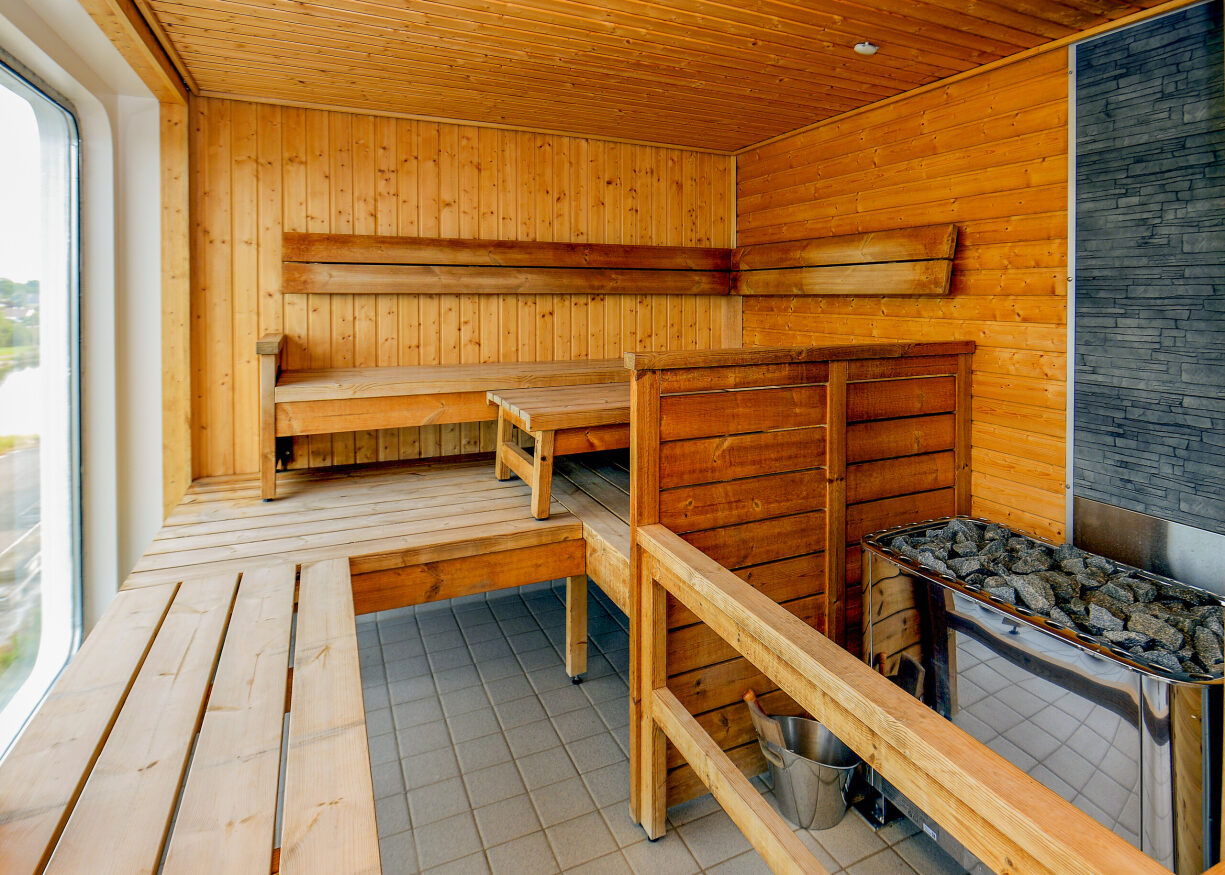
Dry Sauna
After a day of exciting off-ship adventure, guests can relax on the sauna’s traditional wood benches while gazing at the polar wilderness just outside the large sauna windows. Accommodates 15 people on Deck 7.
Leading Edge Sustainability
With the latest sustainability technology in polar expedition, the ship features fuel-efficient Rolls-Royce engines and the ground-breaking MAGS gasification system that converts waste into energy, eliminating the environmental impact of waste transportation.
Medical Facilities
Quark Expeditions provides an English-speaking doctor on board who manages a medical clinic stocked with a supply of common prescription medicines and basic first aid equipment.
If you are under regular treatment for any ailment, you must bring a sufficient supply of medicine. We recommend that you pack an extra two weeks’ supply of medication in case of emergency. We cannot accept responsibility for not having a specific brand or type of drug on board. Should you fall ill, the doctor will refer to the medical forms that you completed and returned to us; therefore it is vital that the information you provide is complete and accurate
Dress Code
The dress code on the ship is casual, though some may choose to dress up a little for the Captain’s Welcome Reception.
Smoking Policy
To protect the health and safety of its guests, Quark Expeditions® maintains a no smoking policy in the interior of the ship including cabins, near Zodiacs and on landings. Smoking on the ship is permitted in the designated smoking area only, which your Expedition∘ Team members will be happy to point out for you. Always make sure to extinguish cigarettes properly and dispose of them in the proper receptacle. Please, never throw cigarettes overboard.
Dietary Requirements and Allergies
All guests—including vegetarians, meat-eaters, as well as those who follow a gluten-free diet—will be equally impressed with the dining options on our ships. Quark Expeditions® is able to cater to most special dietary requests, as long as you clearly indicate your needs on the required expedition forms when you book your voyage. Menus will be clearly labeled for vegetarian and gluten free options, but please do notify your server of the dietary restrictions you indicated on your form. We regret that kosher food cannot be prepared.
Laundry
A complete list of laundry fees will be provided on board. Laundry is collected each morning; please allow 48 hours for your laundry to be returned. Ironing services are also available at a minimal charge. We encourage you to take advantage of the laundry services, as it will mean you can pack fewer articles of clothing. If you prefer to hand wash small items in your cabin, please remember to bring environmentally friendly detergent.
Wi-Fi & Communications
When you are not busy exploring the natural beauty of the Polar Regions, you may wish to connect with family and friends back home to share some of your voyage highlights. Guests on Quark Expeditions can now enjoy free Wi-Fi as part of our “Raise a Glass and Stay Connected Free” program. This complementary Wi-Fi service permits basic Internet browsing and voice applications.
Please note that we travel to some of the most remote parts of the world. As we utilize satellite equipment for our connection, Wi-Fi signal may be intermittent.
To access email or internet on your personal computer, tablet or smart phone, connect to the network on your device, where you can access our complimentary plan, or purchase Priority Wi-Fi.
Complimentary Wi-Fi
- Lower speeds
- Suitable for basic internet browsing, texting and voice calling using text and voice apps
- Some site filtering
- No charge
- One device logged in at a time
Priority Wi-Fi
- Higher speeds
- Suitable for larger data volume apps, video calling, video streaming (in lower resolutions) etc.
- See rates by logging in
- One device logged in at a time
Expedition Brochures
Find Ocean Explorers itineraries here.

Deck 9
- Top Deck

Deck 8
- Observation Deck
- Observation Bistro
- Observation Lounge
- Elevator

Deck 7
- Penthouse Suite
- Owners Suite
- Veranda Stateroom
- Dry Sauna
- Fitness Center
- Jacuzzis
- Bridge
- Observation Deck
- Sun Deck and Bar
- Elevator

Deck 6
- The Discovery Library
- Junior Suite
- Veranda Suite
- Veranda Stateroom
- Elevator

Deck 5
- Main Dining Room
- Private Dining Room
- Reception
- Polar Boutique
- Explorer Lecture Lounge
- Elevator

Deck 4
- Deluxe Veranda Forward
- Veranda Suite
- Veranda Stateroom
- Expedition Desk
- Elevator

Deck 3
- Ready Room
- Medical Facilities
- Zodiac Embarkation Points
- Studio Single
- Elevator
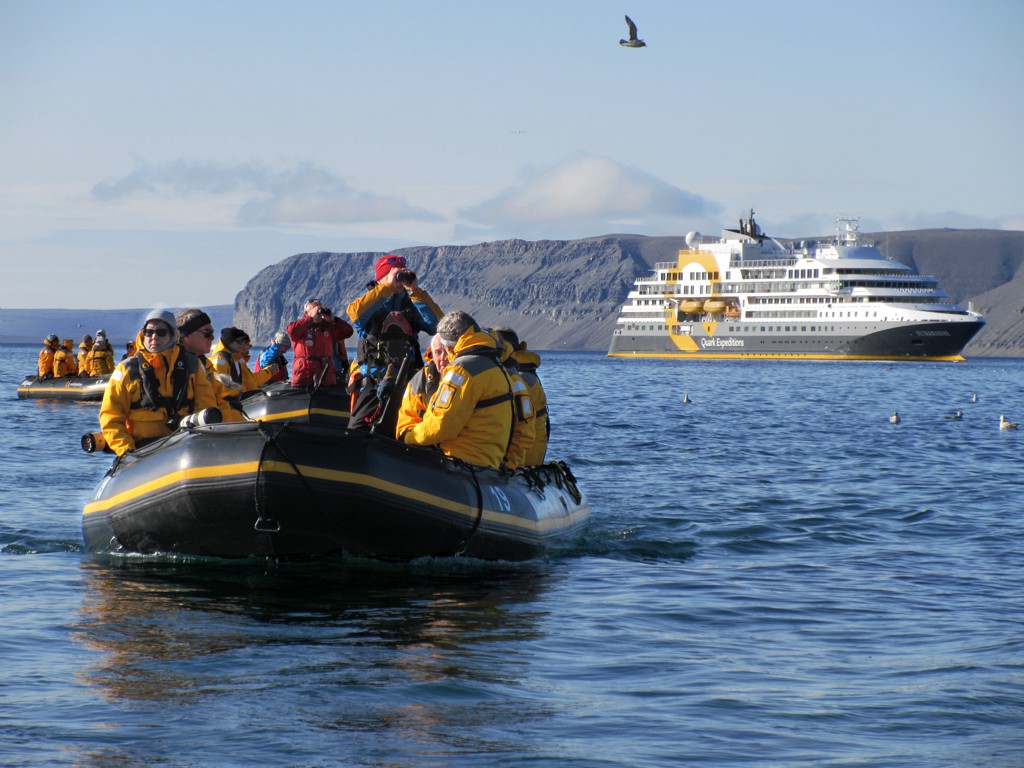
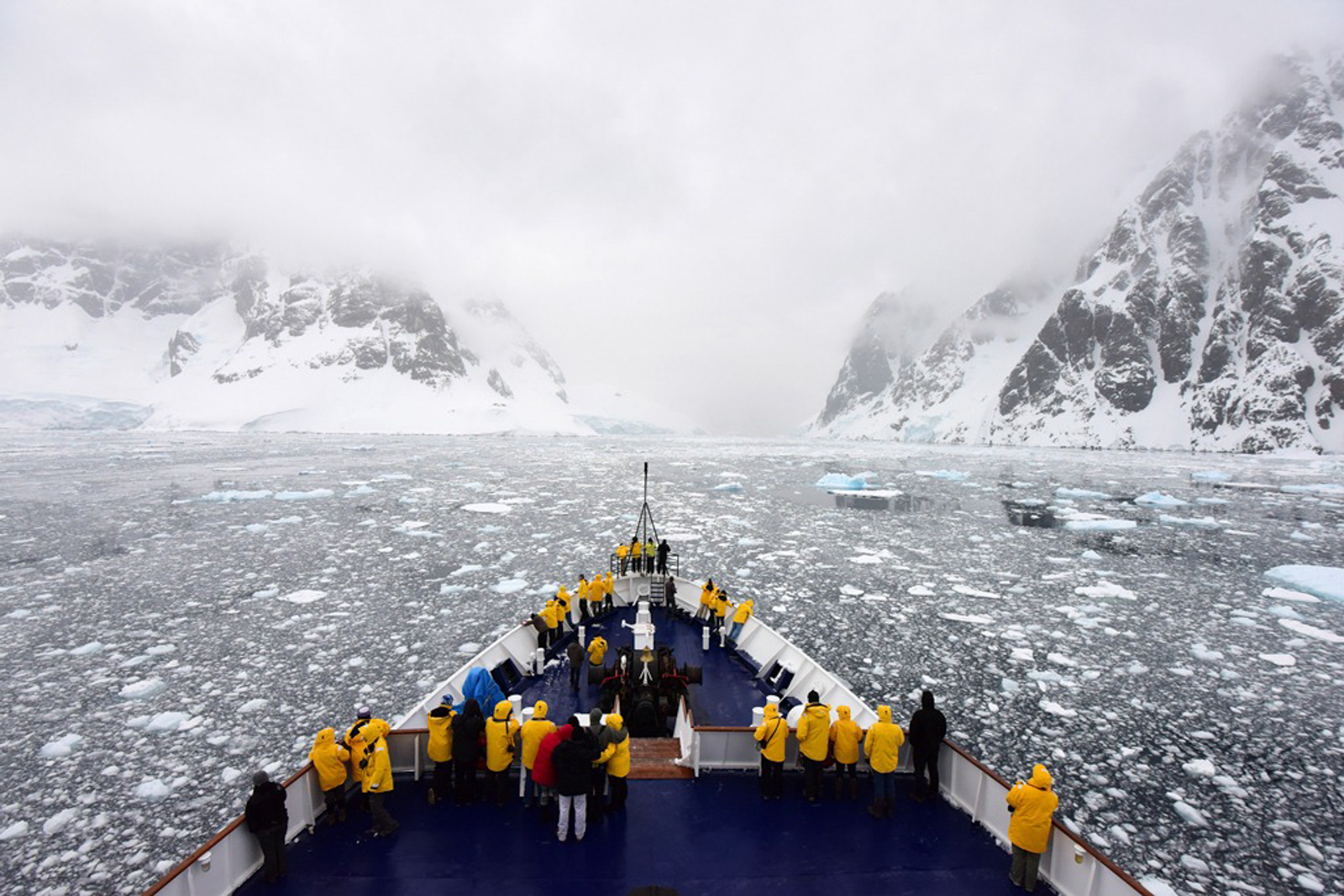
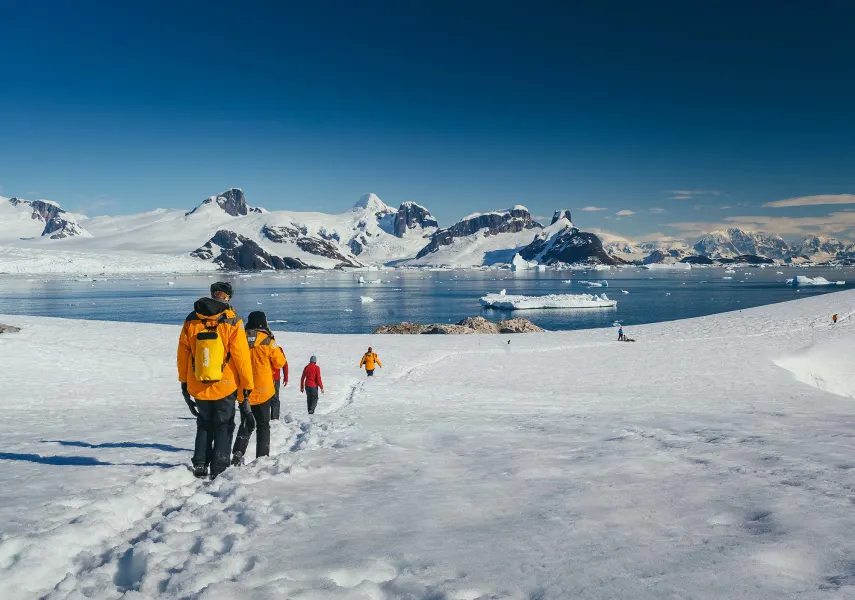
Itinerary
Sprawling Reykjavík, the nation’s nerve center and government seat, is home to half the island’s population. On a bay overlooked by proud Mt. Esja (pronounced eh-shyuh), with its ever-changing hues, Reykjavík presents a colorful sight, its concrete houses painted in light colors and topped by vibrant red, blue, and green roofs. In contrast to the almost treeless countryside, Reykjavík has many tall, native birches, rowans, and willows, as well as imported aspen, pines, and spruces.Reykjavík’s name comes from the Icelandic words for smoke, reykur, and bay, vík. In AD 874, Norseman Ingólfur Arnarson saw Iceland rising out of the misty sea and came ashore at a bay eerily shrouded with plumes of steam from nearby hot springs. Today most of the houses in Reykjavík are heated by near-boiling water from the hot springs. Natural heating avoids air pollution; there’s no smoke around. You may notice, however, that the hot water brings a slight sulfur smell to the bathroom.Prices are easily on a par with other major European cities. A practical option is to purchase a Reykjavík City Card at the Tourist Information Center or at the Reykjavík Youth Hostel. This card permits unlimited bus usage and admission to any of the city’s seven pools, the Family Park and Zoo, and city museums. The cards are valid for one (ISK 3,300), two (ISK 4,400), or three days (ISK 4,900), and they pay for themselves after three or four uses a day. Even lacking the City Card, paying admission (ISK 500, or ISK 250 for seniors and people with disabilities) to one of the city art museums (Hafnarhús, Kjarvalsstaðir, or Ásmundarsafn) gets you free same-day admission to the other two.
Day programme:
Arrive in Reykjavik and transfer independently to your hotel, which is included in the Charter Flight & Hotel Package. Depending on your arrival time, you may wish to explore sites of the fascinating capital, which is known for its mix of modern architecture and Viking heritage. At 64°08′ north, Reykjavik is the world’s northernmost capital of an independent sovereign state.
Sprawling Reykjavík, the nation’s nerve center and government seat, is home to half the island’s population. On a bay overlooked by proud Mt. Esja (pronounced eh-shyuh), with its ever-changing hues, Reykjavík presents a colorful sight, its concrete houses painted in light colors and topped by vibrant red, blue, and green roofs. In contrast to the almost treeless countryside, Reykjavík has many tall, native birches, rowans, and willows, as well as imported aspen, pines, and spruces.Reykjavík’s name comes from the Icelandic words for smoke, reykur, and bay, vík. In AD 874, Norseman Ingólfur Arnarson saw Iceland rising out of the misty sea and came ashore at a bay eerily shrouded with plumes of steam from nearby hot springs. Today most of the houses in Reykjavík are heated by near-boiling water from the hot springs. Natural heating avoids air pollution; there’s no smoke around. You may notice, however, that the hot water brings a slight sulfur smell to the bathroom.Prices are easily on a par with other major European cities. A practical option is to purchase a Reykjavík City Card at the Tourist Information Center or at the Reykjavík Youth Hostel. This card permits unlimited bus usage and admission to any of the city’s seven pools, the Family Park and Zoo, and city museums. The cards are valid for one (ISK 3,300), two (ISK 4,400), or three days (ISK 4,900), and they pay for themselves after three or four uses a day. Even lacking the City Card, paying admission (ISK 500, or ISK 250 for seniors and people with disabilities) to one of the city art museums (Hafnarhús, Kjarvalsstaðir, or Ásmundarsafn) gets you free same-day admission to the other two.
Day programme:
After breakfast on Day 2, you’ll have time to explore on your own before your afternoon transfer to the modern, purpose-built ship Ocean Explorer. We set sail for “Iceland’s best-kept secret”—the Westfjords. This rugged peninsula, on the remote northwestern tip of Iceland, is dominated by mountains, volcanic rock and fjords. Mountains slope down to the sea in a dramatic fashion, providing plenty of opportunities for incredible landscape photography. We’ll spend the day exploring by Zodiac and ship, as well as guided shore landings where possible. The views are diverse: dramatic cliffs, gushing waterfalls, colorful beaches, rolling green hills, high moorlands dotted with rocky outcrops and tiny lakes. You’ll likely spot Icelandic ponies and shaggy sheep grazing the hillsides. A few outposts of civilization include small fishing communities at the fjord edges and along the shores of the Denmark Strait. One of the highlights in the Westfjords is a chance to visit Vigur, a private island where guests can delve into Icelandic culture and heritage as far back as the 11th century. Vigur is widely regarded as a capsule of Icelandic heritage. Upon arriving on shore by Zodiac. One of the island’s co-owners is polar explorer Felicity Aston, the first woman to ski solo across Antarctica. You’ll learn about the Icelandic tradition of eiderdown harvesting, and the wide array of Arctic birdlife and seals that are found in Vigur. It’s estimated that Vigur Island is home to over 7,000 breeding ducks, 100,000 puffins, Europe’s largest colony of Black Guillemots, and huge flocks of Arctic terns. You’ll also have opportunities to ramble about the island, taste local food and visit the island café. Today’s adventure options include Zodiac cruising, sea kayaking, paddle excursion program, and, potentially, a guided shore hike. Right across the bay is Mongufoss, one of Iceland’s most remote and beautiful waterfalls, which we’ll visit by ship. We may also visit Flatey, a small 1.5 km-long island in Breiðafjörður Bay.
Day programme:
After breakfast on Day 2, you’ll have time to explore on your own before your afternoon transfer to the modern, purpose-built ship Ocean Explorer. We set sail for “Iceland’s best-kept secret”—the Westfjords. This rugged peninsula, on the remote northwestern tip of Iceland, is dominated by mountains, volcanic rock and fjords. Mountains slope down to the sea in a dramatic fashion, providing plenty of opportunities for incredible landscape photography. We’ll spend the day exploring by Zodiac and ship, as well as guided shore landings where possible. The views are diverse: dramatic cliffs, gushing waterfalls, colorful beaches, rolling green hills, high moorlands dotted with rocky outcrops and tiny lakes. You’ll likely spot Icelandic ponies and shaggy sheep grazing the hillsides. A few outposts of civilization include small fishing communities at the fjord edges and along the shores of the Denmark Strait. One of the highlights in the Westfjords is a chance to visit Vigur, a private island where guests can delve into Icelandic culture and heritage as far back as the 11th century. Vigur is widely regarded as a capsule of Icelandic heritage. Upon arriving on shore by Zodiac. One of the island’s co-owners is polar explorer Felicity Aston, the first woman to ski solo across Antarctica. You’ll learn about the Icelandic tradition of eiderdown harvesting, and the wide array of Arctic birdlife and seals that are found in Vigur. It’s estimated that Vigur Island is home to over 7,000 breeding ducks, 100,000 puffins, Europe’s largest colony of Black Guillemots, and huge flocks of Arctic terns. You’ll also have opportunities to ramble about the island, taste local food and visit the island café. Today’s adventure options include Zodiac cruising, sea kayaking, paddle excursion program, and, potentially, a guided shore hike. Right across the bay is Mongufoss, one of Iceland’s most remote and beautiful waterfalls, which we’ll visit by ship. We may also visit Flatey, a small 1.5 km-long island in Breiðafjörður Bay.
Day programme:
After breakfast on Day 2, you’ll have time to explore on your own before your afternoon transfer to the modern, purpose-built ship Ocean Explorer. We set sail for “Iceland’s best-kept secret”—the Westfjords. This rugged peninsula, on the remote northwestern tip of Iceland, is dominated by mountains, volcanic rock and fjords. Mountains slope down to the sea in a dramatic fashion, providing plenty of opportunities for incredible landscape photography. We’ll spend the day exploring by Zodiac and ship, as well as guided shore landings where possible. The views are diverse: dramatic cliffs, gushing waterfalls, colorful beaches, rolling green hills, high moorlands dotted with rocky outcrops and tiny lakes. You’ll likely spot Icelandic ponies and shaggy sheep grazing the hillsides. A few outposts of civilization include small fishing communities at the fjord edges and along the shores of the Denmark Strait. One of the highlights in the Westfjords is a chance to visit Vigur, a private island where guests can delve into Icelandic culture and heritage as far back as the 11th century. Vigur is widely regarded as a capsule of Icelandic heritage. Upon arriving on shore by Zodiac. One of the island’s co-owners is polar explorer Felicity Aston, the first woman to ski solo across Antarctica. You’ll learn about the Icelandic tradition of eiderdown harvesting, and the wide array of Arctic birdlife and seals that are found in Vigur. It’s estimated that Vigur Island is home to over 7,000 breeding ducks, 100,000 puffins, Europe’s largest colony of Black Guillemots, and huge flocks of Arctic terns. You’ll also have opportunities to ramble about the island, taste local food and visit the island café. Today’s adventure options include Zodiac cruising, sea kayaking, paddle excursion program, and, potentially, a guided shore hike. Right across the bay is Mongufoss, one of Iceland’s most remote and beautiful waterfalls, which we’ll visit by ship. We may also visit Flatey, a small 1.5 km-long island in Breiðafjörður Bay.
Day programme:
Navigating within the boundaries of the Northeast Greenland National Park—the planet’s largest national park covering 972,000 square kilometers—we will sail into Kangerluk Kong Oscar, also known as Kong Oscar Fjord, on the northern border of Scoresby Land. This major f jord system, popular for its famously bright sandstone, stretches 110 kilometers long and 10 to 25 kilometers wide. You will also experience the wonders of nature in Segelsällskapet Fjord, where a spectacular display of “geological art” awaits: alternating layers of limestone and dolomite stretching before you in a stunningly beautiful canvas created over tens of thousands of years.
Day programme:
Navigating within the boundaries of the Northeast Greenland National Park—the planet’s largest national park covering 972,000 square kilometers—we will sail into Kangerluk Kong Oscar, also known as Kong Oscar Fjord, on the northern border of Scoresby Land. This major f jord system, popular for its famously bright sandstone, stretches 110 kilometers long and 10 to 25 kilometers wide. You will also experience the wonders of nature in Segelsällskapet Fjord, where a spectacular display of “geological art” awaits: alternating layers of limestone and dolomite stretching before you in a stunningly beautiful canvas created over tens of thousands of years.
Day programme:
Our purpose-built vessel will cruise deep into Scoresby Sund, allowing guests to marvel at the overwhelming beauty of the world’s largest fjord system and its vast icebergs. This area offers plenty of opportunities to explore during Zodiac cruises and onshore visits, and, if conditions allow, time to visit Ittoqqortoormiit, the most remote community in East Greenland. There will be a palpable sense of excitement in the air as anticipation builds for our much-awaited eclipse viewing. Behind the scenes, your Expedition Leader and the Ship Captain will work closely together, monitoring sea and ice conditions and meteorological forecasts—particularly cloud cover—to strategically position Ocean Explorer in the best location possible to maximize your views of the solar eclipse.
Day programme:
Our purpose-built vessel will cruise deep into Scoresby Sund, allowing guests to marvel at the overwhelming beauty of the world’s largest fjord system and its vast icebergs. This area offers plenty of opportunities to explore during Zodiac cruises and onshore visits, and, if conditions allow, time to visit Ittoqqortoormiit, the most remote community in East Greenland. There will be a palpable sense of excitement in the air as anticipation builds for our much-awaited eclipse viewing. Behind the scenes, your Expedition Leader and the Ship Captain will work closely together, monitoring sea and ice conditions and meteorological forecasts—particularly cloud cover—to strategically position Ocean Explorer in the best location possible to maximize your views of the solar eclipse.
Day programme:
Ocean Explorer will sail further into Scoresby Sund, where the team will identify the most optimal viewing point along the path of totality. With the total eclipse of the sun lasting 2 minutes and 17.2 seconds, this region of the Arctic provides the longest duration of totality along the entire eclipse path. The eclipse will start at 2:34 pm, and totality will begin at 3:34 pm and end at 3:36 pm. The eclipse viewing experience, a duration of 2 hours, 1 minute, and 3 seconds, will conclude at 4:35 pm. Throughout this exciting day, you will have opportunities to learn from our guest eclipse expert, Michael Zeiler. This 2026 eclipse is part of Saros series 126, which is a cycle of solar eclipses that repeats approximately every 18 years. It’s worth noting that total solar eclipses in Polar Regions are relatively rare due to the smaller land area and the fact that the sun only illuminates each pole for part of the year. The Quark Expeditions team and our special eclipse expert will continue to research the geography of this region as we prepare for the event. Right up until the day of the eclipse itself, our team will study the mountainous terrain, the angles of the sun in the sky, localized ice conditions and weather patterns to determine the best possible viewing experience. Your Expedition Leader will outline the day’s agenda in the days and hours leading up to the eclipse.
Aappilattoq is a small settlement near the western end of Prins Christian Sund in southwestern Greenland. In the local Greenlandic language the name means, “sea anemone”. This small village of 130 inhabitants, hidden behind a prominent rock, offers a good insight into the life of Greenlandic Inuit. A stroll through the village will reveal a small school and a church, along with the likely possibility of seeing a polar bear skin drying in the wind behind a local dwelling. People have lived off the land in the area around Aappilattoq since the 19th century. The tradition continues today as most people here hunt and fish to make a living.
Day programme:
Tiny and picturesque Aappilattoq, home to approximately 100 permanent residents, is perched on the shores of one of the world’s most scenic fjords, the 100-km long Prins Christian Sund (also known as Ikerasassuaq). Aappilattoq is the second-most southerly settlement in Greenland (after Narsamiit). The name Aappilattoq has been interpreted to mean “sea anemone,” or “red” after the crimson mountain rising above the settlement. The area has been inhabited since the 1800s, but the current village was only established in 1922. The majority of residents rely on hunting and fishing, with local fishermen selling surplus cod and turbot to a small fish factory run by Royal Greenland. Services include a general store, fire station, elementary school, boat service, church and a general repairs workshop.
Day programme:
Ivittuut, formerly known as Ivigtût (“grassy place”), is an abandoned mining town near Cape Desolation in southwestern Greenland, close to the ruins of the ancient Norse Middle Settlement. Historians and archeologists believe this settlement— the least documented Norse settlement in Greenland—once comprised about 20 farms. A handful of miningrelated structures still remain—some dilapidated—including a barracks, a storehouse and a cemetery. The 1987 translocation of muskoxen to Ivittuut from the Kangerlussuaq area is the reason you may see the lumbering beasts in the area. Otherwise, native wildlife consists mostly of Arctic hare and Arctic fox. It’s also possible to spot semi-domestic reindeer from Greenland’s only active reindeer husbandry operation, the Isortoq Reindeer Station, located south of Ivittuut.
Nuuk, meaning “the cape”, was Greenland’s first town (1728). Started as a fort and later mission and trading post some 240 kilometers south of the Arctic Circle, it is the current capital. Almost 30% of Greenland’s population lives in the town. Not only does Nuuk have great natural beauty in its vicinity, but there are Inuit ruins, Hans Egede’s home, the parliament, and the Church of our Saviour as well. The Greenlandic National Museum has an outstanding collection of Greenlandic traditional dresses, as well as the famous Qilakitsoq mummies. The Katuaq Cultural Center’s building was inspired by the undulating Northern Lights and can house 10% of Nuuk’s inhabitants.
Day programme:
Upon arriving in Greenland’s capital, enjoy one more Zodiac ride to shore for the group transfer to the airport to catch your charter flight to Reykjavik, Iceland. Upon arrival in Reykjavik, we will transfer you to your hotel. Both your hotel and charter flight are included in the Charter Flight & Hotel Package.
Sprawling Reykjavík, the nation’s nerve center and government seat, is home to half the island’s population. On a bay overlooked by proud Mt. Esja (pronounced eh-shyuh), with its ever-changing hues, Reykjavík presents a colorful sight, its concrete houses painted in light colors and topped by vibrant red, blue, and green roofs. In contrast to the almost treeless countryside, Reykjavík has many tall, native birches, rowans, and willows, as well as imported aspen, pines, and spruces.Reykjavík’s name comes from the Icelandic words for smoke, reykur, and bay, vík. In AD 874, Norseman Ingólfur Arnarson saw Iceland rising out of the misty sea and came ashore at a bay eerily shrouded with plumes of steam from nearby hot springs. Today most of the houses in Reykjavík are heated by near-boiling water from the hot springs. Natural heating avoids air pollution; there’s no smoke around. You may notice, however, that the hot water brings a slight sulfur smell to the bathroom.Prices are easily on a par with other major European cities. A practical option is to purchase a Reykjavík City Card at the Tourist Information Center or at the Reykjavík Youth Hostel. This card permits unlimited bus usage and admission to any of the city’s seven pools, the Family Park and Zoo, and city museums. The cards are valid for one (ISK 3,300), two (ISK 4,400), or three days (ISK 4,900), and they pay for themselves after three or four uses a day. Even lacking the City Card, paying admission (ISK 500, or ISK 250 for seniors and people with disabilities) to one of the city art museums (Hafnarhús, Kjarvalsstaðir, or Ásmundarsafn) gets you free same-day admission to the other two.
Day programme:
After a restful night at your hotel, make your way to Keflavik International Airport for your onward flight, or spend additional time exploring Reykjavik at your leisure.
Ship features

Owners Suite
This palatial, airy apartment offers stunning views from its large private veranda on the highest cabin level. The luxurious suite features a large master bedroom, living room and dining area and two large master bathrooms, among other amenities.
Bed Config.
Two rooms. One double bed made up of two twin berths fold out sofa bed
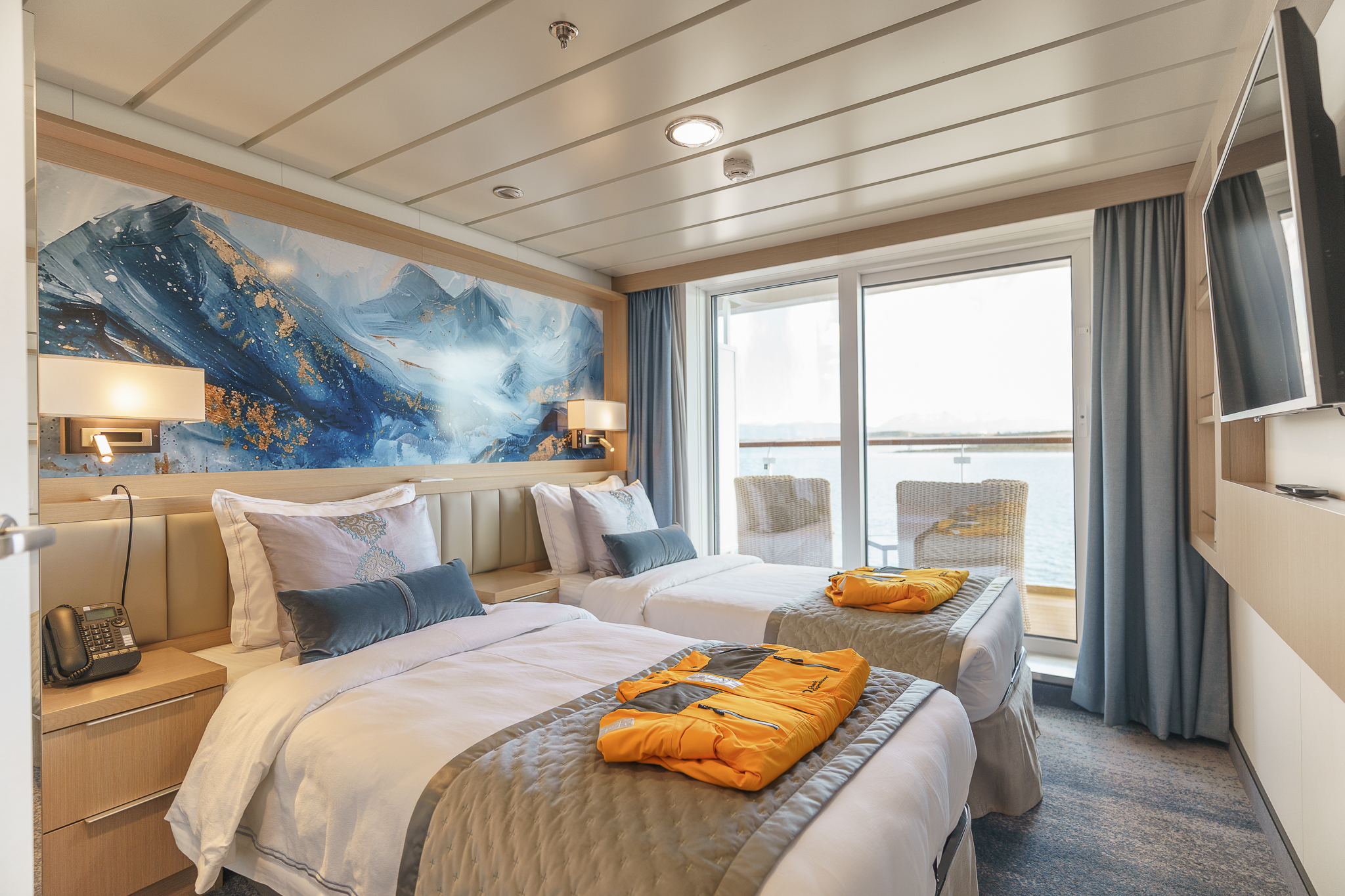
Junior Suite
Located on Deck 6 and approximately 298 sq. f. (27.7 sq. m,) in size. These 2-room suites have one double bed that can be configured into two singles in the inner bedroom and an outer sitting room furnished with a sofa-bed, and activity table for two. From the bedroom there a floor to ceiling glass view that opens to a double sized walkout balcony. There are also 2 TV’s, state of the art ‘infotainment’ system and private bathroom with bathtub, vanity and heated floor.
Bed Config.
Two rooms. One double bed made up of two twin berths fold out sofa bed
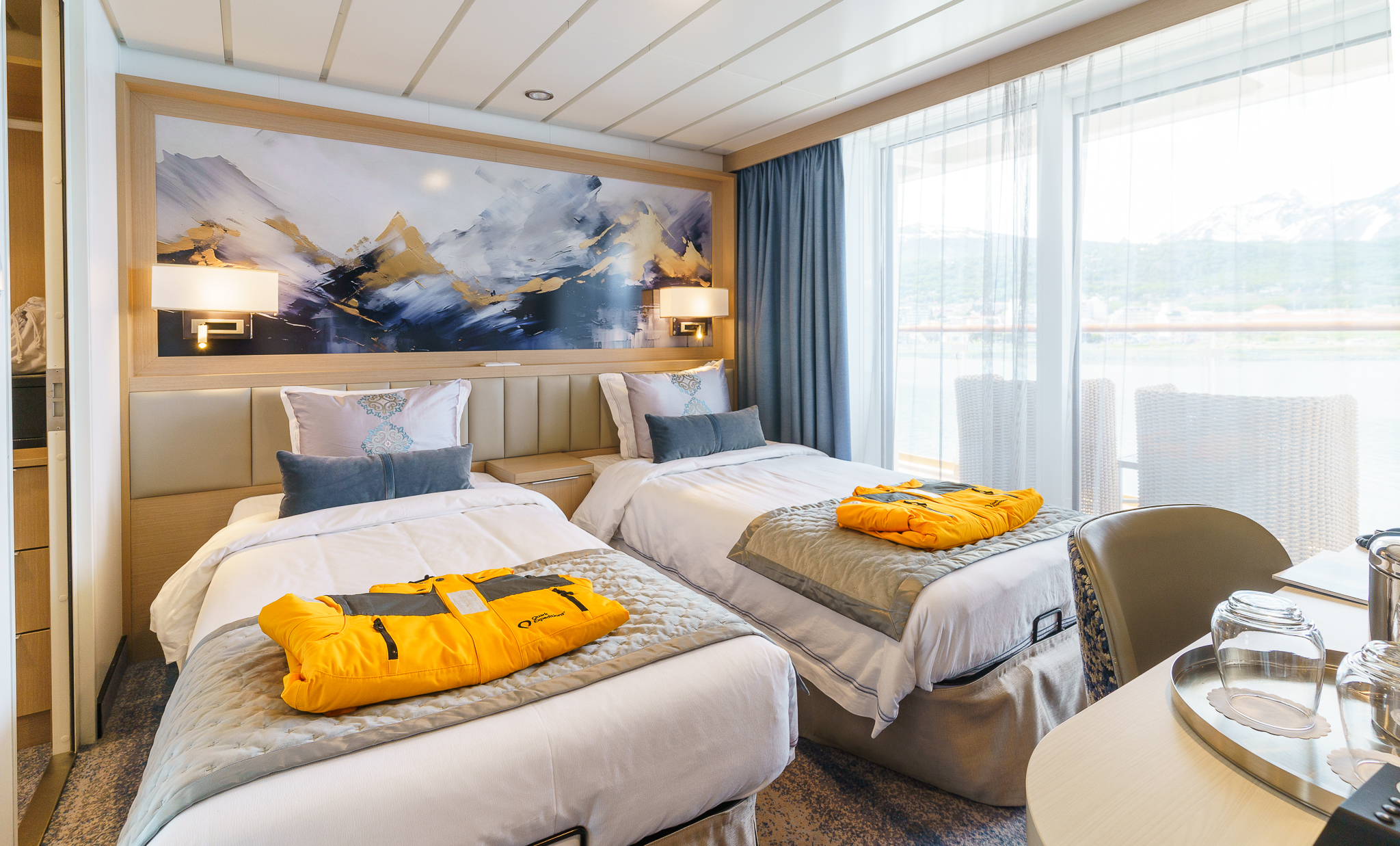
Penthouse Suite
This unique 2-room suite is located on Deck 7 and is approximately 269 sq. f (25.0 sq. m.) in size. It has one double bed that can be configured into two singles in the inner bedroom.and the outer sitting area is furnished with a sofa-bed. Walk-out from either room to a double sized balcony . There are also 2 TV’s, state of the art ‘infotainment’ system and private bathroom with shower, vanity and heated floor. And an additional powder room in the outside sitting area.
Bed Config.
Two rooms. One double bed made up of two twin berths fold out sofa bed
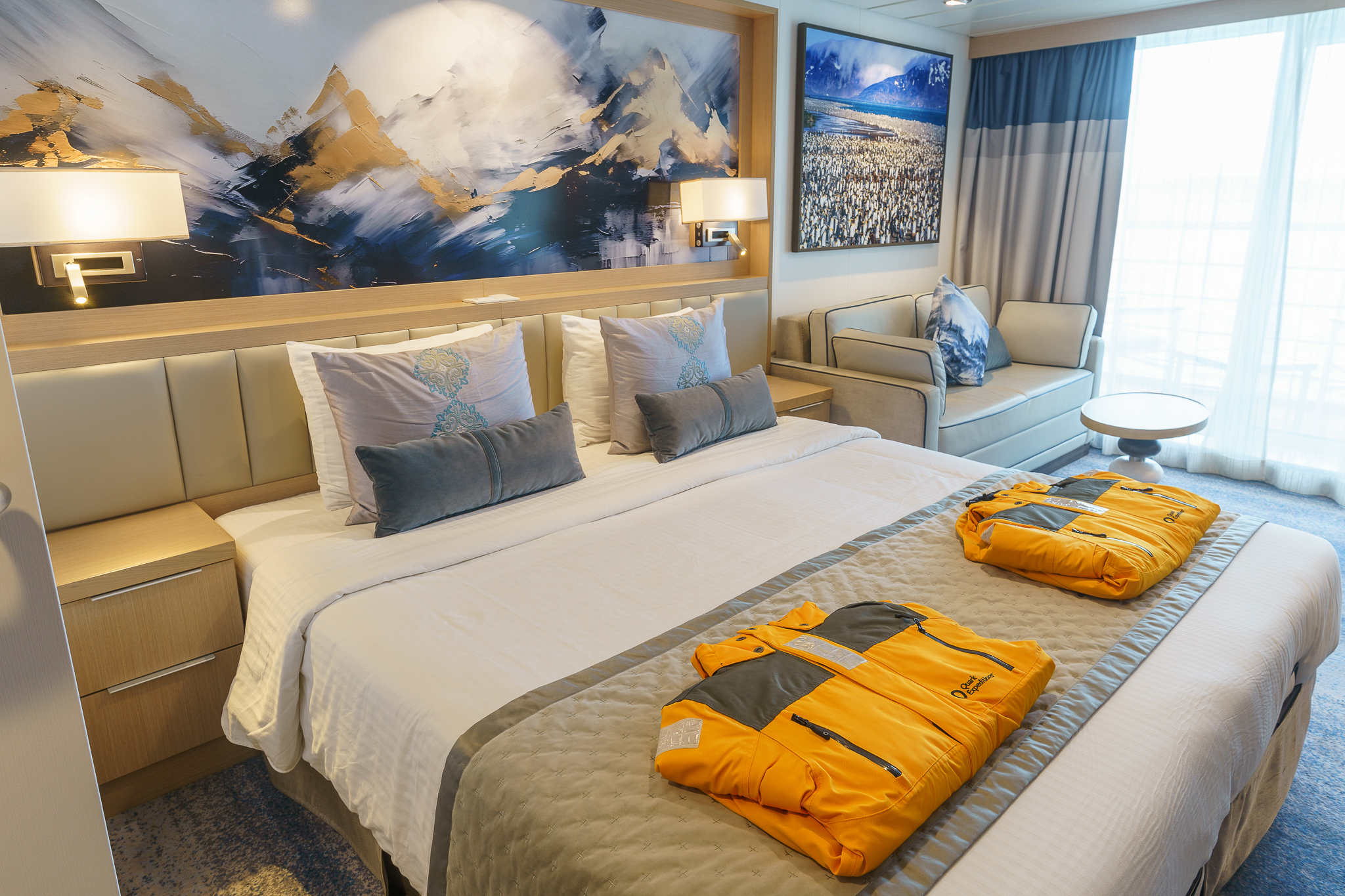
Veranda Suite
Located throughout the ship and approximately 205 sq. ft. (19.2 sq. m,) in size, these cabins have one double bed that can be configured into two singles, and seperate sitting area furnished with a sofa-bed. There is a floor to ceiling glass view that opens to a walkout balcony. There is also a desk and chair, TV, state of the art ‘infotainment’ system and private bathroom with shower, vanity and heated floor.
Bed Config.
One double bed made up of two twin berths and fold out sofa bed
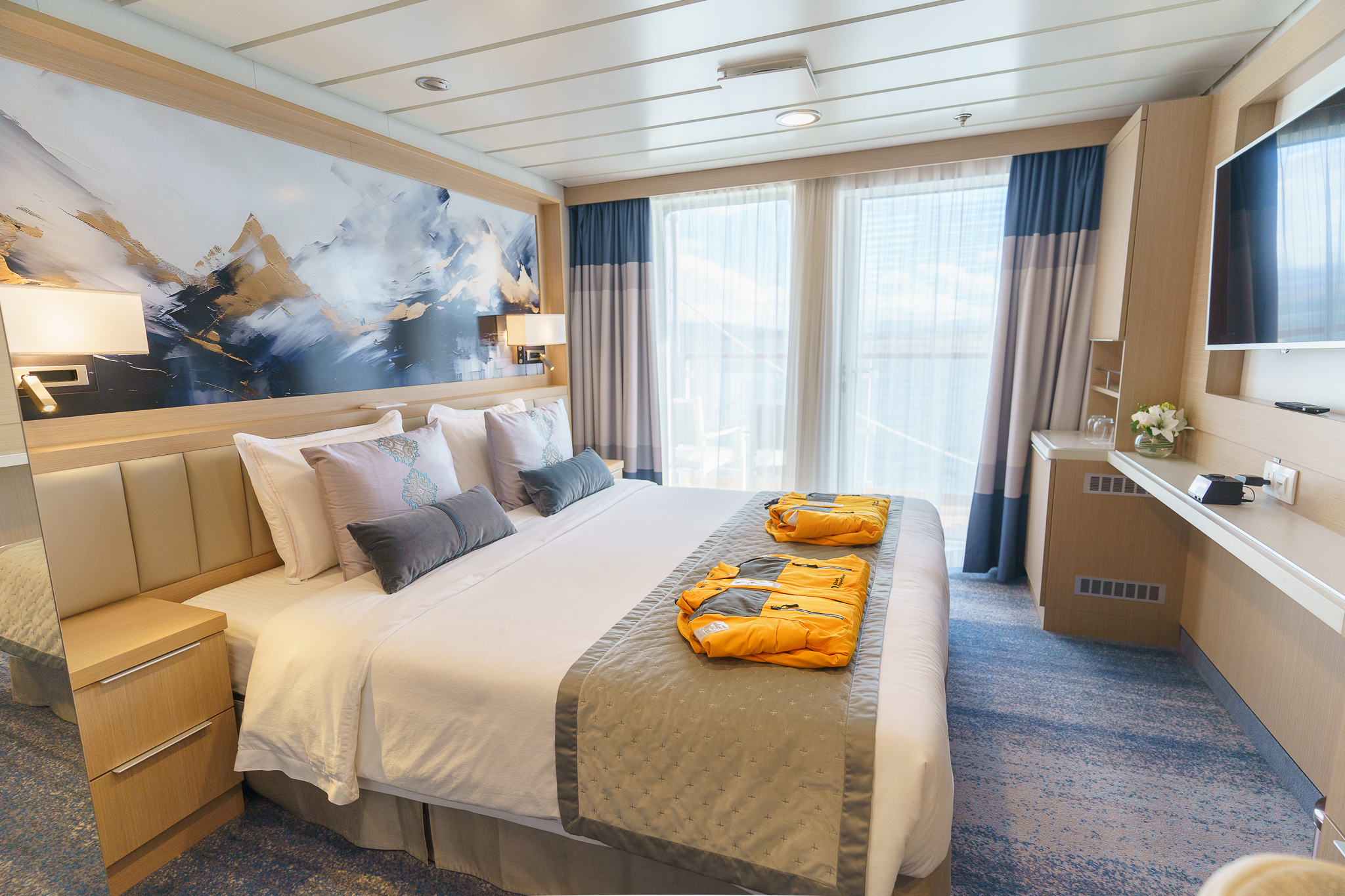
Veranda Stateroom
Located throughout the ship and approximately 208 sq. f. (19.3 sq. m,) in size, these cabins have one double bed that can be configured into two singles, and seperate sitting area furnished with two club chairs and a reading table. There is a floor to ceiling glass view that opens to a walkout balcony. There is also a desk and chair, TV, state of the art ‘infotainment’ system and private bathroom with shower, vanity and heated floor. Note: 611 and 612 do not have the club chairs and a reading table.
Bed Config.
One double bed made up of two twin berths
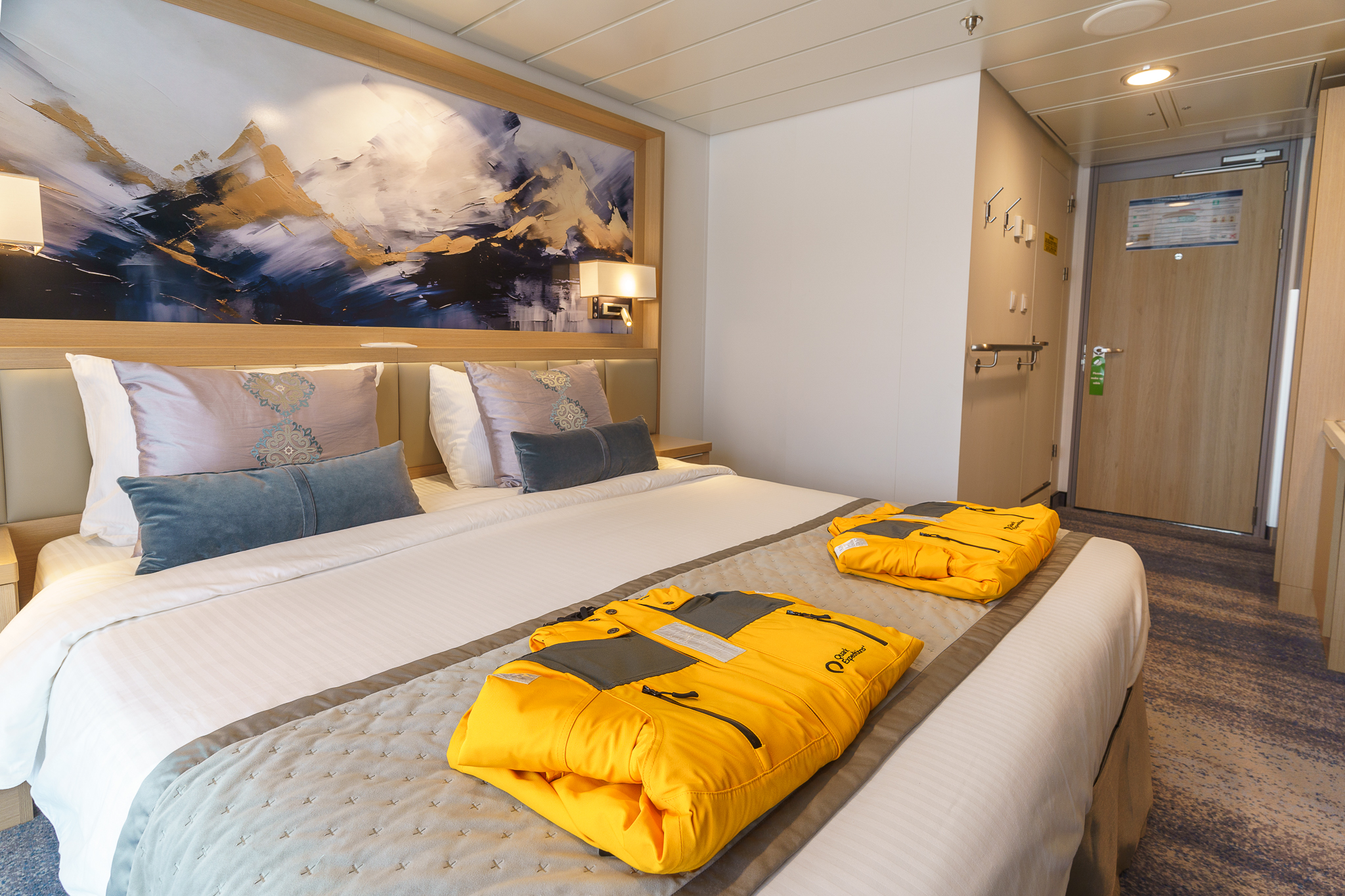
Deluxe Veranda Forward
Located on Deck 4 and approximately 182 sq. f. (16.9 sq. m,) in size, these cabins have one double bed that can be configured into two singles. There is a floor to ceiling glass view that opens to a walkout balcony. There is also a desk and chair, TV, state of the art ‘infotainment’ system and private bathroom with shower, vanity and heated floor.
Bed Config.
One double bed made up of two twin berths
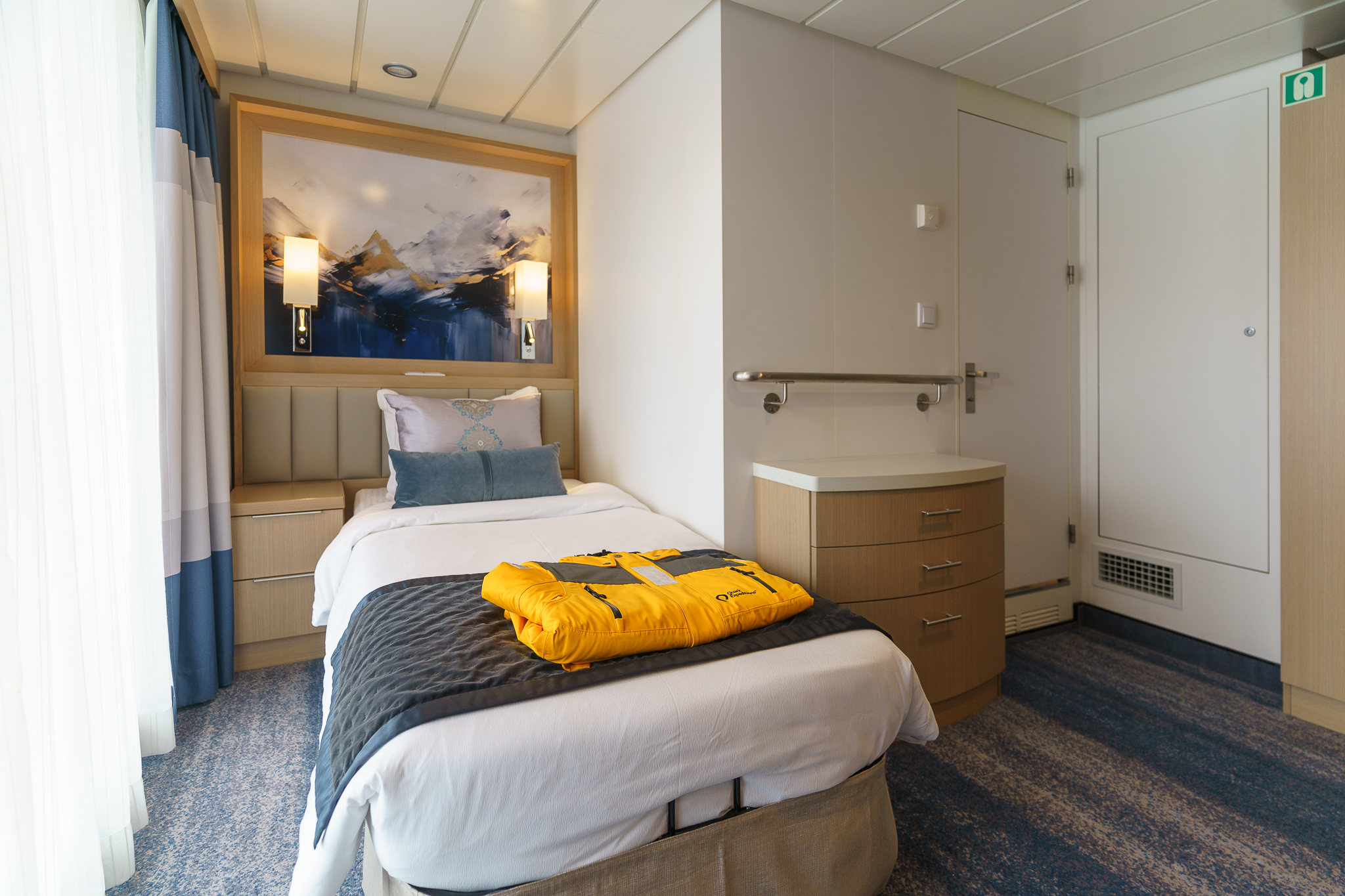
Studio Veranda Single
Designed for one. This unique cabin is located on Deck 7 and approximately 162 sq. f. (15.1 sq. m.). It has one twin bed with a floor to ceiling glass view that opens to a generous walkout balcony. There is also TV, state of the art ‘infotainment’ system and private bathroom with shower, vanity and heated floor.
Bed Config.
One twin single
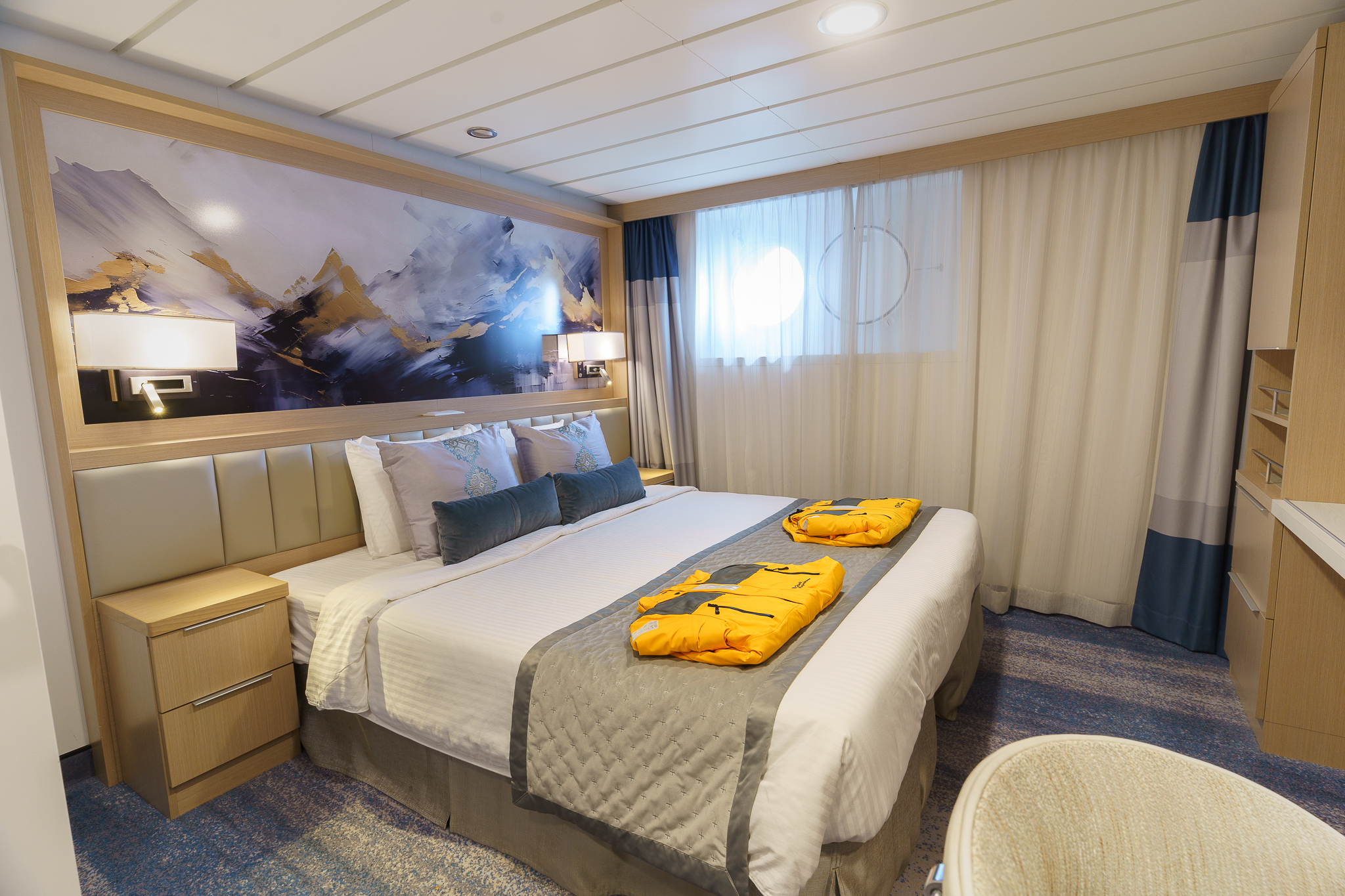
Studio Single
Designed for one. These cabins are located on Deck 3 and approximately 166 sq. ft. (15,4 sq. m,) in size, with one double bed and a porthole view. There is also a desk and chair, TV, state of the art ‘infotainment’ system and private bathroom with shower, vanity and heated floor.
Bed Config.
One double bed made up of two twin berths
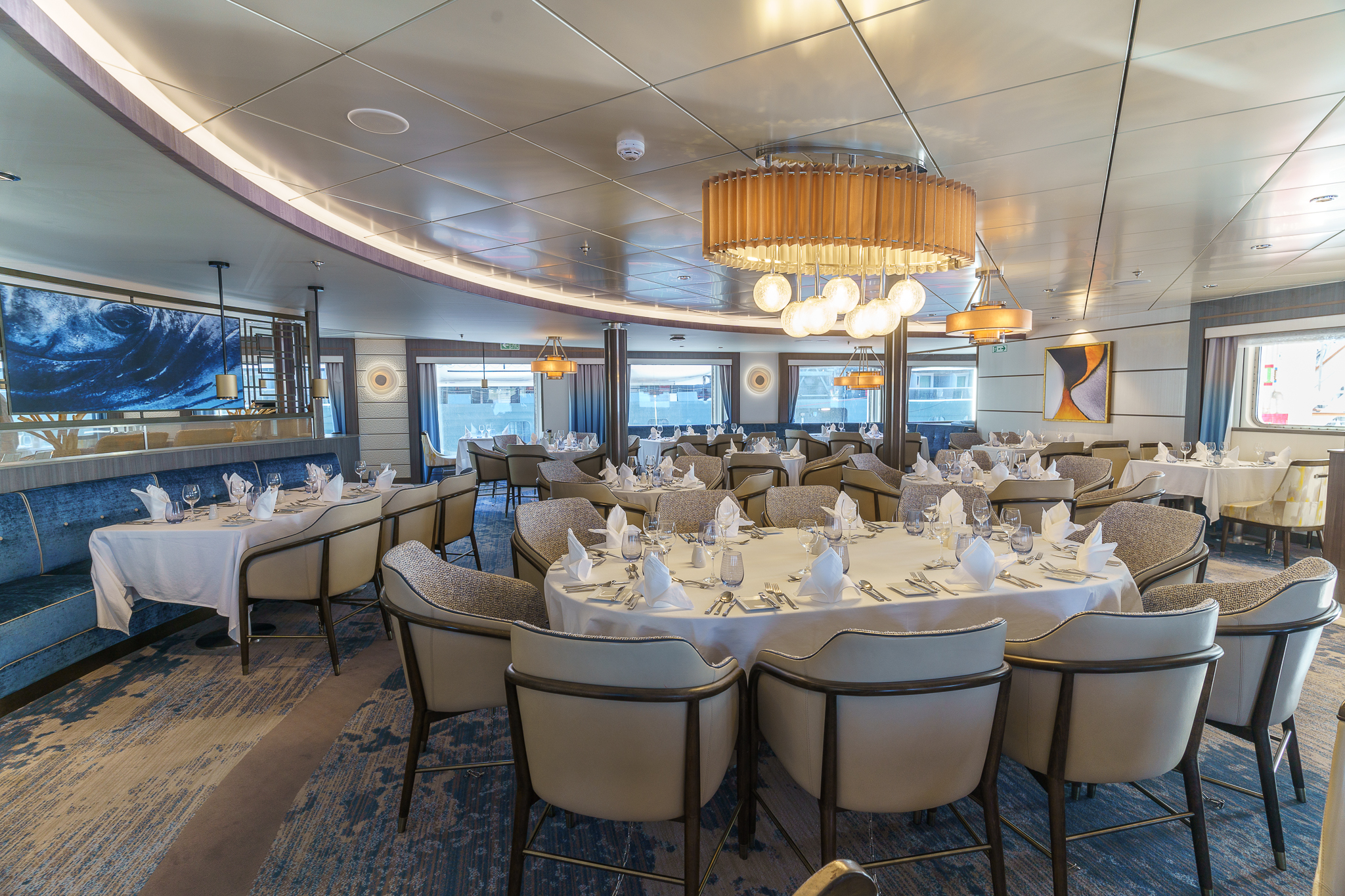
Main Dining Room
Contemporary meets cozy in this modern dining room with its stylish lighting and contemporary art. Located on Deck 5, the Main Dining Room seats 144 guests, and features expansive floor-to-ceiling windows that open onto the spectacular polar wilderness.
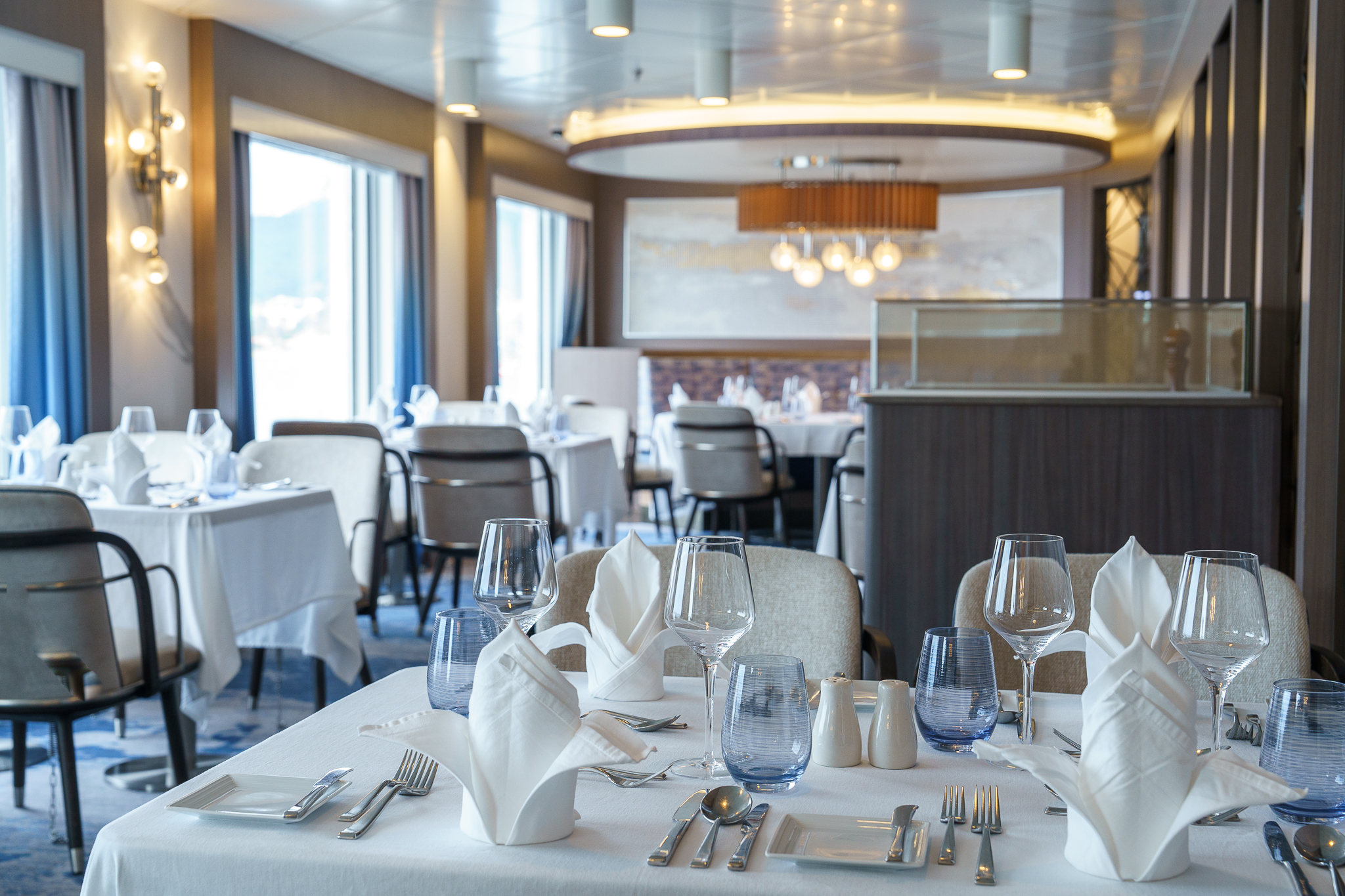
Private Dining Room
Tasteful and intimate. This stylish, private dining room on deck 5 provides a relaxed dining experience—with views of the polar landscape—for up to 36 guests.
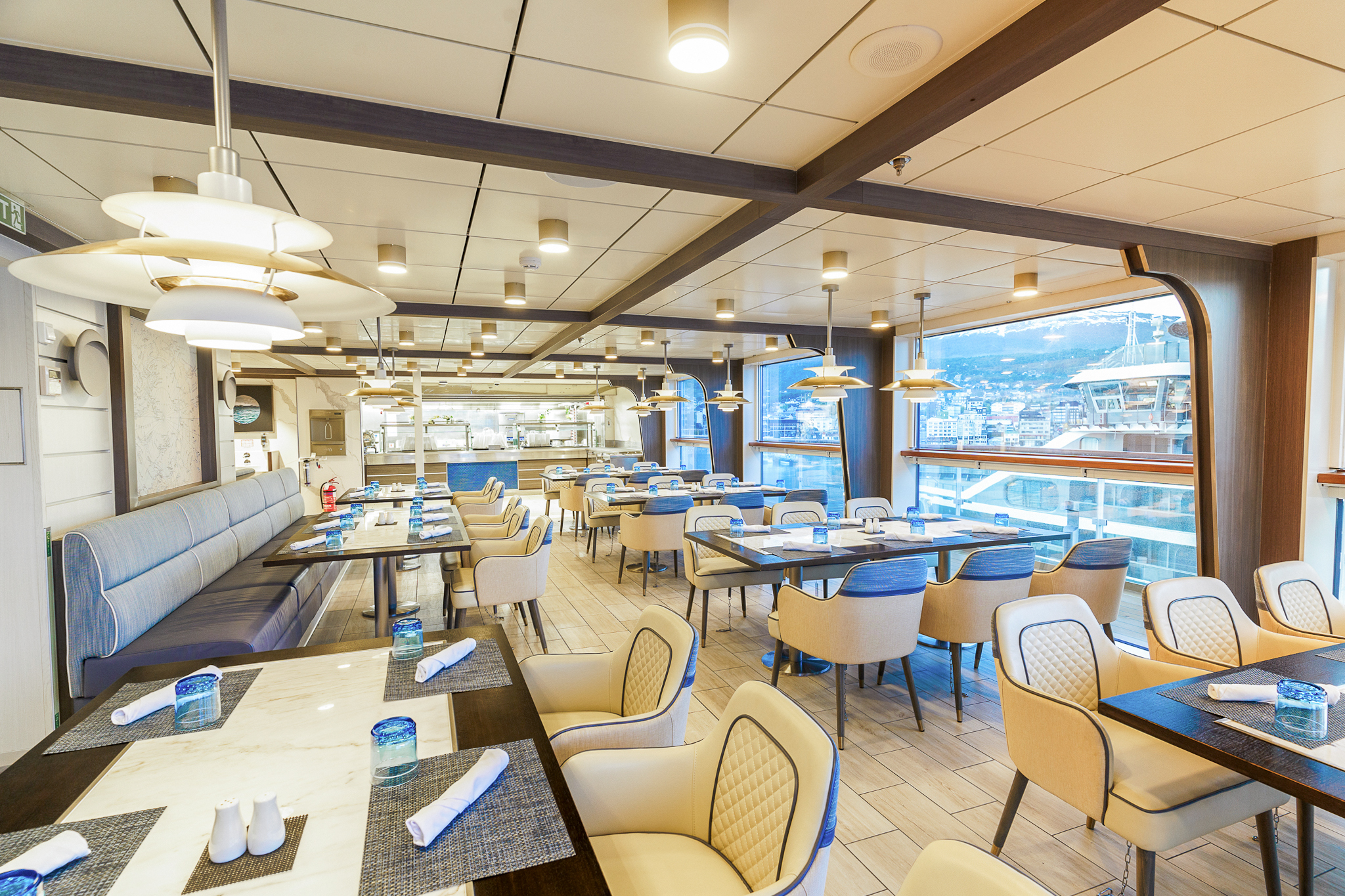
Observation Bistro
With its marine blue and off-white colors—is your go-to spot for lighter fare and graband-go snacks. This relaxed eatery seats up to 44 guests, who can take in full views of their polar surroundings and wildlife while enjoying a light bite.

Off-Ship Adventures
With four separate sea-level embarkation points and a fleet of 15 Zodiacs, Ocean Explorer offers a comprehensive breadth of off-ship activities including Zodiac cruising and paddling, allowing you to intimately connect with the polar wilderness.

Expedition Team
The perfect polar expedition doesn’t just happen. It takes a team of talented, knowledgeable and experienced professionals to bring it all together. Our Expedition Team is comprised of seasoned veterans with rich backgrounds in marine biology, history, glaciology, geology and more. With the highest staff-to-guest ratio in the industry, our Expedition Teams safely deliver your trip-of-a-lifetime to maximize your polar adventure every step of the way.

Zodiac Cruising
Zodiacs are used for transferring you ashore, transporting your luggage when necessary and for taking you ocean-level cruising among icebergs, whales and seabirds. During the expedition, you will visit remote and isolated sites that are accessible only by Zodiac.
These large, heavy-duty inflatable vessels are extremely safe and were specially designed for expedition work. Zodiacs are the workhorses of Polar expeditions. Separate air compartments retain a large reserve of buoyancy even if these sturdy boats are damaged. Their flat bottom design permits the craft to land directly onto the cobble and ice-strewn beaches that you will encounter on your Polar expedition.

Sea Kayaking
The kayak adventure option is open to all levels of experience. However, it is highly recommended that you have some sea kayaking related experience prior to kayaking in the polar regions with Quark Expeditions. Our sea kayaks are the ideal means by which to slow down and connect with the pristine natural environments and surroundings.
Positioning yourself in the seat of a kayak is one of the most intimate ways travelers can connect with the polar regions—at water level, up close, where you can touch and feel every polar sensation imaginable. The Sea Kayak Program enables a small group of like-minded individuals to forge bonds as they explore fjords, glacial faces or mazes of sea ice.
Conditions and logistics permitting, your kayak guide(s) will endeavor to have you paddling as often as possible throughout the voyage. Typically, sea kayakers are shuttled by Zodiac from the ship to an ideal starting point, where the kayak excursion begins. Guests return to the ship by Zodiac at the end of their paddling experience. Some kayak excursions are designed so guests can go ashore and explore.

Stand-up Paddleboarding
Stand-up Paddleboarding, popularly known as SUPing, originated in Hawaii. Quark Expeditions is the first company to bring this watersport all the way to Antarctica.
SUPing combines the immersive experience of kayaking but in a standing position. Participants, if they prefer, can kneel, sit or even lie down and stare up at the azure Antarctic sky. Because of their wide base and tail fins, SUP boards are quite stable, enabling participants – after a bit of practice – to stop staring at their feet and admire the surrounding scenery. Imagine seeing Gentoo penguins gliding below you, or making eye contact with a Weddell seal lying on a piece of ice as you paddle by.
Guests receive on-ship and on-water instruction from a qualified SUP guide. In addition, a safety driver (in a Zodiac) stays within range to offer assistance.

Polar Plunge
The Polar Plunge is scheduled once during each voyage. Throughout the journey, the Expedition Leader and Captain constantly monitor conditions in order to choose the optimal time and location. The Polar Plunge sometimes takes place onshore or, in many cases, from the gangway or Zodiac. All participants wear a tethered harness and plunge into the polar waters from the side of Zodiac or safety of the gangplank cheered on, of course, by fellow passengers and Expedition Team.
Safety is paramount—the onboard physician always attends the Polar Plunge. Guides in survival gear circle the area in Zodiacs as guests take their turn jumping or cannon-balling into the polar waters.

Hiking
Hiking in the polar regions differs from your typical trail experience. Here, in a tree-less terrain, you are the tallest figure on the landscape as you walk over spongy tundra, crusty snow or sandy beaches in remotes parts of the Arctic and Antarctica. Stepping ashore anywhere in the polar regions means you’re not a distant observer.
Our organized hikes range from short jaunts to the top of lookouts or visits to see wildlife or longer walks of several kilometers over ice and rock and snow. Hiking excursions may last from two to three hours with plenty of time for photographs of wildlife, learning moments from your experienced guides, or just time to stand back and admire the incredible polar surroundings.
No experience is necessary but participants should be able to get in and out of a Zodiac and walk on uneven terrain. Hiking options are tailored to all interests and abilities, from those who want to contemplate the landscape in silence to photographers who want that perfect image to energetic travelers who want to summit a peak in the hopes of seeing wildlife in their natural habitat.
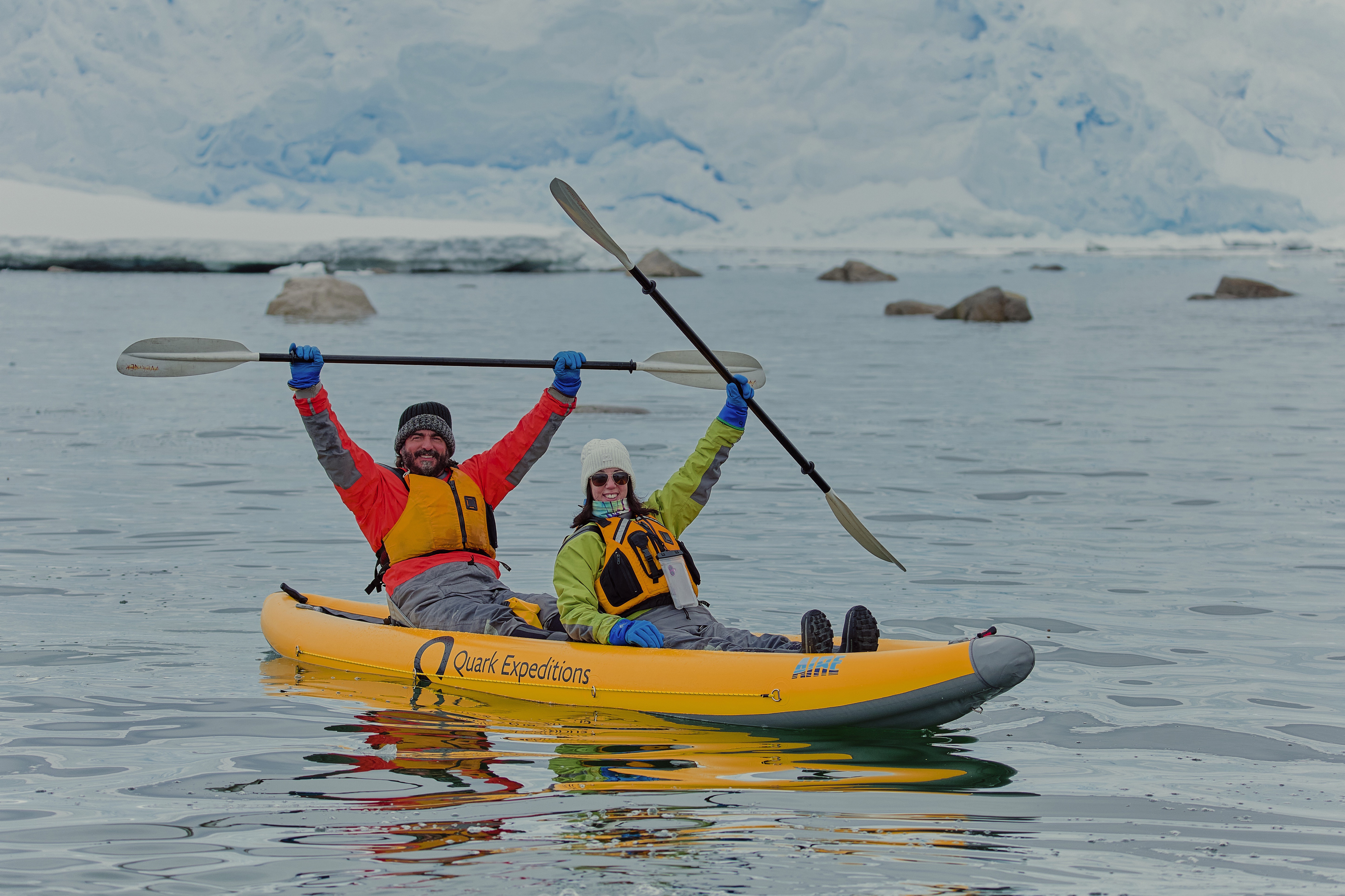
Paddling Excursion
Explore the ocean from a more intimate vantage point on a sit-on-top kayak. No experience is required to manoeuvre these very stable kayaks, allowing you to enjoy an unforgettable experience on the water, taking in breathtaking landscapes and wildlife. Whether it’s your first time in a kayak or you want greater flexibility to try other Adventure options, this shorter excursion is for you.
Paddling in the Polar Regions is highly weather-dependent and a one-time experience. Your kayak guides will attempt to take you out on the water for 1-1.5 hours of paddling. Offered on most voyages, spaces are limited. All equipment, guides and instructions are provided by Quark.
Pricing subject to change based on season. Please proceed to checkout or contact a Polar Travel Adviser for more details.

Camping
Imagine for a moment, staring at the stars in the indigo glow of an Antarctic night as you bed down for the night outside in the elements. The buzz of your daily life becomes a distant memory as you listen to the bray of penguin, the ethereal calls of the Weddell sea – even the exhalation of a humpback whale. And then you fall asleep.
Antarctic Camping with Quark Expeditions is an unforgettable experience. After dinner onboard, you’ll be escorted ashore by Zodiac to camp out on the snow for the night in your ready-to-roll bivy sack (tents can be used upon request). Once you decide on your spot, you set up camp and enjoy the peace as the Antarctic night unfolds.
Camping in Antarctica is limited to 50 participants, all of whom will be briefed beforehand on the principals of basic camping. Prior to you settling down for the night, Quark Expeditions staff will prepare the site, including setting up a perimeter in safe, flat to gently-sloping and beautiful site. You’re free to choose where (within the perimeters) you want to settle down for the night.
You’ll be equipped with the following:
- Mummy-style sleeping bag
- Bivy sack
- Insulated sleeping pad
- Sleeping bag liner
- 3 or 4 season tent provided upon request (pending availability)
- Quark Expeditions Parka
- Waterbottle (Small collapsible reusable water bottles provided onboard upon embarkation)
- Muck Boots (insulated waterproof boots provided onboard upon embarkation)
Other recommended gear:
- Base and mid-layer clothing
- Warm hat
- Warm gloves
- Hand-warmers
- Camera and accessories
- Backpack
- Eye mask if you wish complete darkness
- Need a pillow? Roll up your parka!
- Essential medication and or supplements

Explorer Lecture Lounge
Enjoy daily chats with and presentations by our world-class onboard polar experts—expedition guides, specialists, photography guides and other special guests who will introduce you to the fascinating history, biology, ornithology, glaciology and geology of the region, and much, much more.

Photography
Documenting your voyage so you can take the memories home is a rewarding experience. Our photography guides will help you hone your skills to capture the beauty of the polar regions.
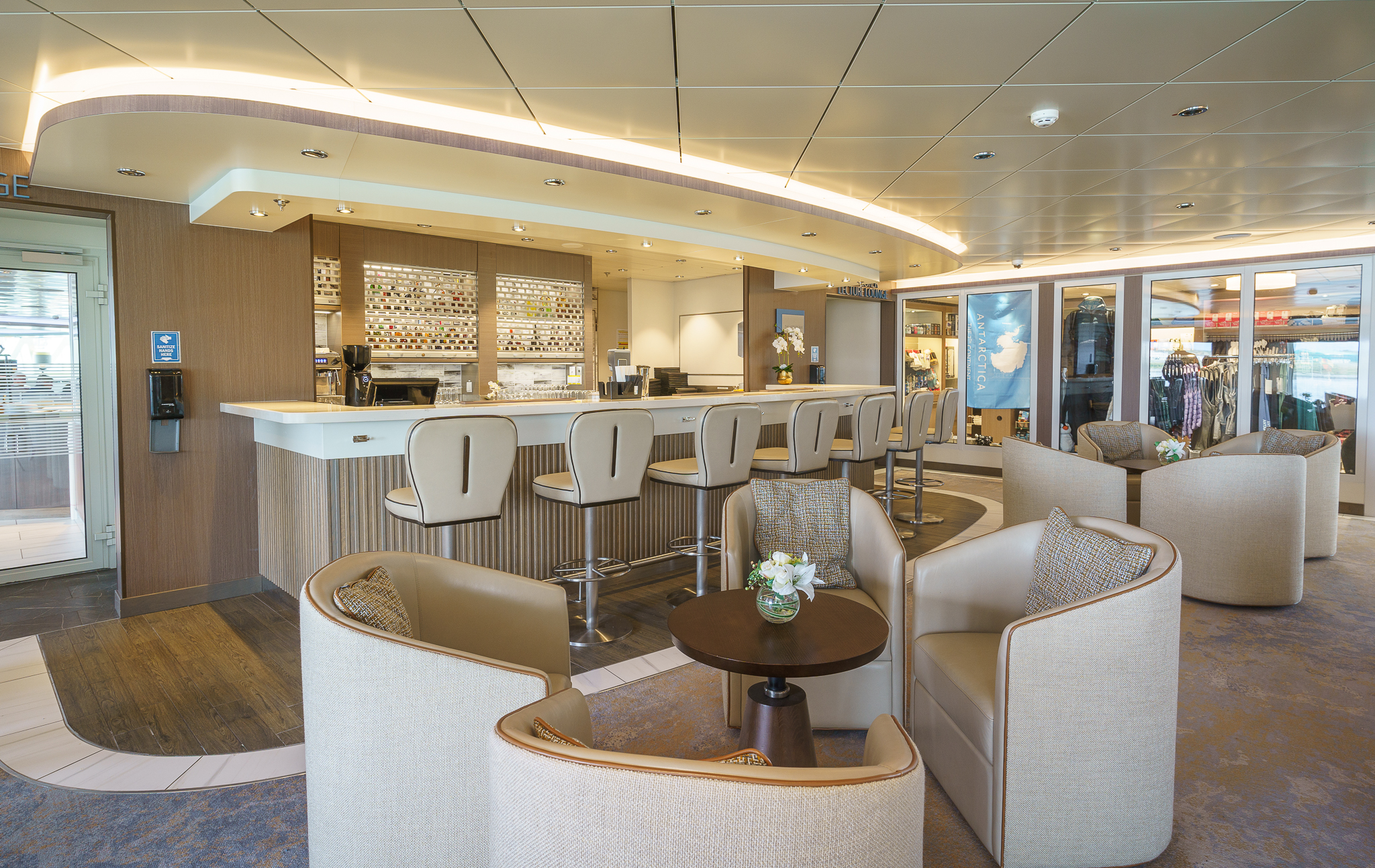
The Latitude Bar
A popular social hub on Deck 5, the beautifully-lit Latitude Bar—with its lush sofas and faux marble-topped end tables—is large enough to seat 46 and is ideal for enjoying a quiet drink on your own or hanging out with friends.
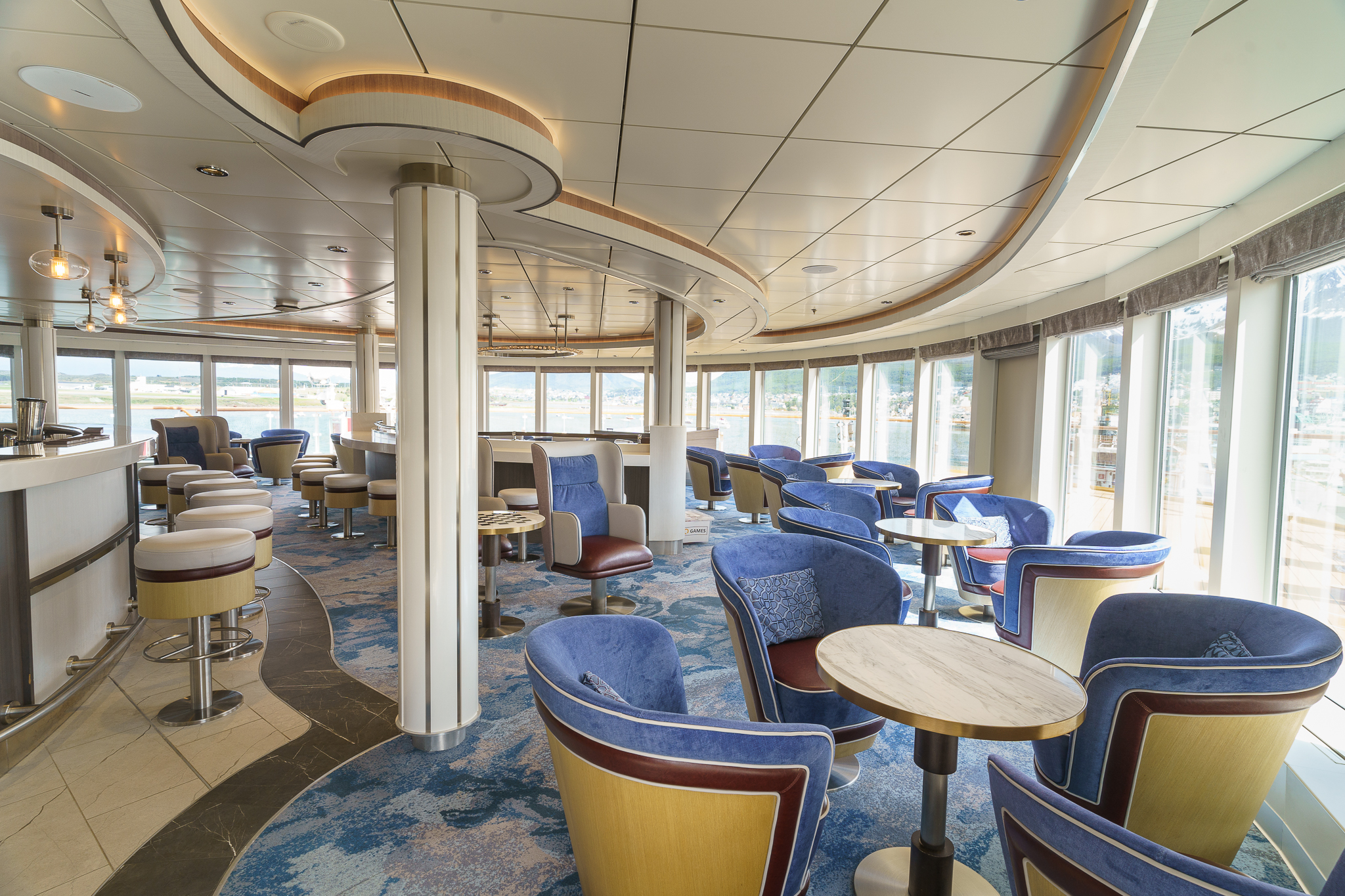
Observation Lounge
This stylish lounge at the top of the ship guarantees incredible views. Guests also frequent this spacious lookout on Deck 8 to enjoy cocktails and conversation with fellow travelers. Seats 63.
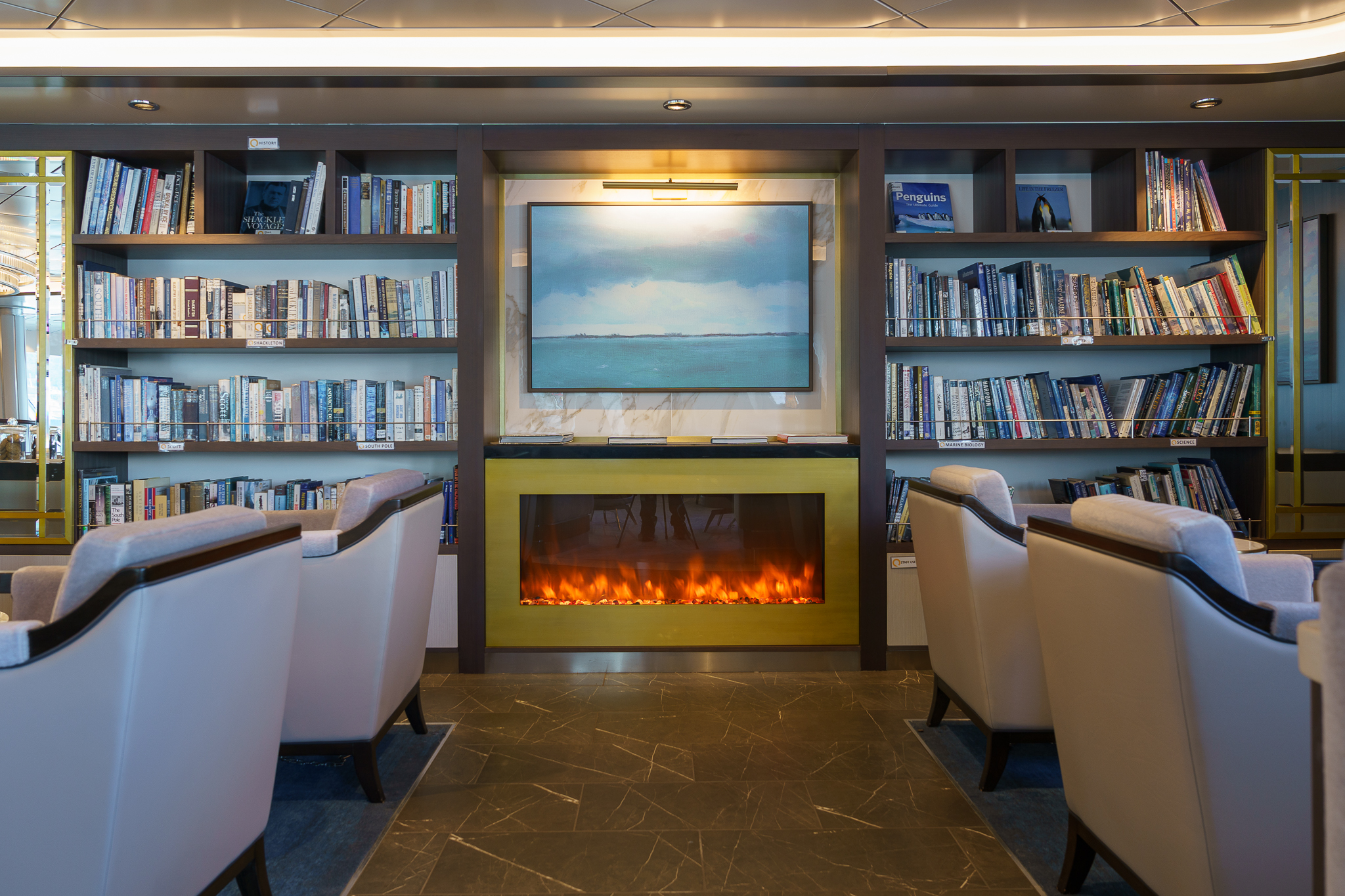
Discovery Library
Located on Deck 6 at the top of the gorgeous atrium staircase, this beautiful Library with floor-to-ceiling glass, accommodates up to 47 people

Sun Deck and Bar
More information coming soon.
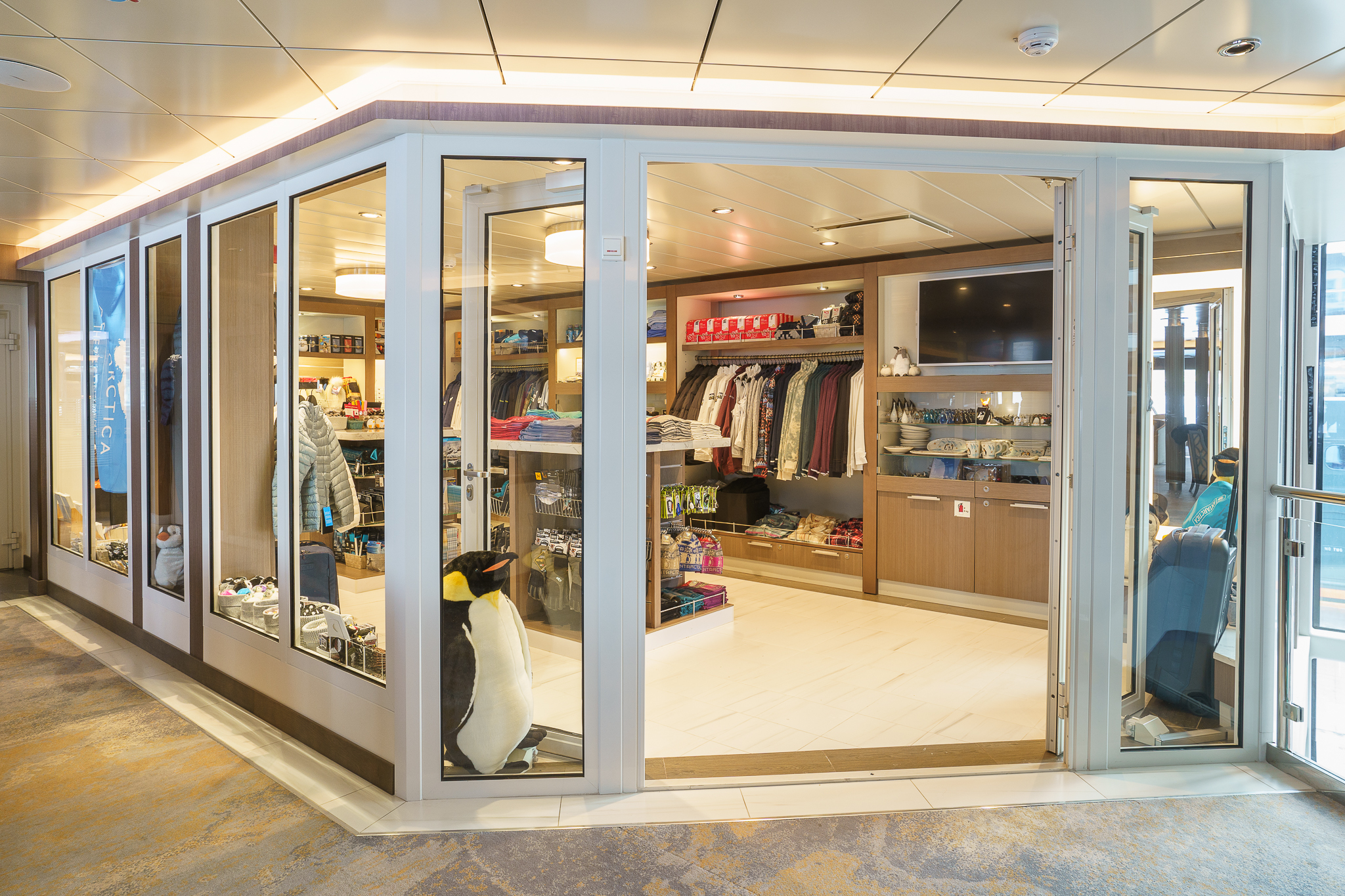
Polar Boutique
The Polar Boutique can be located on Deck 5.

Jacuzzis
Two outdoor Jacuzzis on deck 7, at the ship’s stern, mean you can relax alfresco while soaking up the breath-taking polar views.
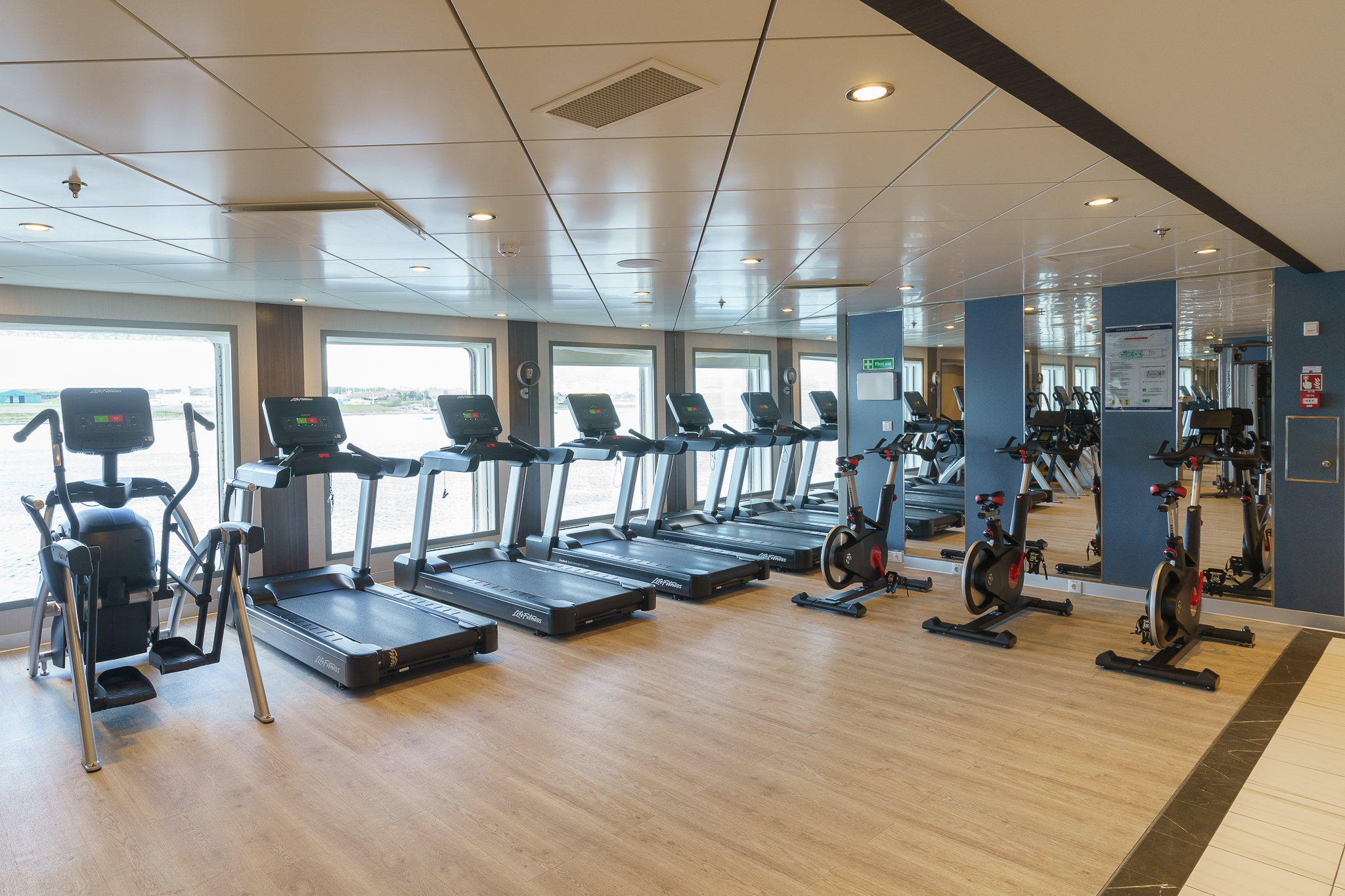
Fitness Centre
Stay fit with the latest work-out equipment in the Fitness Center on Deck 7.

Dry Sauna
After a day of exciting off-ship adventure, guests can relax on the sauna’s traditional wood benches while gazing at the polar wilderness just outside the large sauna windows. Accommodates 15 people on Deck 7.
Leading Edge Sustainability
With the latest sustainability technology in polar expedition, the ship features fuel-efficient Rolls-Royce engines and the ground-breaking MAGS gasification system that converts waste into energy, eliminating the environmental impact of waste transportation.
Medical Facilities
Quark Expeditions provides an English-speaking doctor on board who manages a medical clinic stocked with a supply of common prescription medicines and basic first aid equipment.
If you are under regular treatment for any ailment, you must bring a sufficient supply of medicine. We recommend that you pack an extra two weeks’ supply of medication in case of emergency. We cannot accept responsibility for not having a specific brand or type of drug on board. Should you fall ill, the doctor will refer to the medical forms that you completed and returned to us; therefore it is vital that the information you provide is complete and accurate
Dress Code
To Wear on Board
- Comfortable casual clothing like lighter shirts, pants or jeans, etc. (in case the ship gets warm)
- Comfortable non-slip closed-toed, heelless shoes (flip flops, sandals or slip-on shoes should not be worn on board due to safety concerns)
- Workout attire (for the fitness center and other indoor activities)
- Swimsuit (for the Polar Plunge! Some vessels may also have a pool, hot tub, sauna and/or steam room. See your ship book for details.)
Just a reminder: no formal evening wear required on our voyages! (but if you want to you can bring a little something more dressy for the Captain’s Welcome and Farewell cocktail parties)
Additional Items
- Passport, visas, immunization records, travel documents, etc. as required
- Camera gear complete with charger, storage medium, transport & cleaning kit (lens cloth etc.) and extra batteries
- Waterproof cell phone case or rain sleeve for camera
- Earplugs and eye masks for sleeping
- Voltage converters and plug adapters (see ship book for details)
- Moisturizer for face and hands (skin dryness due to wind and temperature changes)
- Seasickness, indigestion, headache, or other medications
- Small amount of local currency (see pre-departure book for more details)
- Insect repellant
- Mosquito netting
For Shore Excursions & Hiking
In addition to the mandatory gear requirements (as above) for the transit from ship to shore, it is recommended to bring:
- Worn-in Hiking footwear: While Muck-boots are provided and encouraged for most shore excursions, additional hiking footwear (Goretex-lined boots or similar water-proof hiking boots) can add to your hiking comfort, especially if you are a keen hiker
- (Smart) Wool or synthetic hiking socks for above footwear (bring an extra pair)
- Lightweight and quick-dry, trekking pants that may or may not convert to zip-off shorts* (*depending on your thermo-regulation)
- Breathable waterproof pants* and rain jacket** for outdoor activities in inclement weather (*can be the same pair you use for Zodiac operations / ** can be outer shell of complimentary Quark 3in1 Parka)
- Comfortable long or short-sleeve shirt for hiking either synthetic/quick-dry or merino (smart) wool
- (Hiking) gloves (medium thickness, waterproof preferred)
- Hat, buff or scarf (for wind and weather protection)
- UV protection (hat, polarized sun glasses, sun block, lip balm)
- Collapsible Walking stick for hikes (if required). Quantities are available on every vessel to borrow.
- Additional reusable thermos or water bottle (in addition to the reusable collapsible water bottle provided)
By Sea & Air
All transfers ship to shore, helicopter flights & Zodiac/ship cruising
- Waterproof Pants (Mandatory for every Zodiac and helicopter ride. For Ultramarine guests who are participating in Helicopter flights, we recommend packing loose fitting rain pant style waterproof pants, rather than fitted ski pants. You will also be required to wear a drysuit, which our team will help you prepare for on the ship.)
- Base-layer wool or synthetic top*
- Base-layer wool or synthetic bottom*
- Mid-layer warm or fleece top*
- Mid-layer warm or fleece bottom*
- Warm hat that covers ears (bring an extra)
- Scarf, buff, or other face protection
- Warm wool or synthetic socks (keep a dry pair in your bag, and bring extras for layering)
- Waterproof gloves or mitts (bring an extra, lighter pair for hiking)
- Glove liners*
- Hand and feet warmers*
- Binoculars
- Polarized sunglasses with UV protection (bring an extra pair)
- Sunscreen
- Ski goggles (for Zodiac cruising on snowy or windy days)
- Waterproof, lightweight backpack or dry sack &/or rain sleeve for camera or a waterproof phone case (to keep camera & gear dry)
Smoking Policy
To protect the health and safety of its guests, Quark Expeditions® maintains a no smoking policy in the interior of the ship including cabins, near Zodiacs and on landings. Smoking on the ship is permitted in the designated smoking area only, which your Expedition∘ Team members will be happy to point out for you. Always make sure to extinguish cigarettes properly and dispose of them in the proper receptacle. Please, never throw cigarettes overboard.
Dietary Requirements and Allergies
All guests—including vegetarians, meat-eaters, as well as those who follow a gluten-free diet—will be equally impressed with the dining options on our ships. Quark Expeditions® is able to cater to most special dietary requests, as long as you clearly indicate your needs on the required expedition forms when you book your voyage. Menus will be clearly labeled for vegetarian and gluten free options, but please do notify your server of the dietary restrictions you indicated on your form. We regret that kosher food cannot be prepared.
Laundry
A complete list of laundry fees will be provided on board. Laundry is collected each morning; please allow 48 hours for your laundry to be returned. Ironing services are also available at a minimal charge. We encourage you to take advantage of the laundry services, as it will mean you can pack fewer articles of clothing. If you prefer to hand wash small items in your cabin, please remember to bring environmentally friendly detergent.
Wi-Fi & Communications
When you are not busy exploring the natural beauty of the Polar Regions, you may wish to connect with family and friends back home to share some of your voyage highlights. Guests on Quark Expeditions can now enjoy free Wi-Fi as part of our “Raise a Glass and Stay Connected Free” program. This complementary Wi-Fi service permits basic Internet browsing and voice applications.
Please note that we travel to some of the most remote parts of the world. As we utilize satellite equipment for our connection, Wi-Fi signal may be intermittent.
To access email or internet on your personal computer, tablet or smart phone, connect to the network on your device, where you can access our complimentary plan, or purchase Priority Wi-Fi.
Complimentary Wi-Fi
- Lower speeds
- Suitable for basic internet browsing, texting and voice calling using text and voice apps
- Some site filtering
- No charge
- One device logged in at a time
Priority Wi-Fi
- Higher speeds
- Suitable for larger data volume apps, video calling, video streaming (in lower resolutions) etc.
- See rates by logging in
- One device logged in at a time
Expedition Brochures
Find Ocean Explorers itineraries here.

Deck 9
- Top Deck

Deck 8
- Observation Deck
- Observation Bistro
- Observation Lounge & Bar
- Elevator

Deck 7
- Penthouse Suite
- Owners Suite
- Veranda Stateroom
- Studio Veranda Single
- Polar Deck and Bar
- Jacuzzis
- Gym
- Tundra Spa & Sauna
- Bridge
- Bridge Deck
- Elevator

Deck 6
- The Discovery Library
- Junior Suite
- Veranda Suite
- Veranda Stateroom
- Elevator

Deck 5
- Main Dining Room
- Private Dining Room
- Reception
- Polar Boutique
- Latitude Bar & Lounge
- Explorer Lecture Lounge
- Elevator

Deck 4
- Deluxe Veranda Forward
- Veranda Suite
- Veranda Stateroom
- Expedition Desk
- Elevator

Deck 3
- Ready Room
- Medical Facilities
- Zodiac Embarkation Points
- Studio Single
- Elevator



